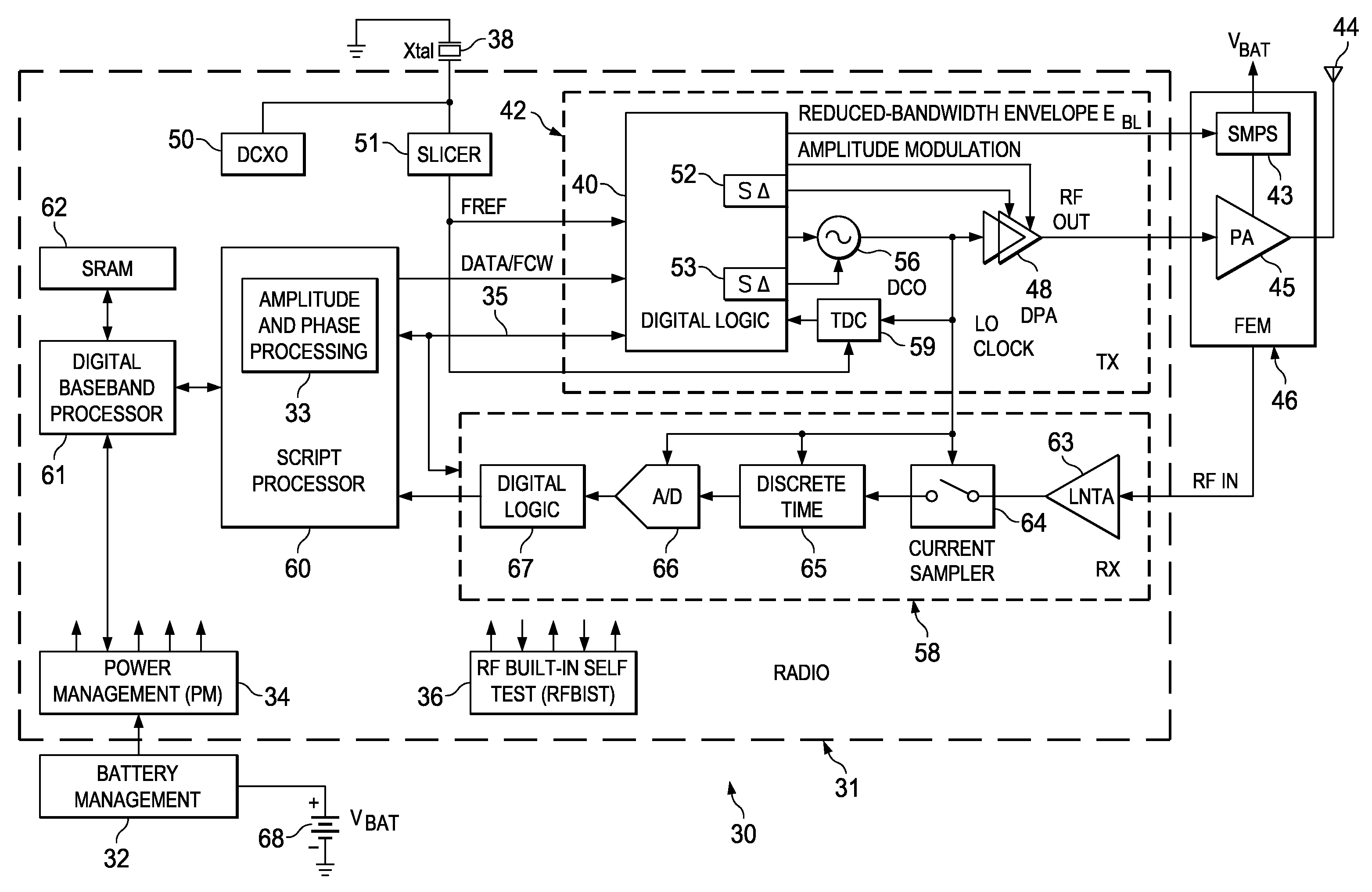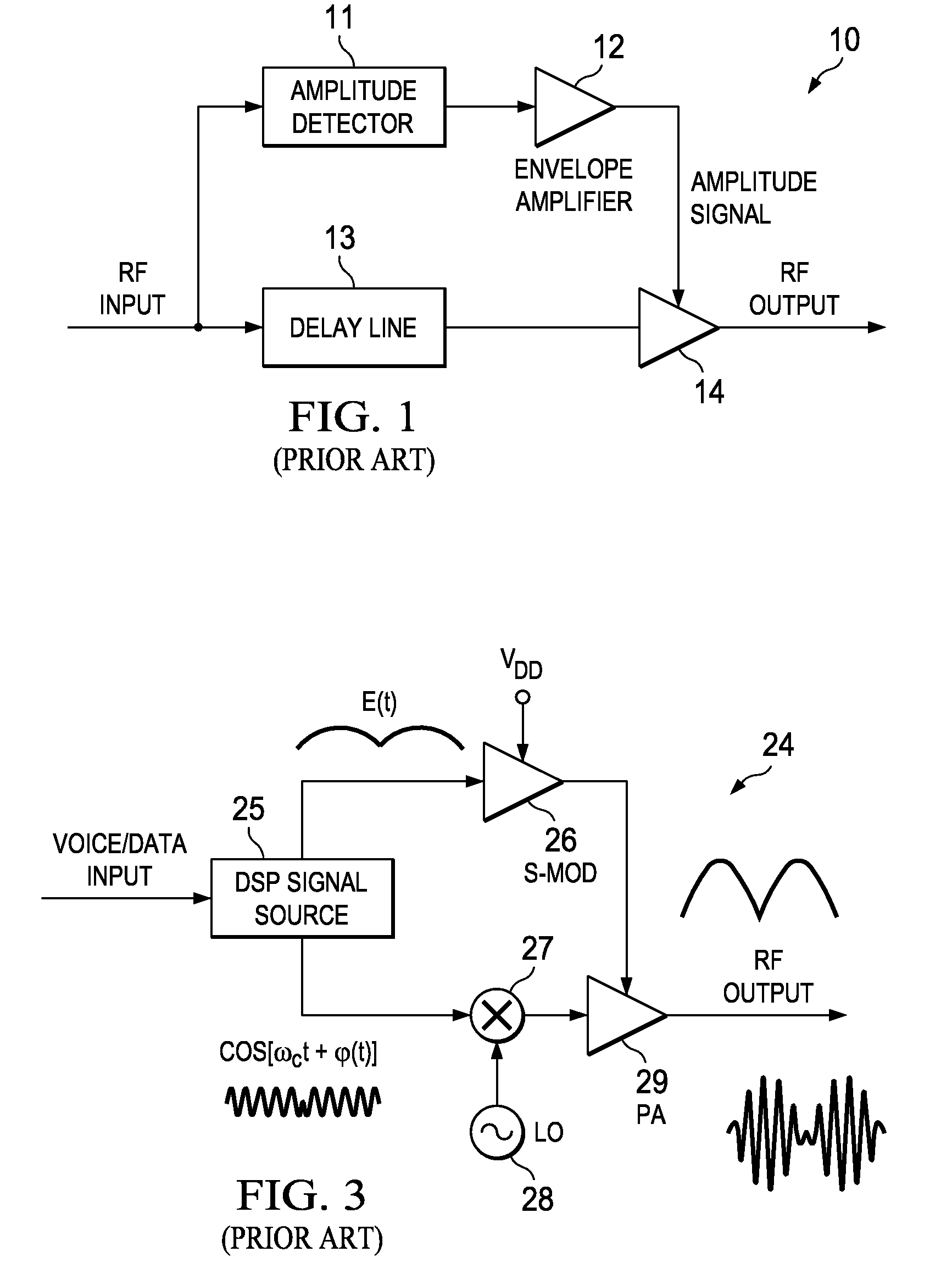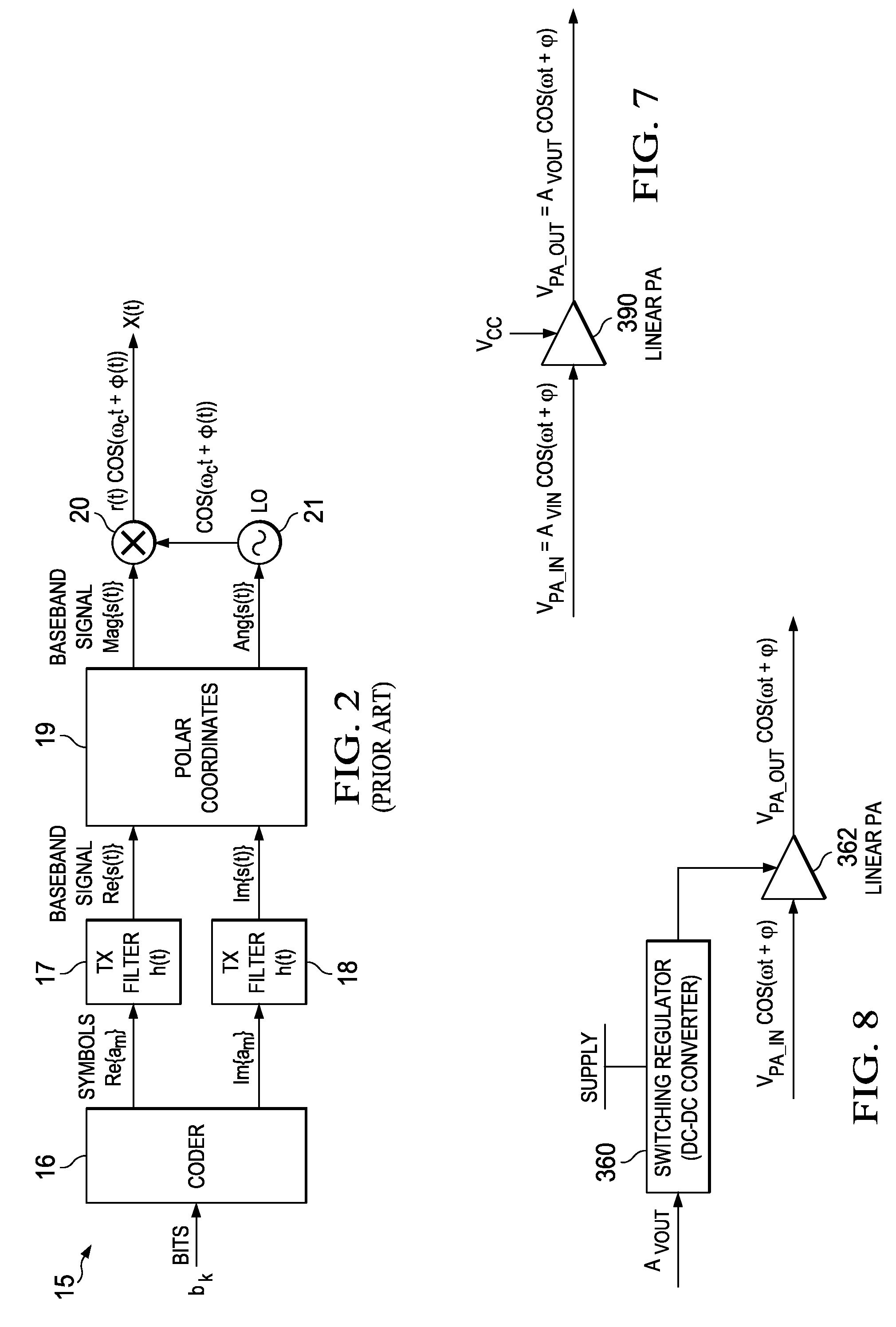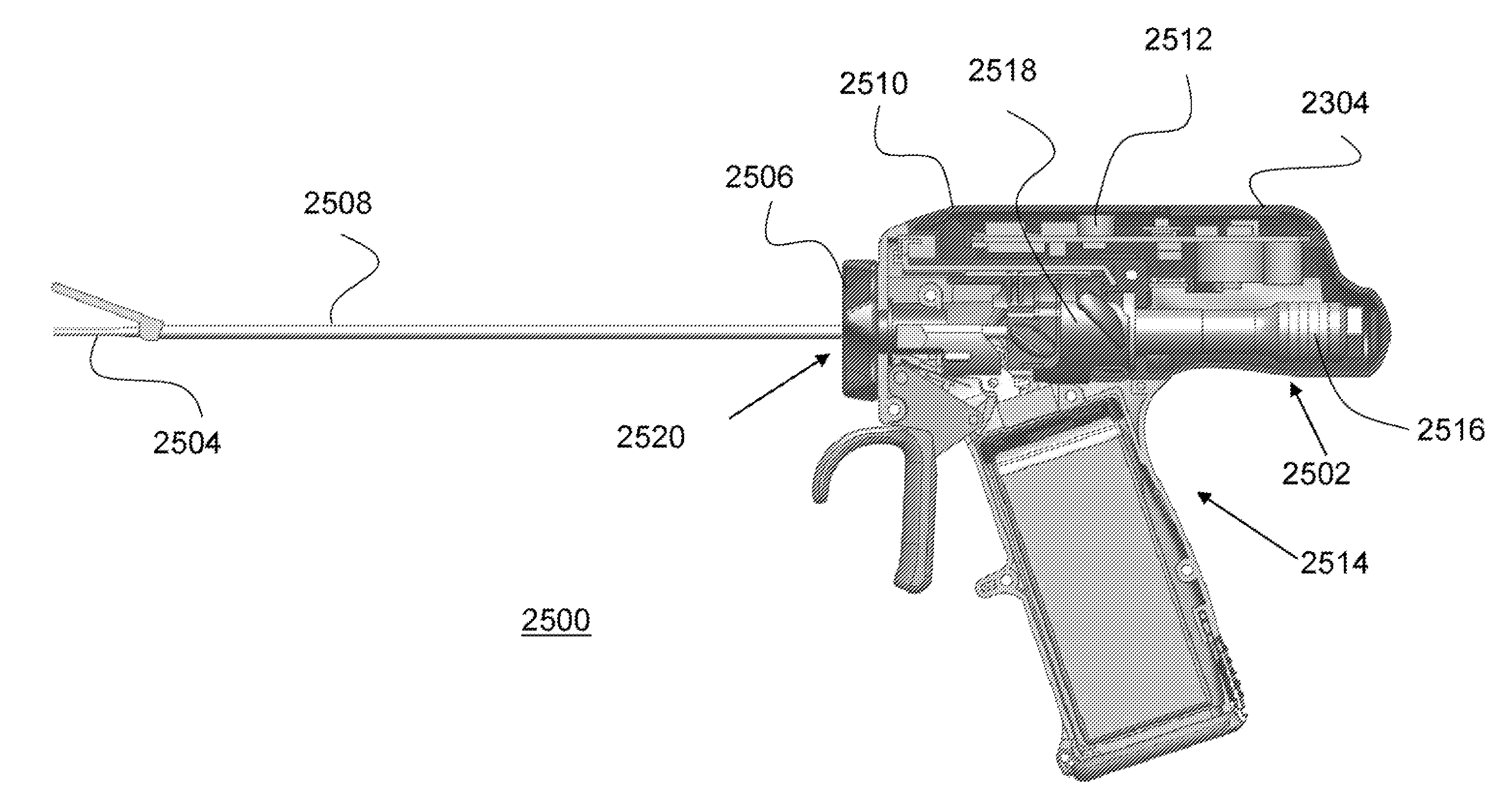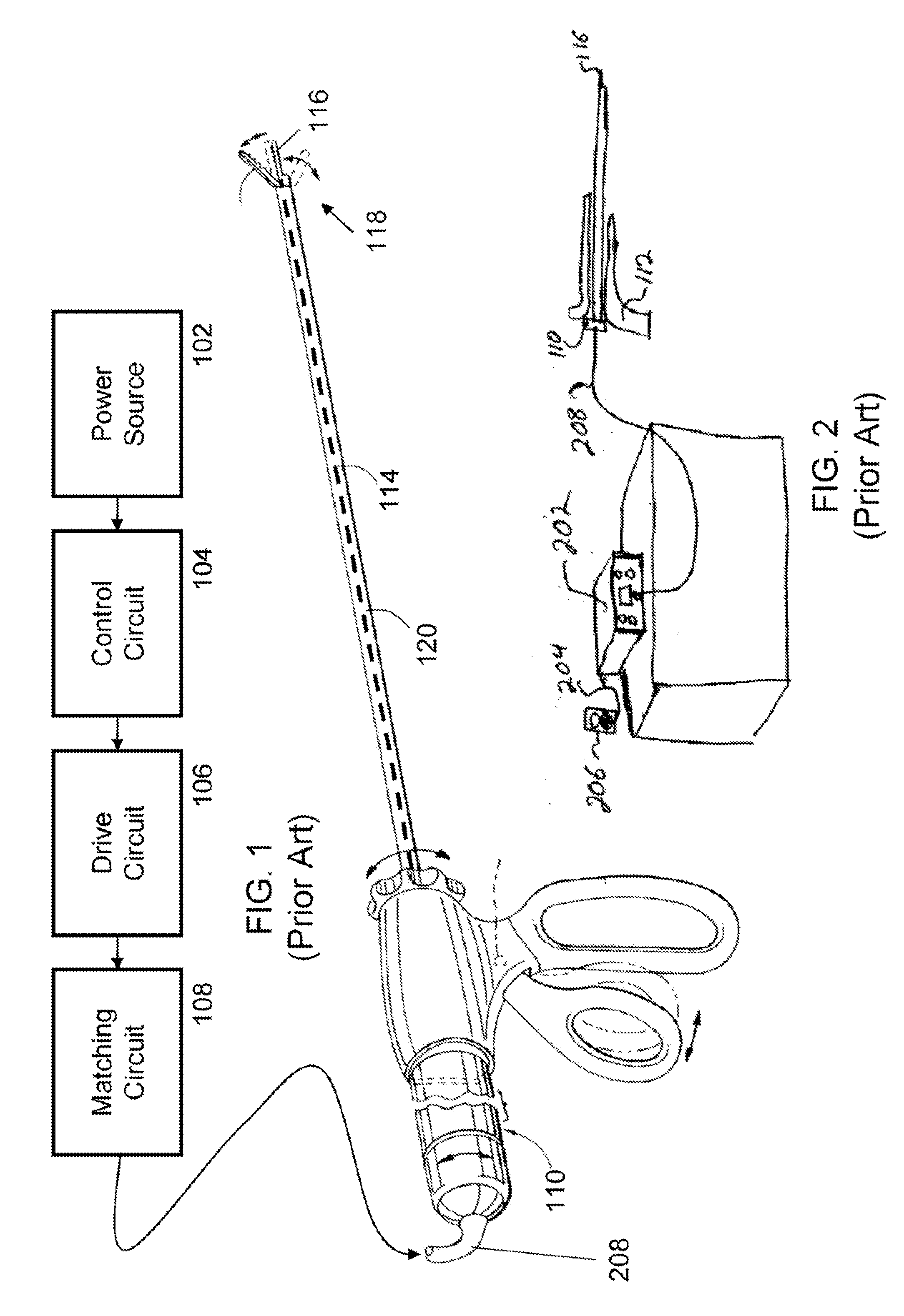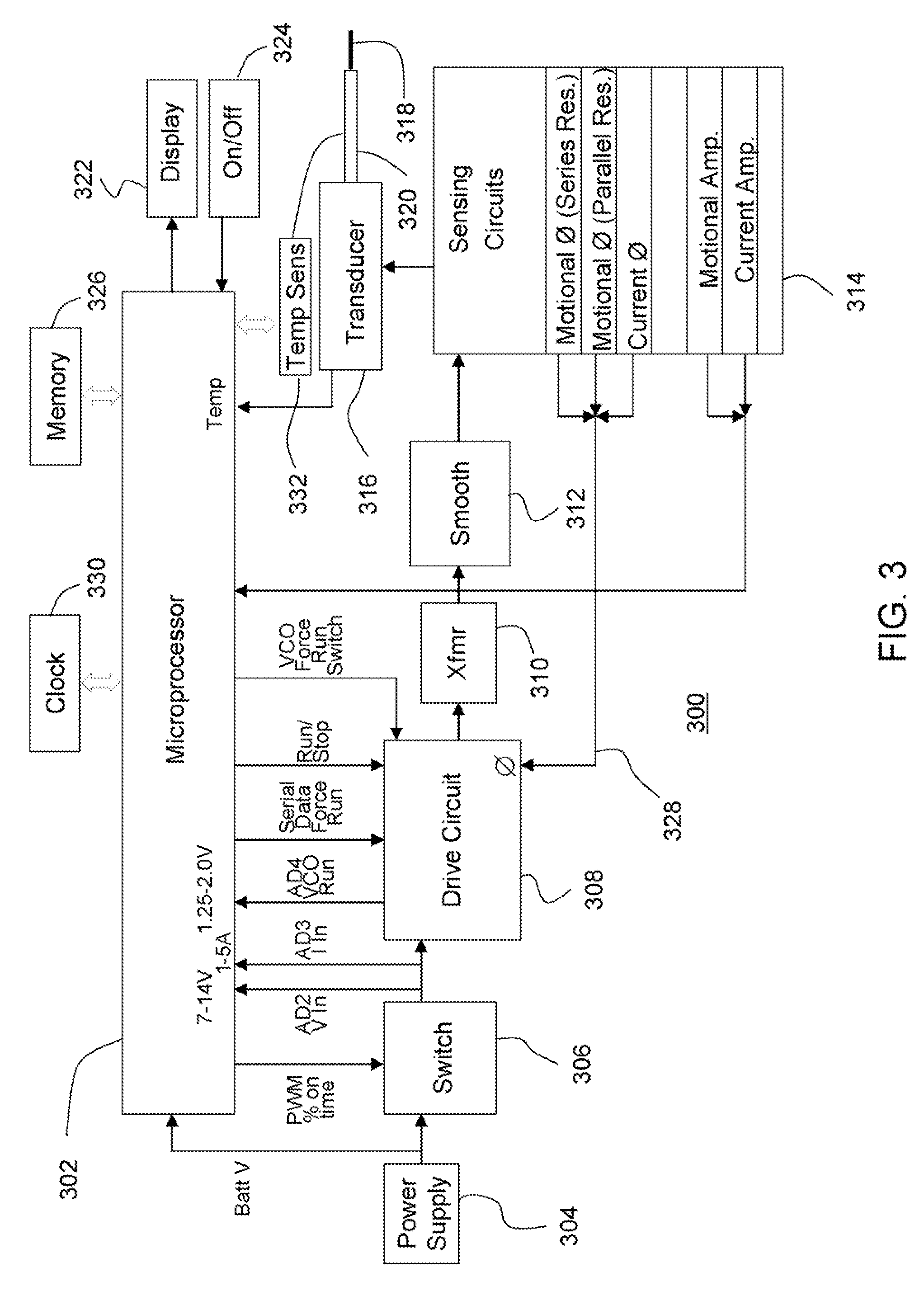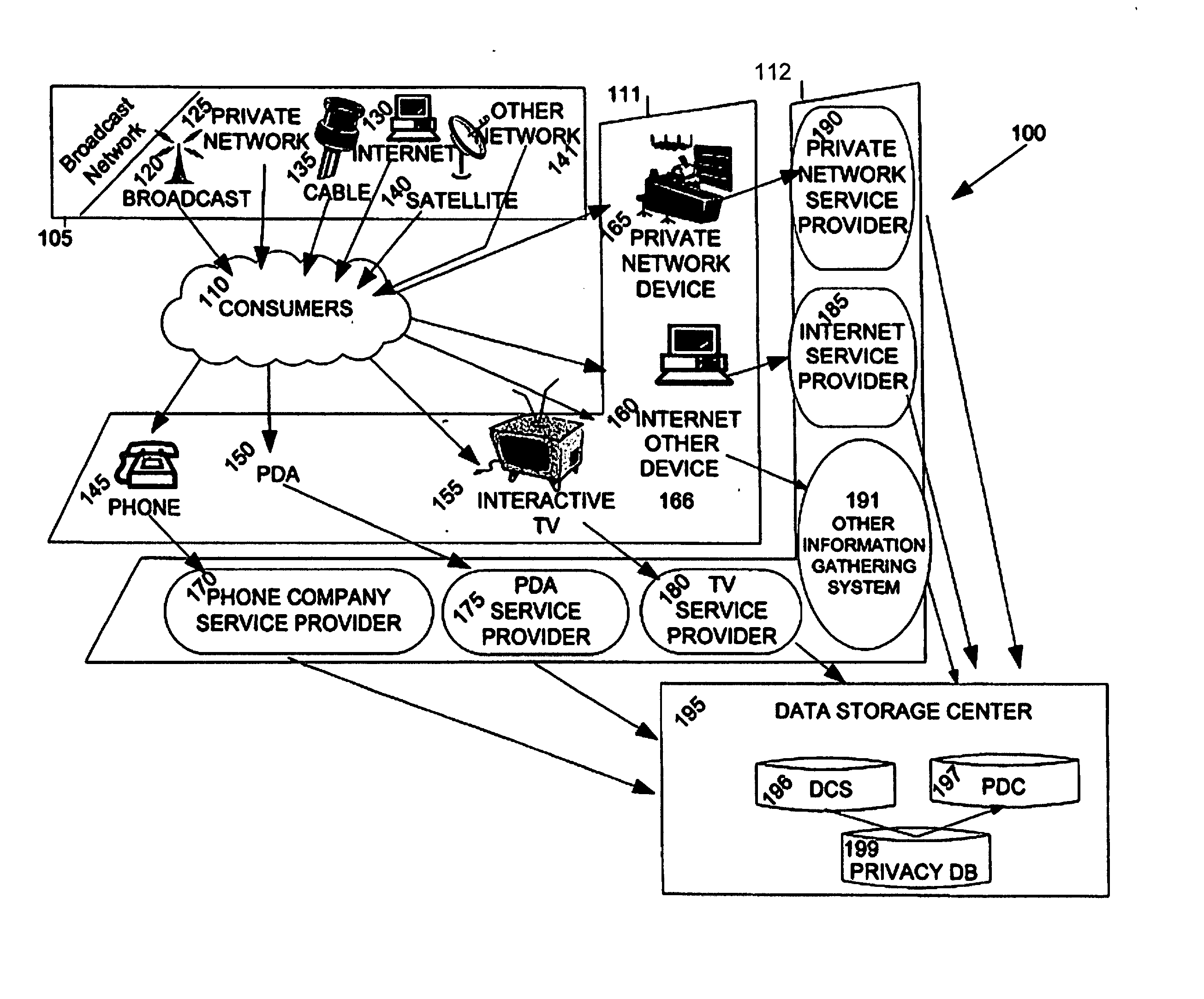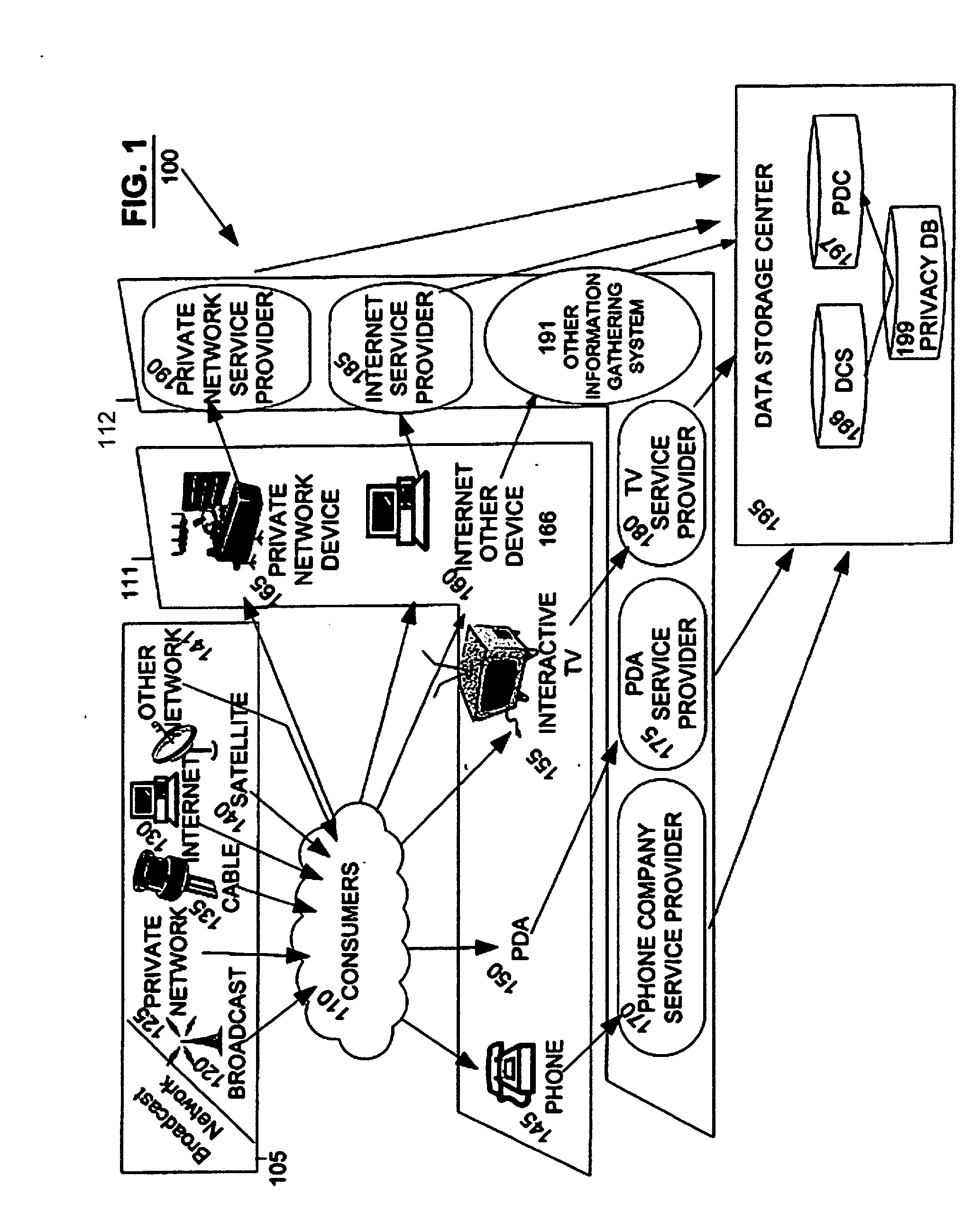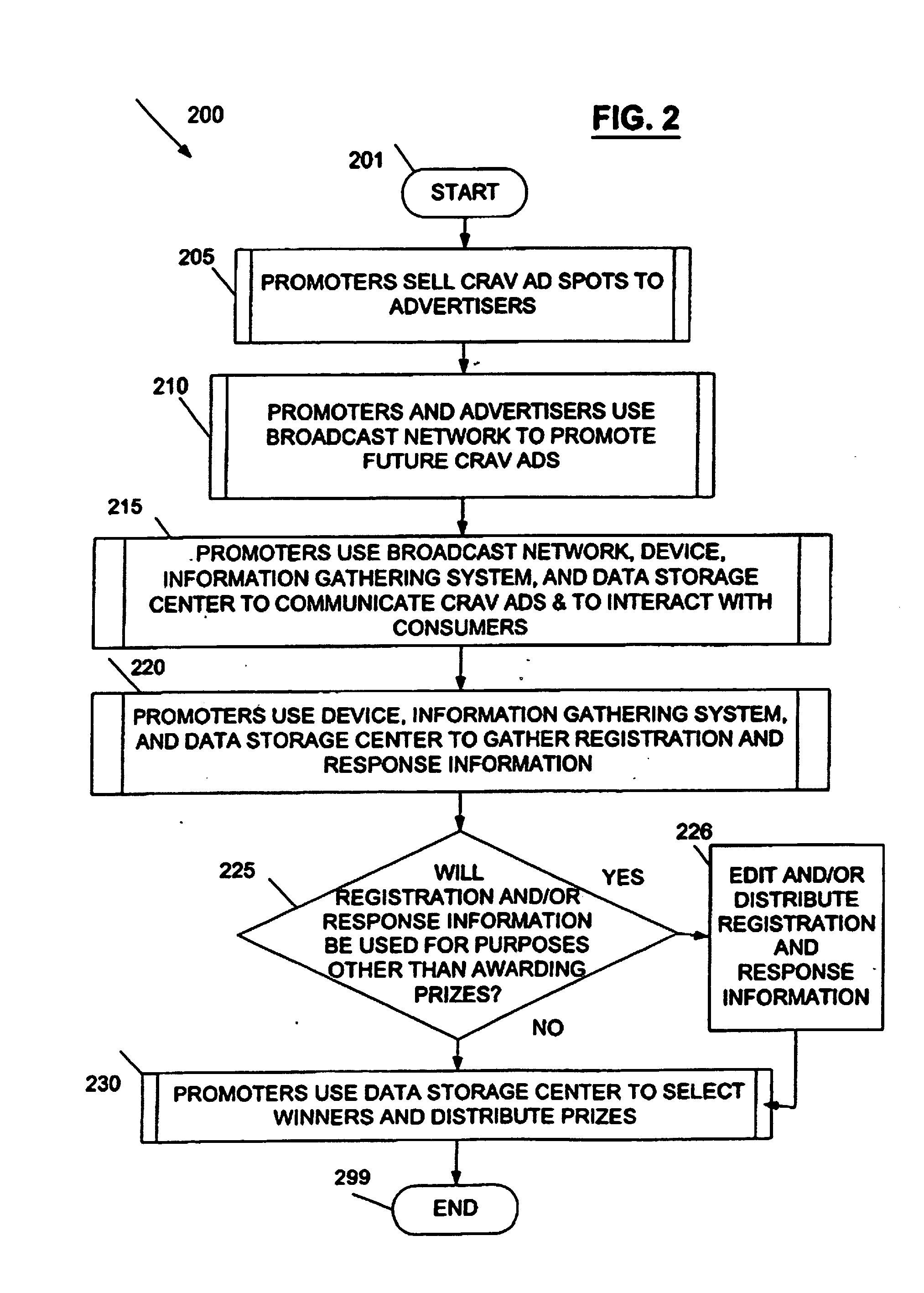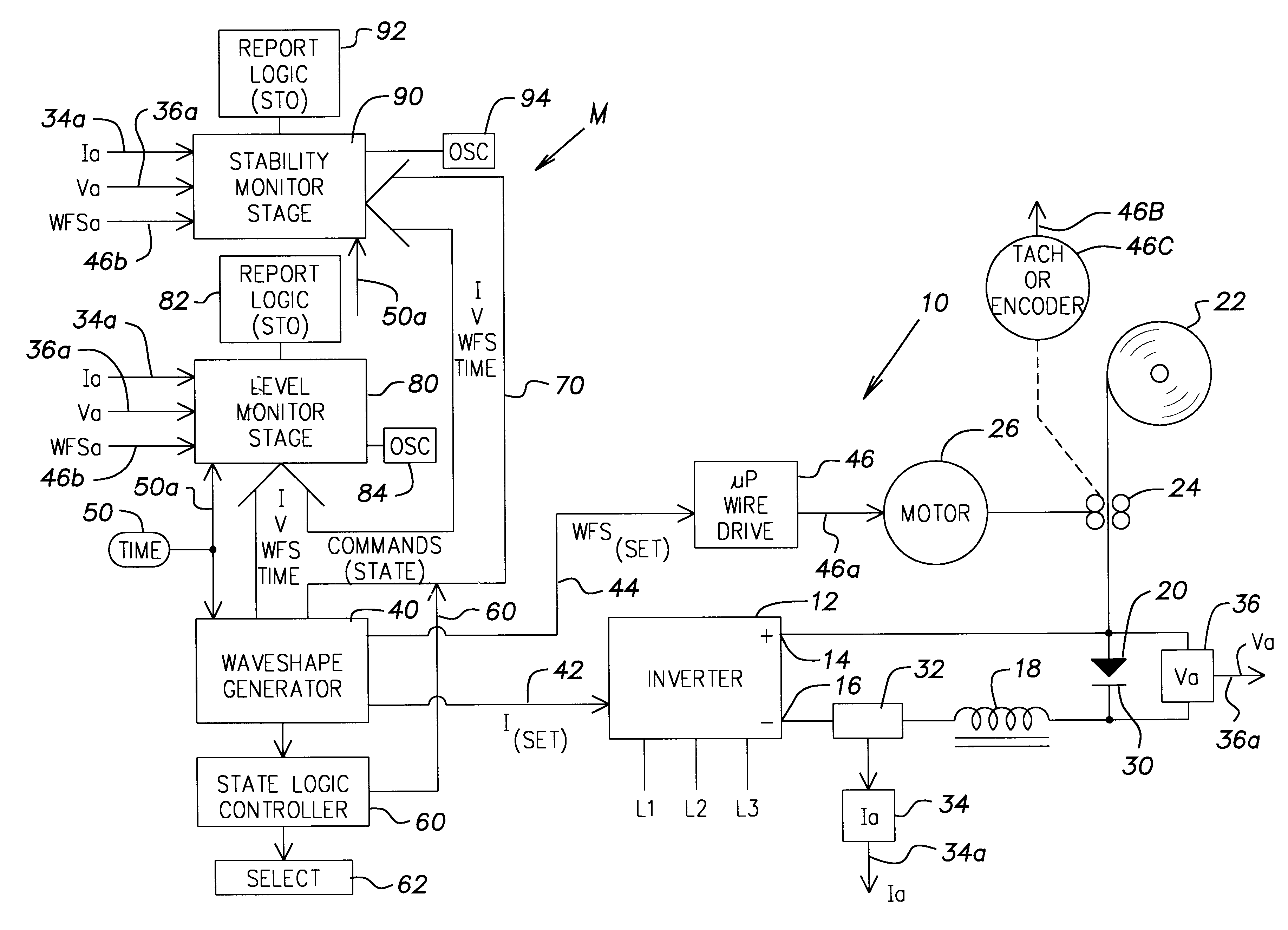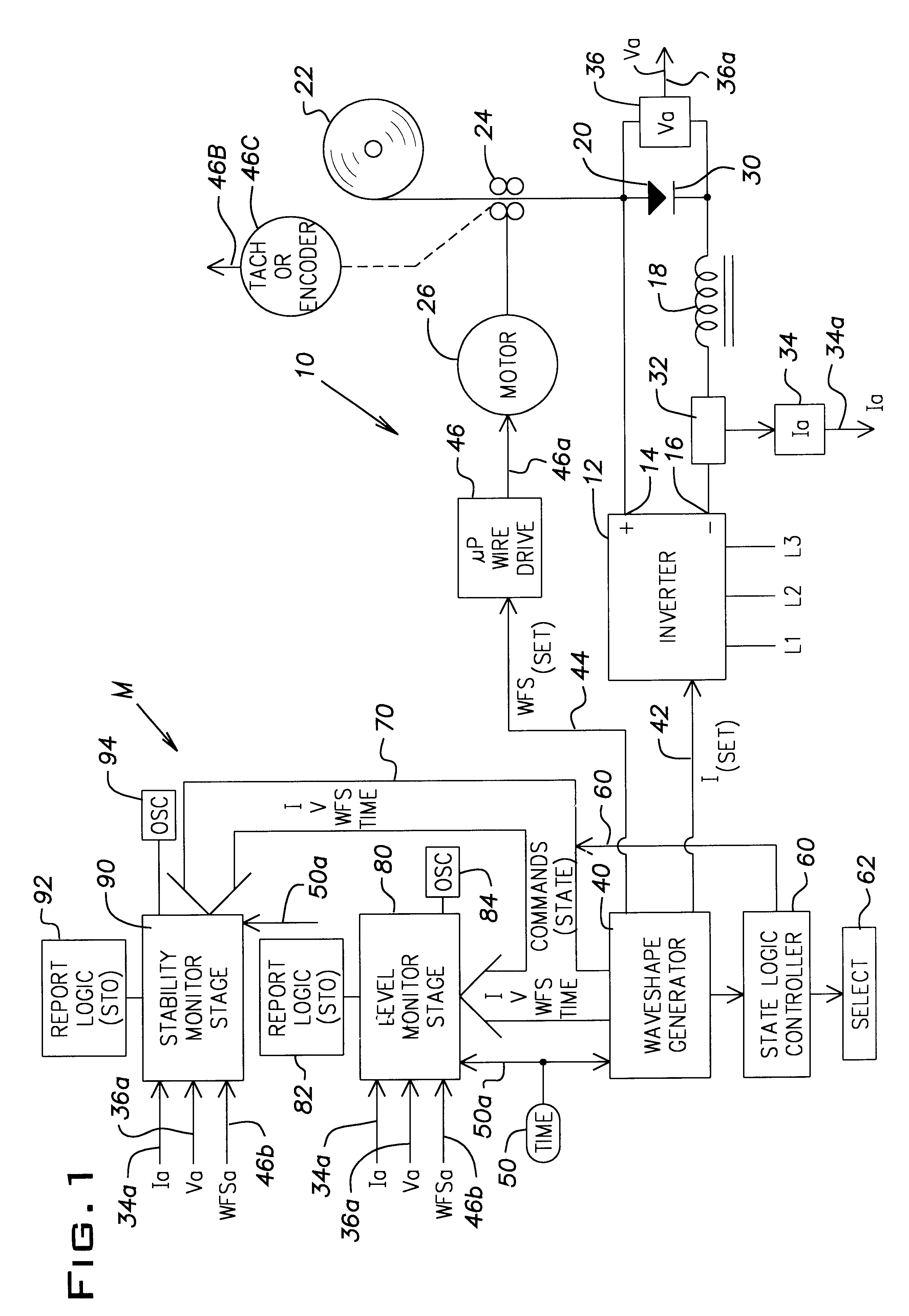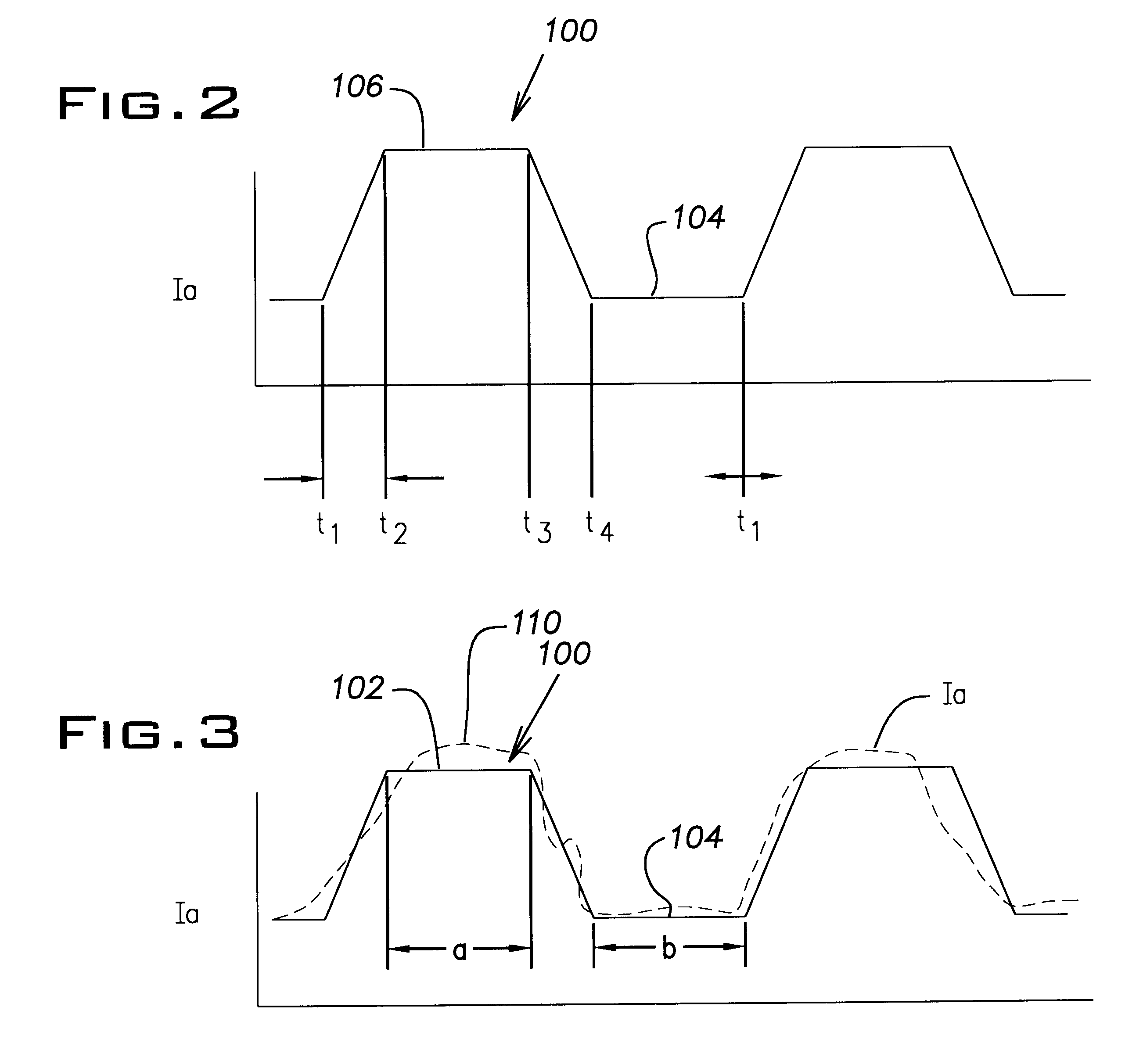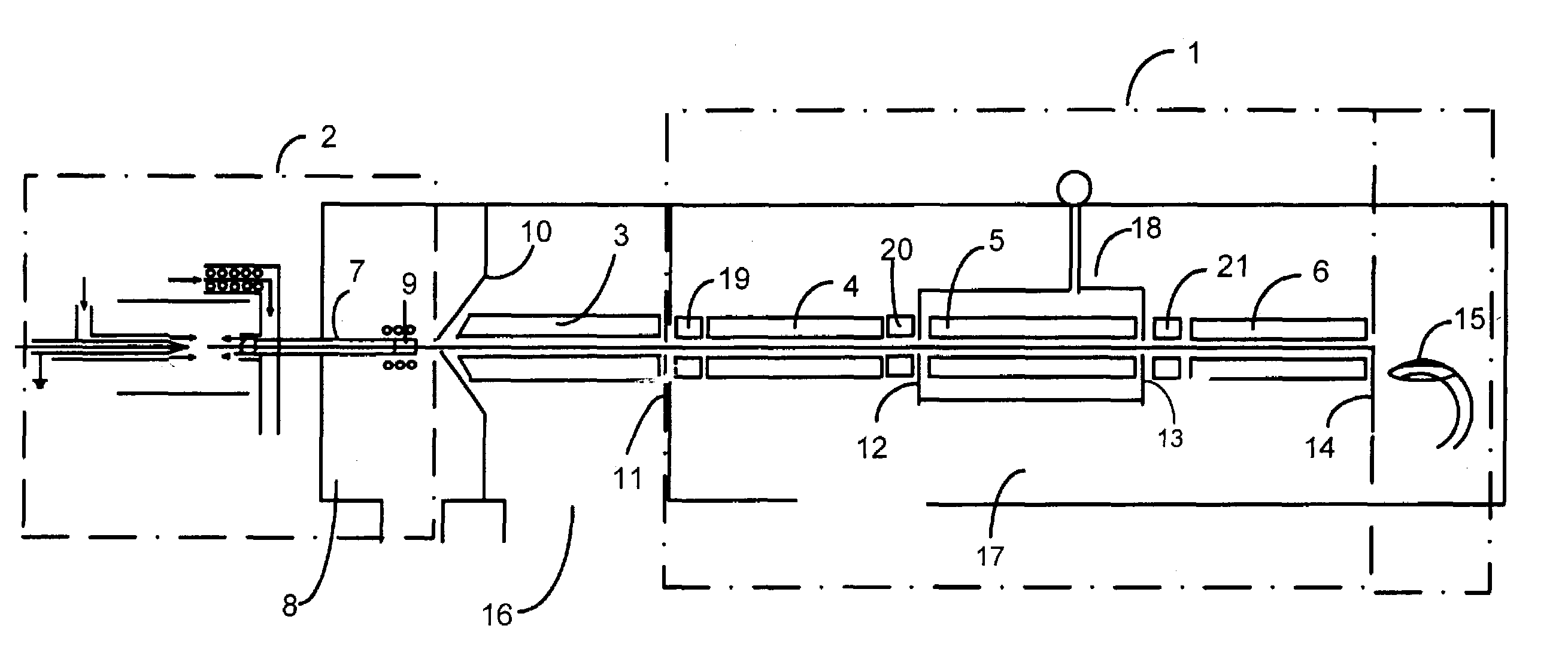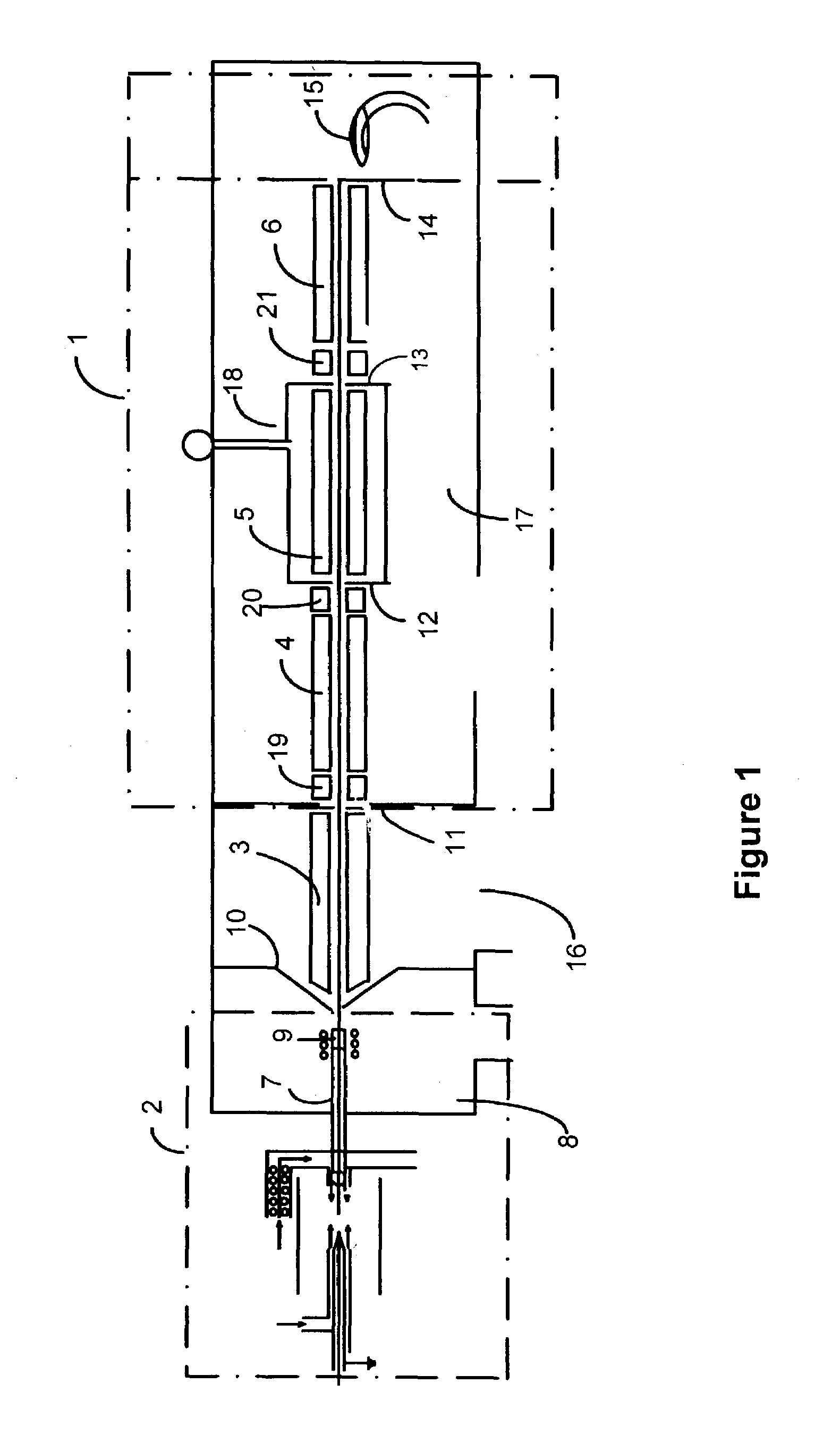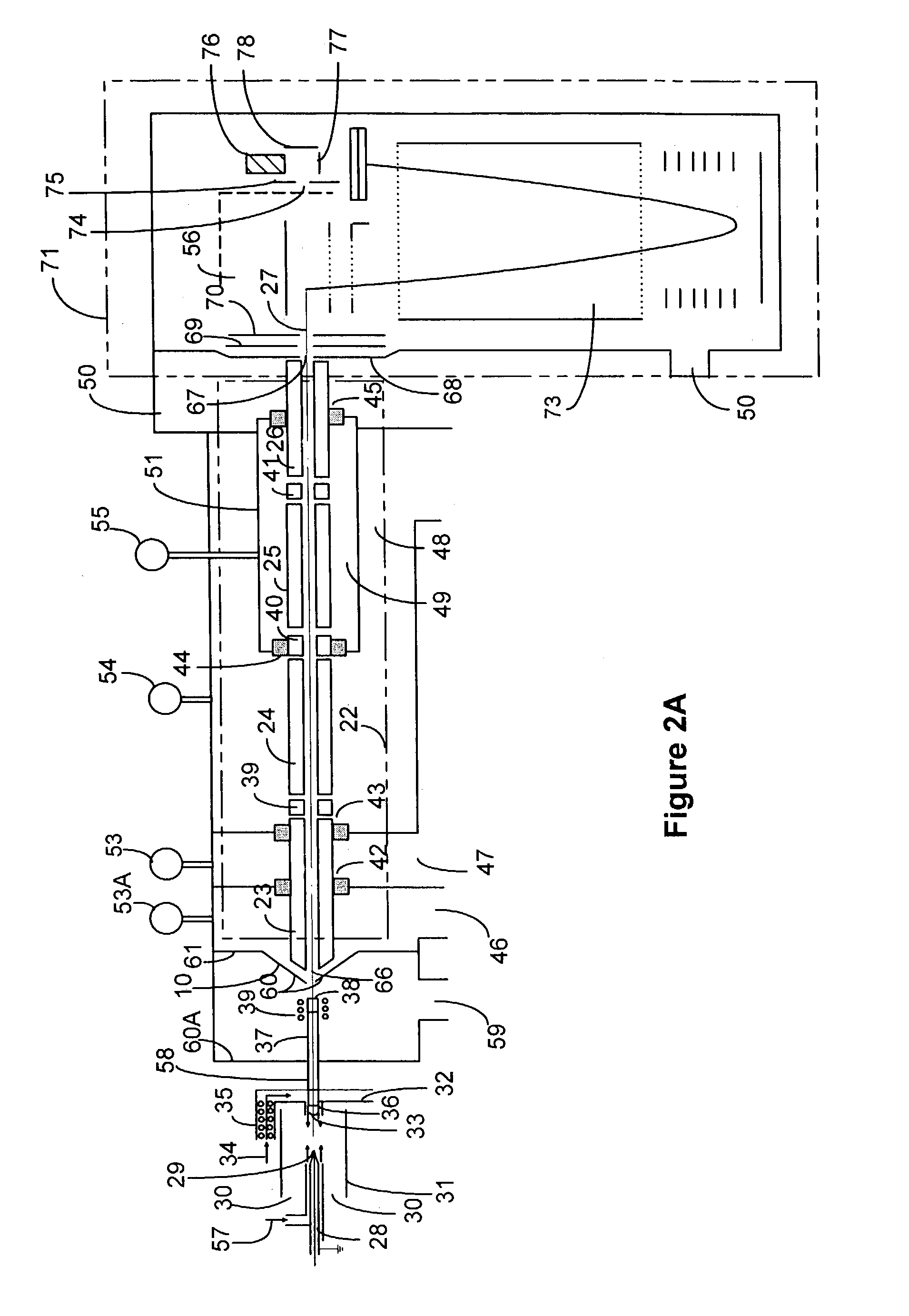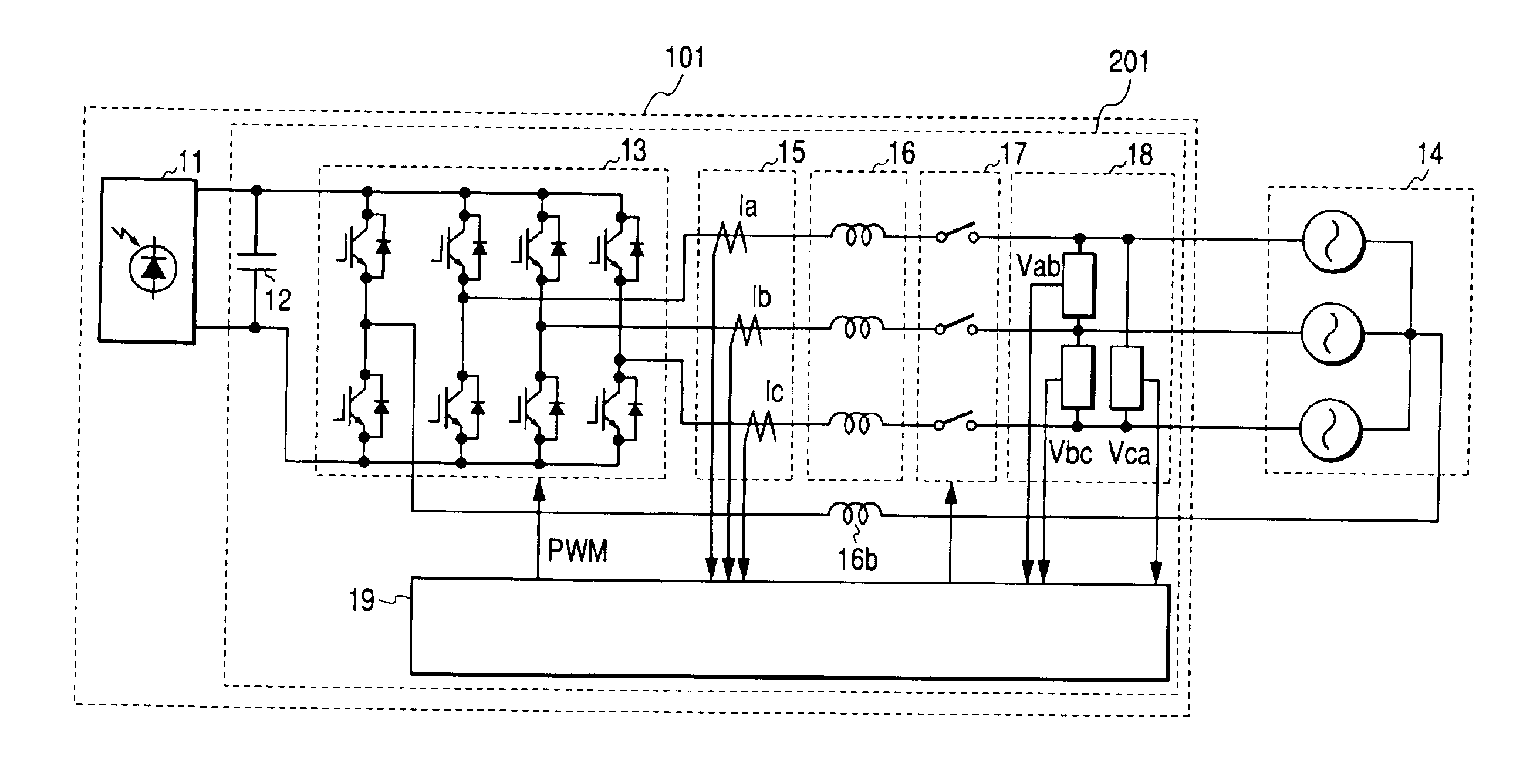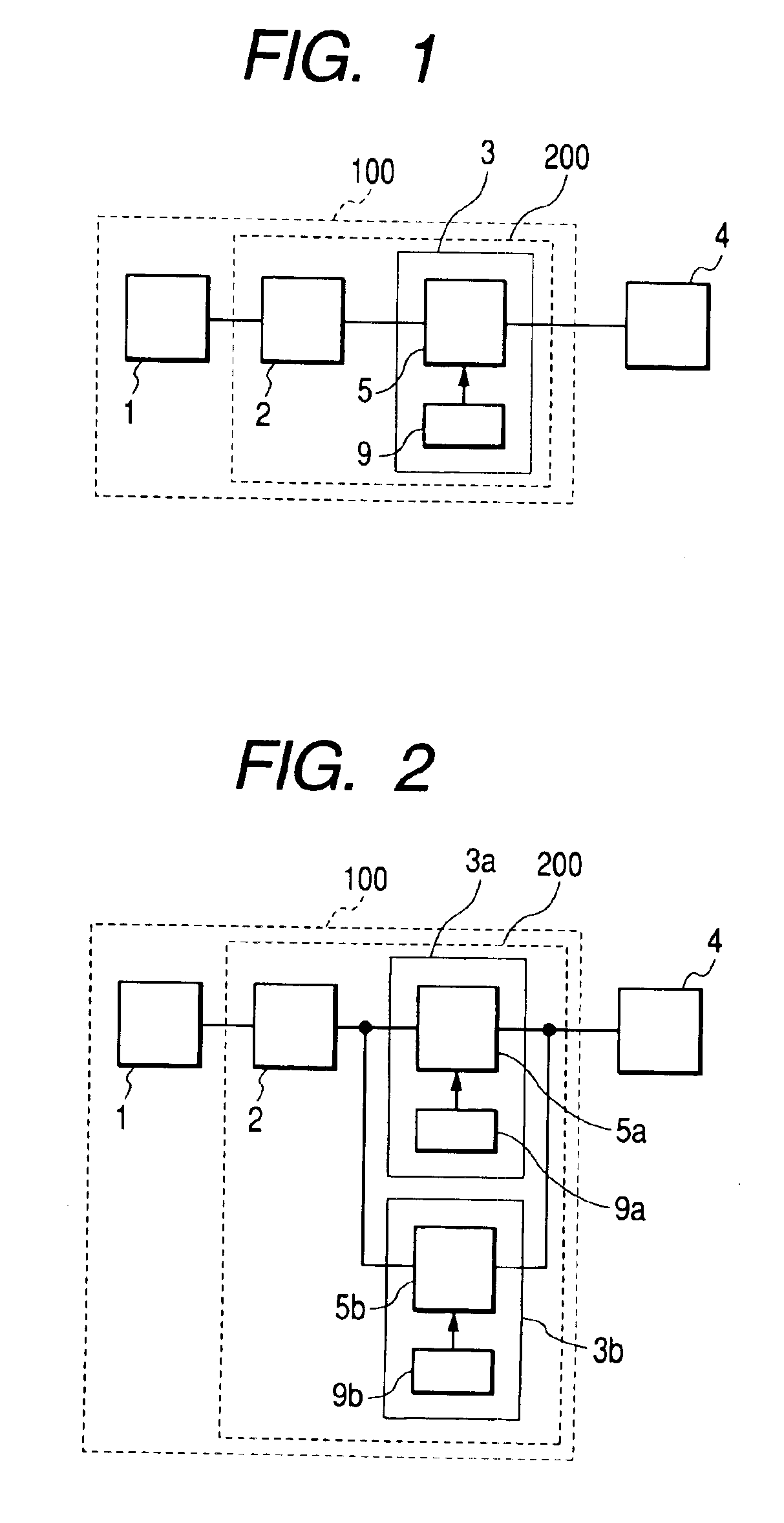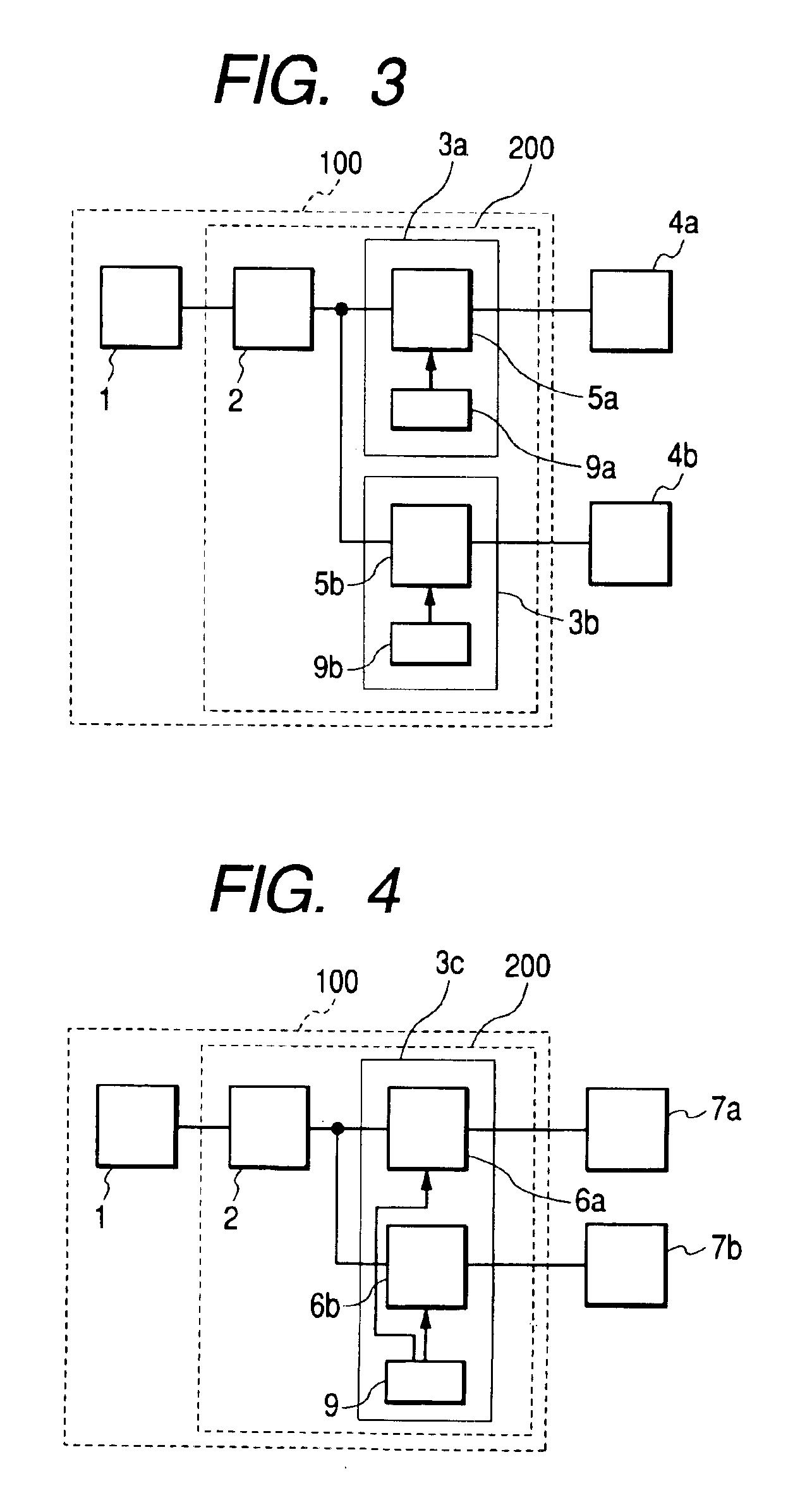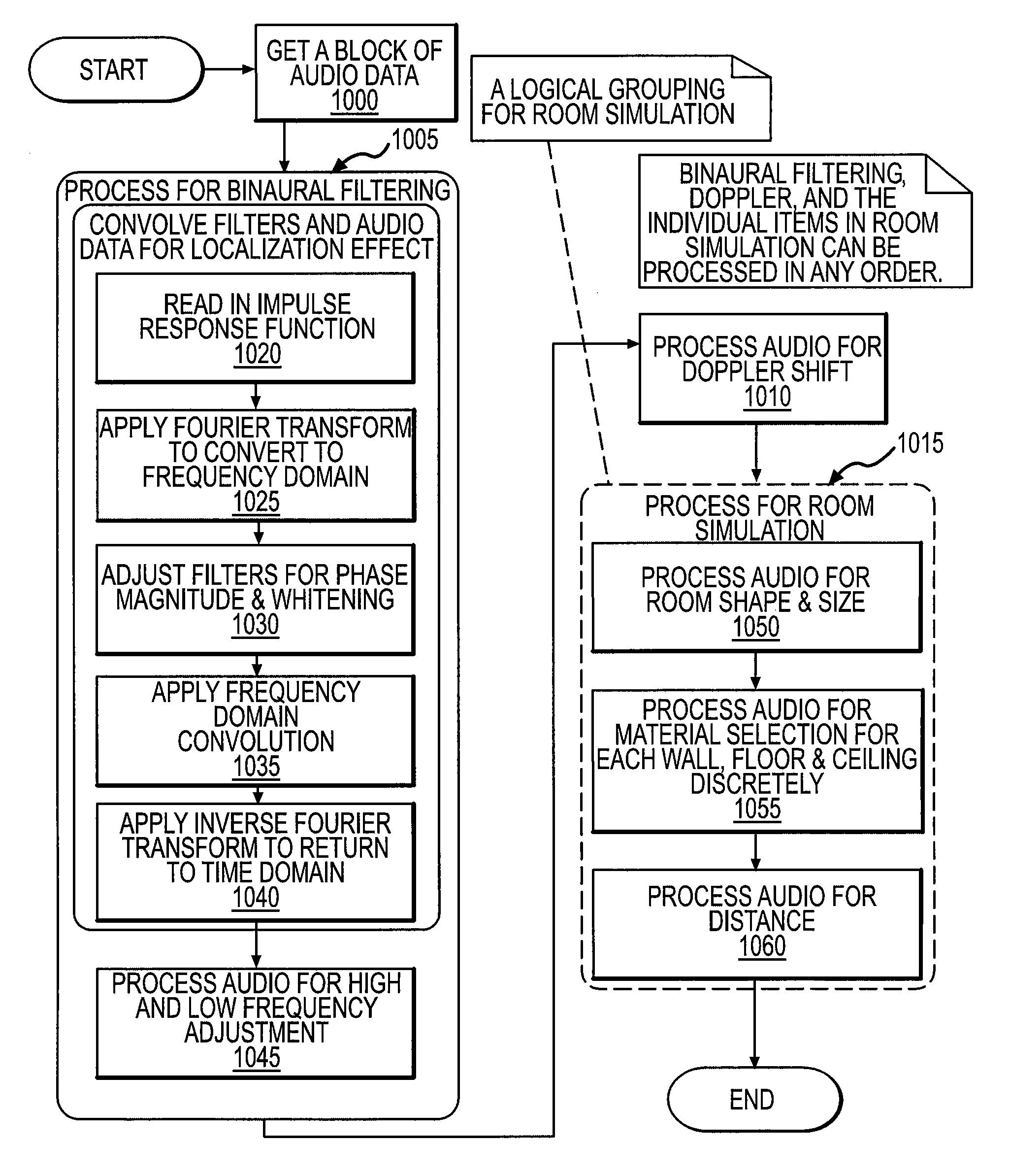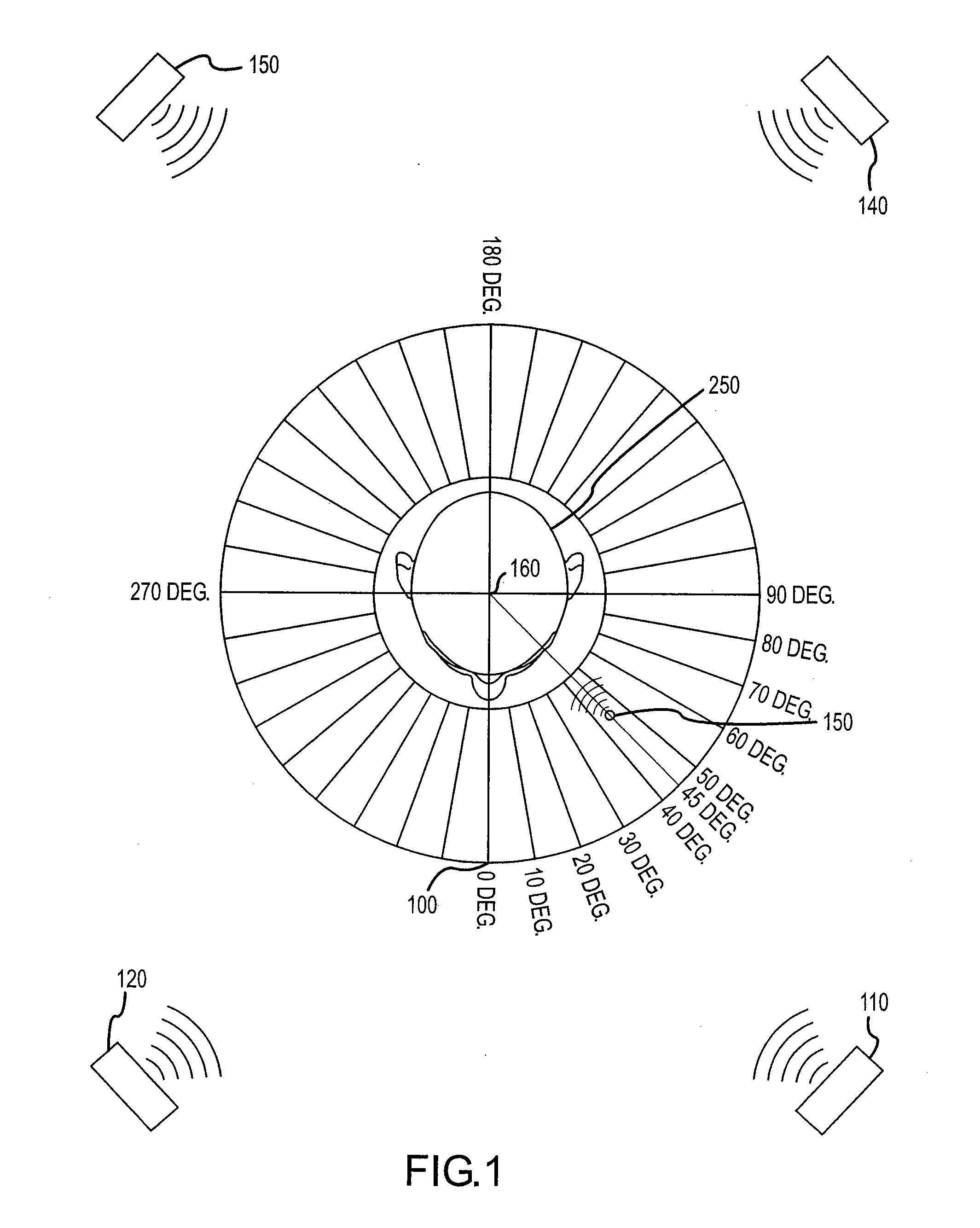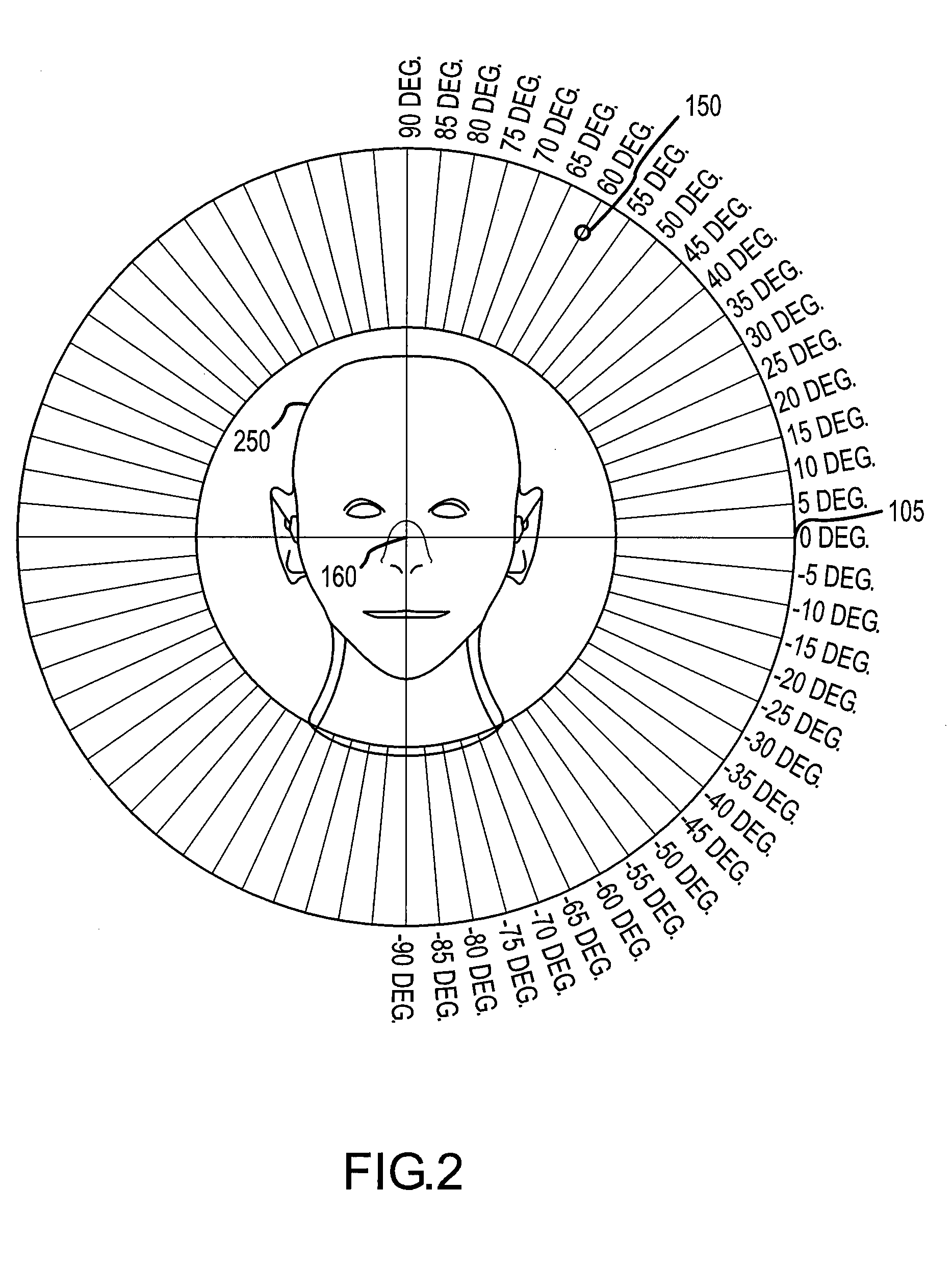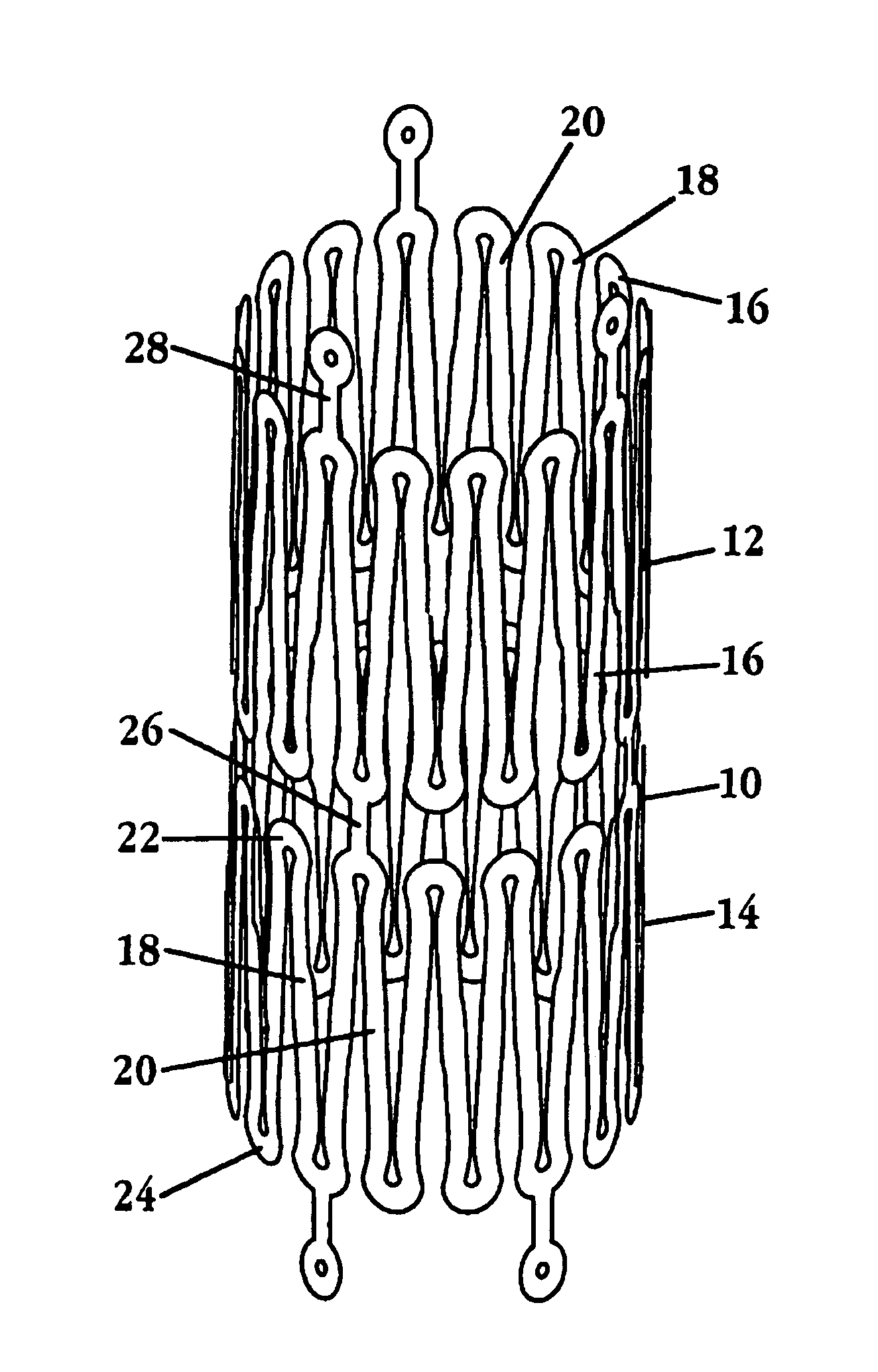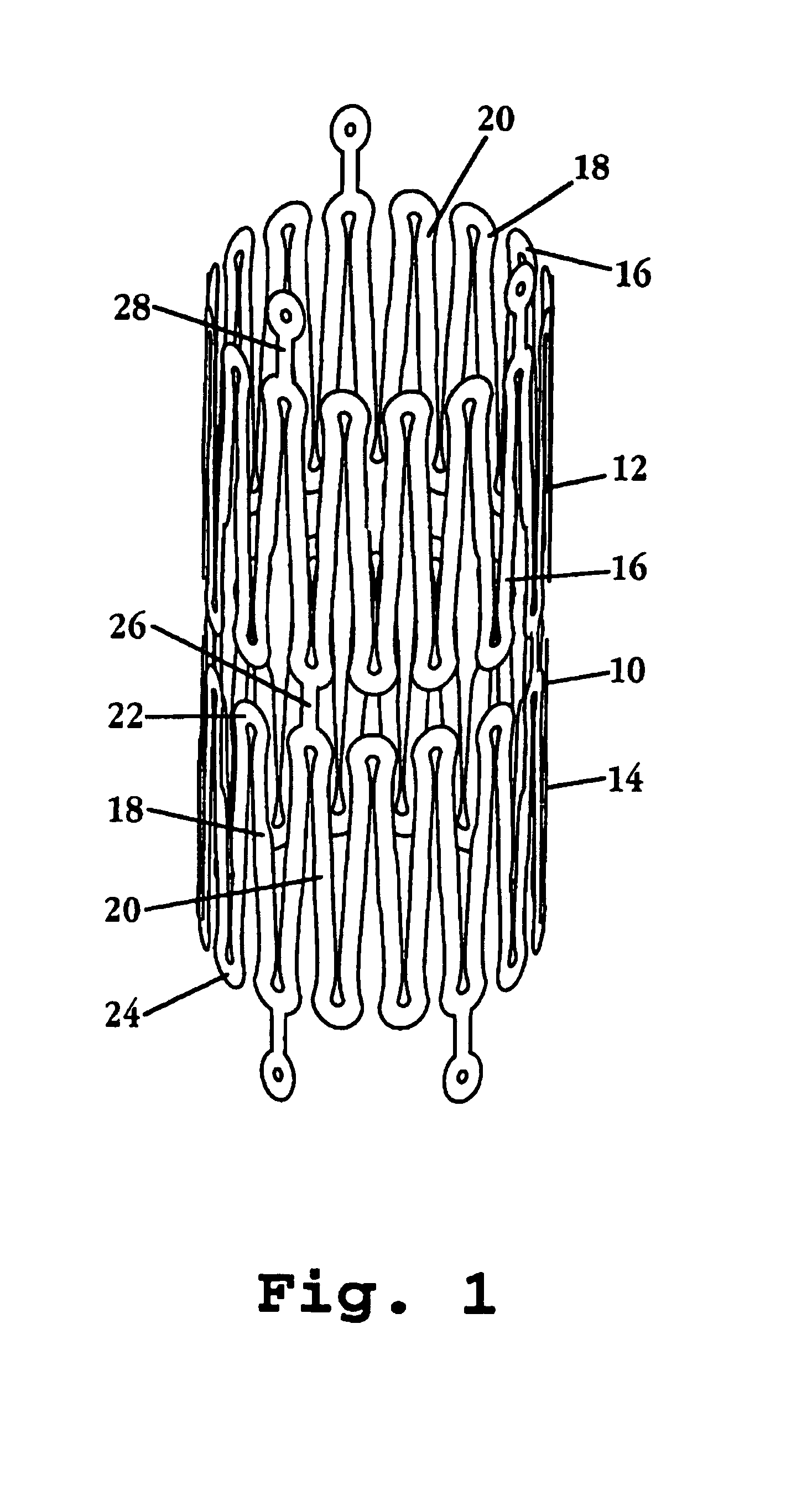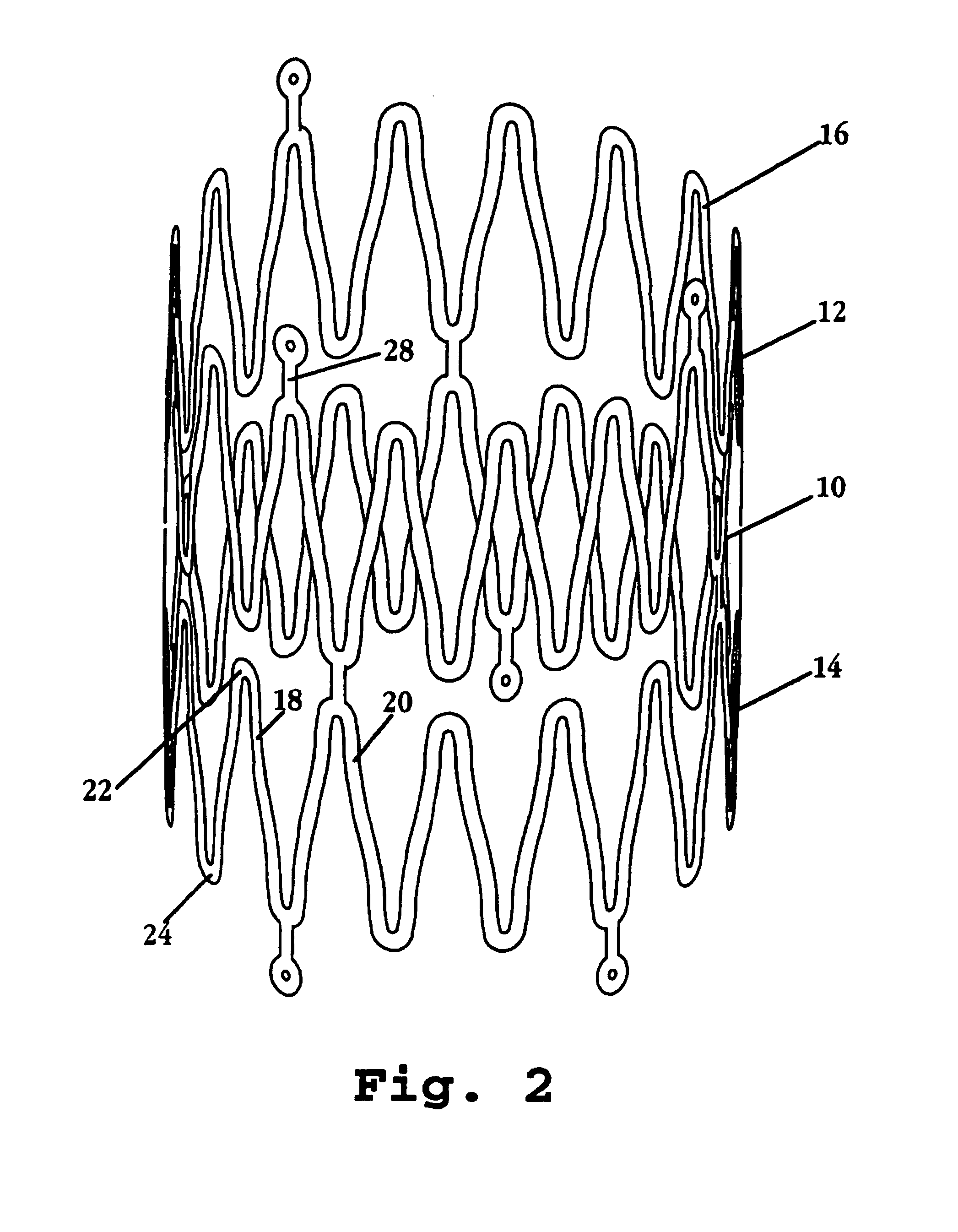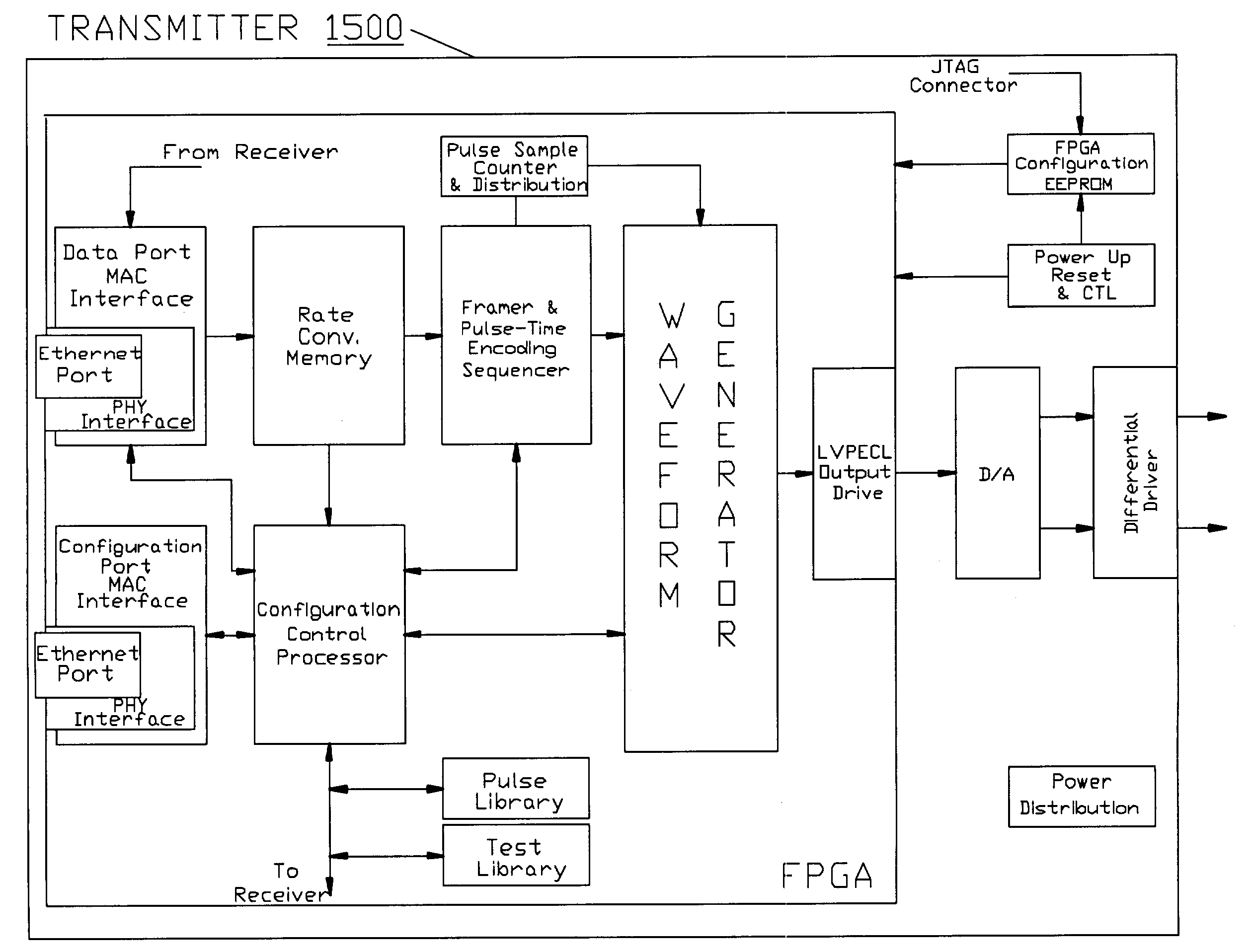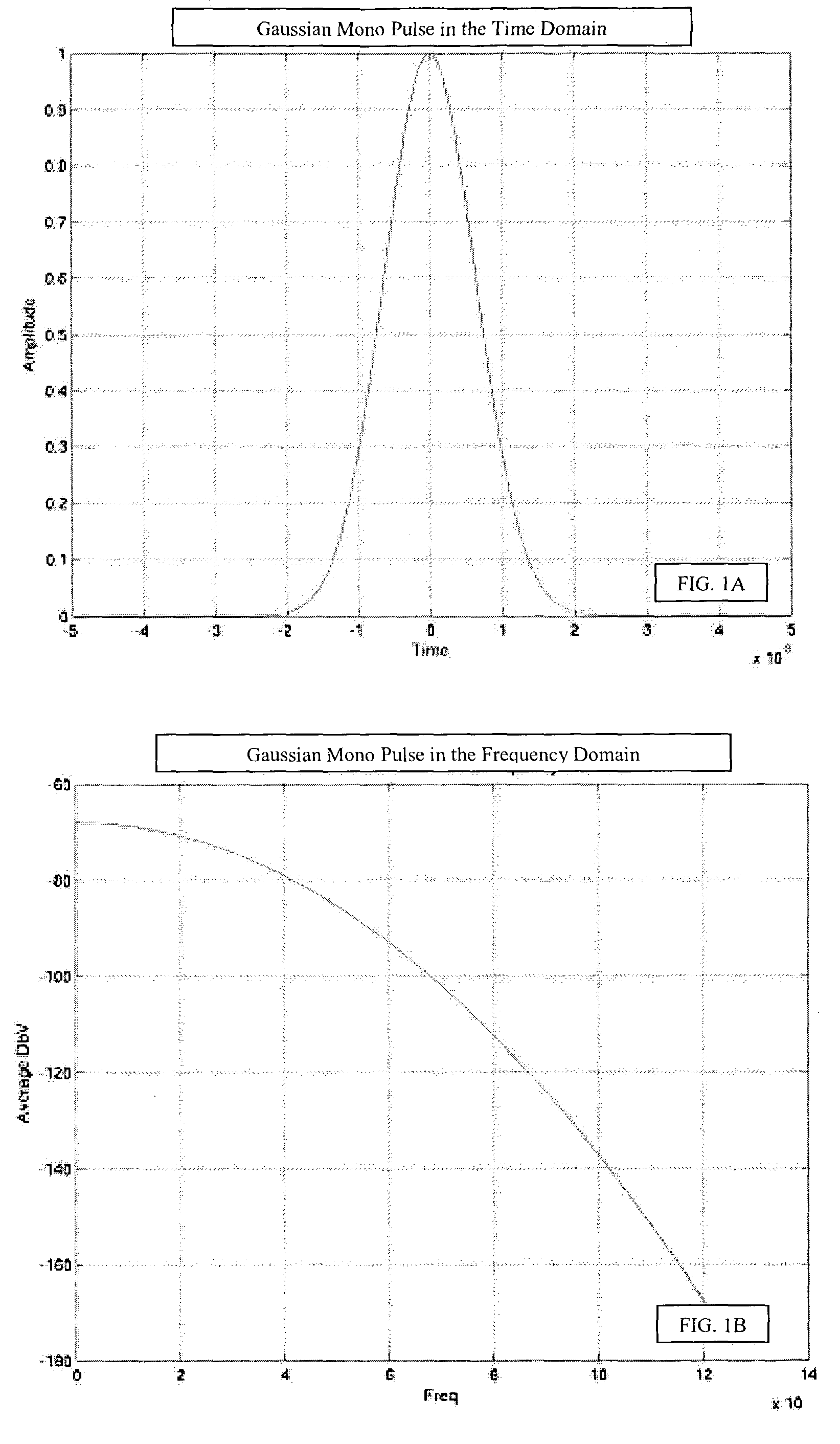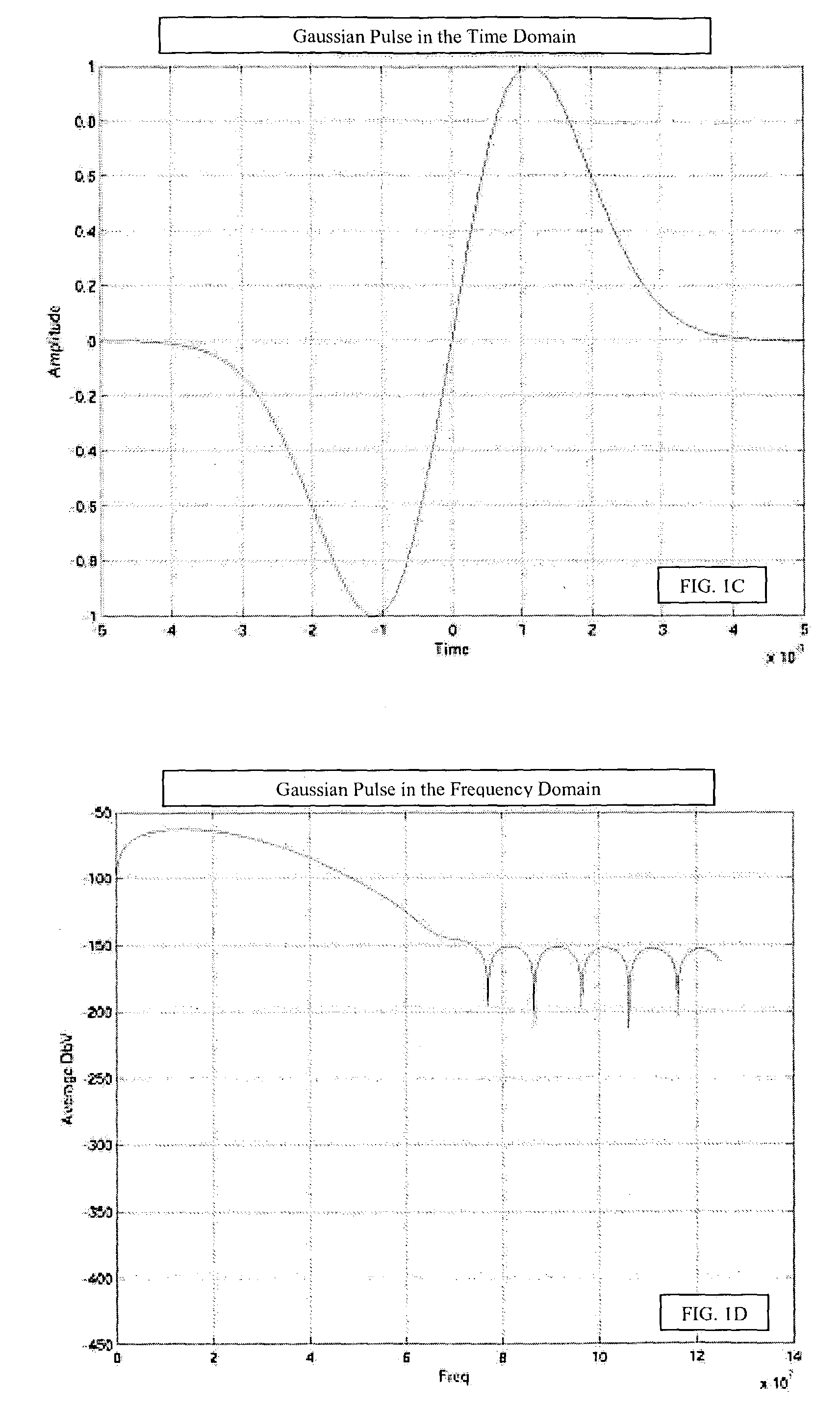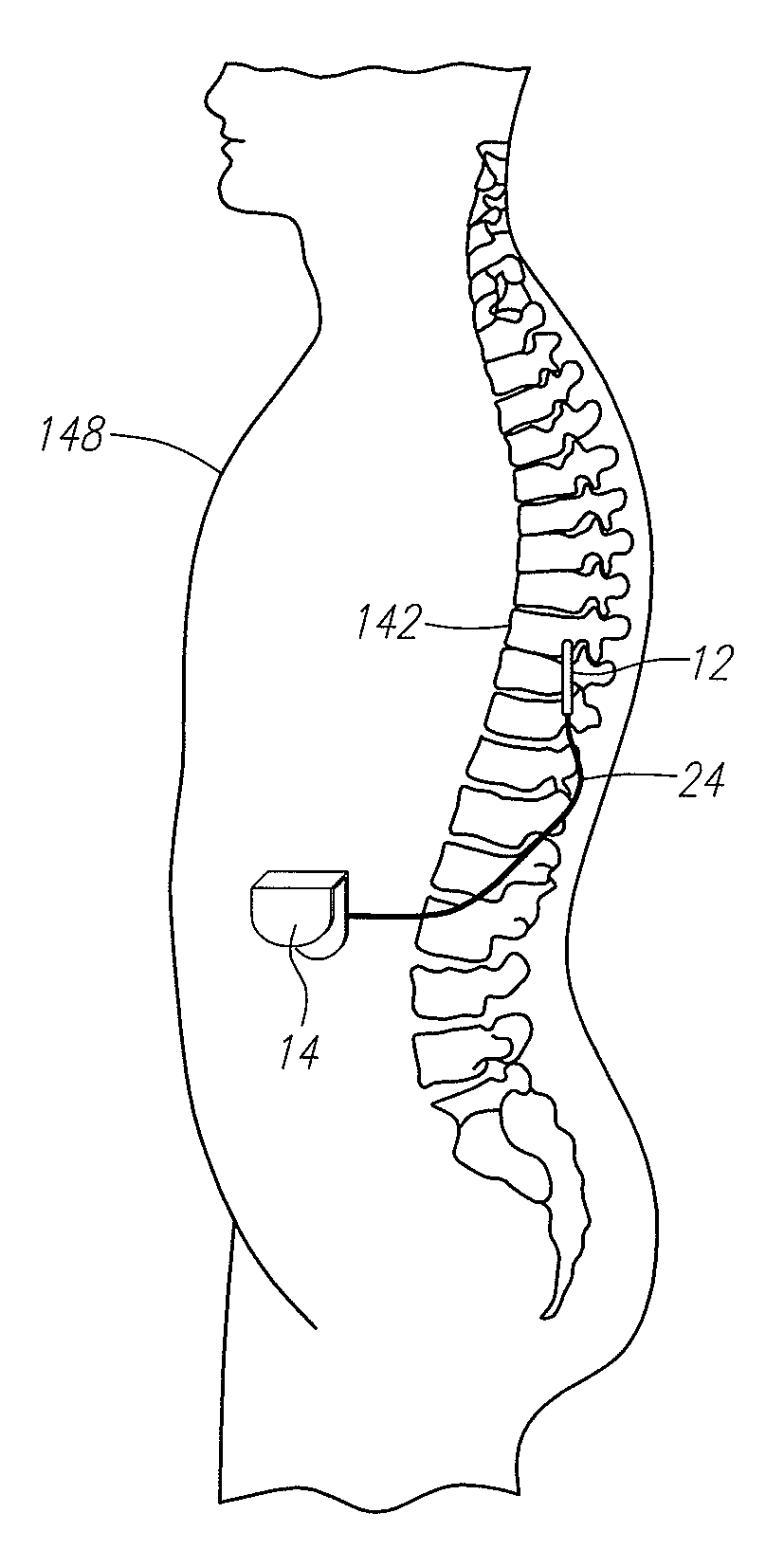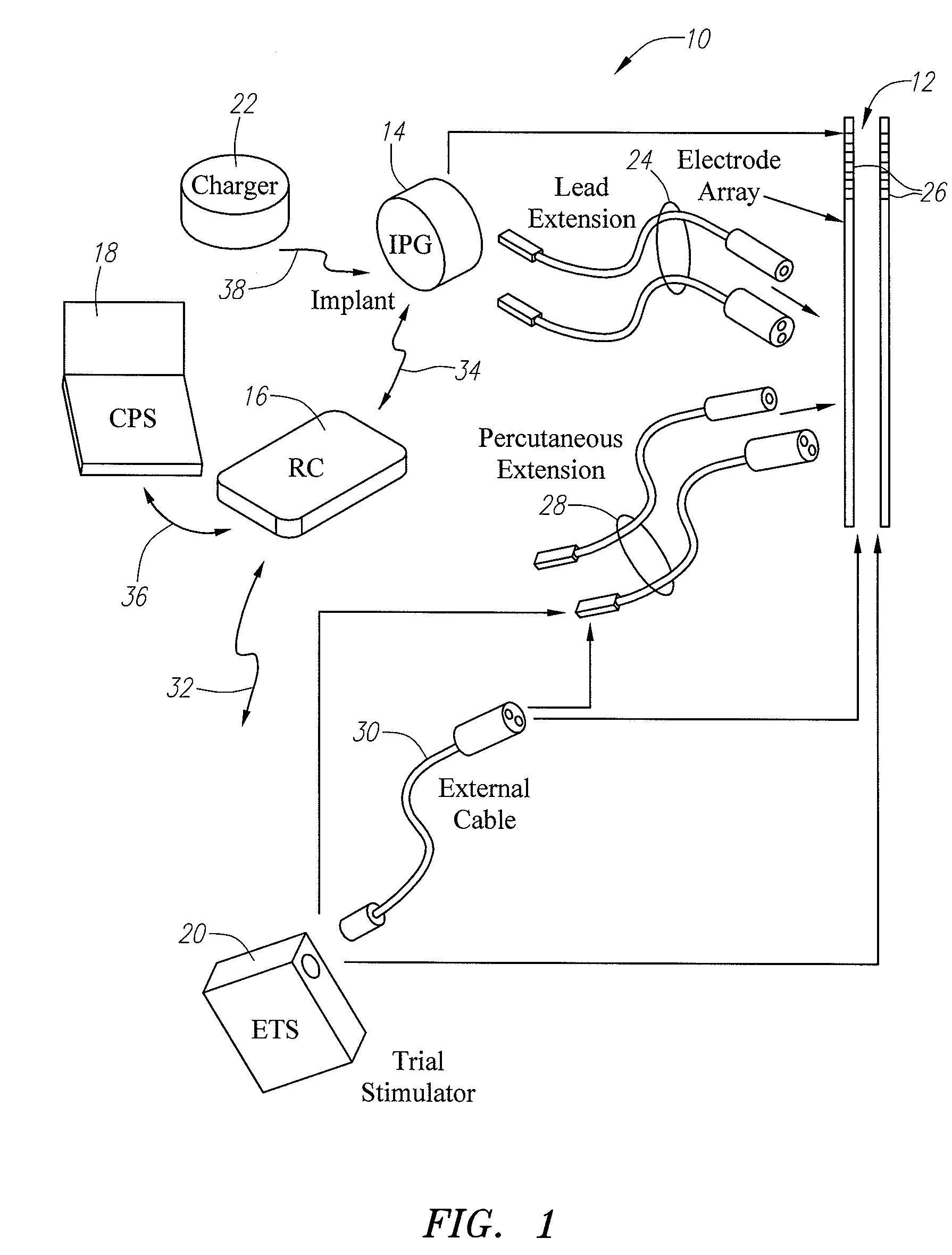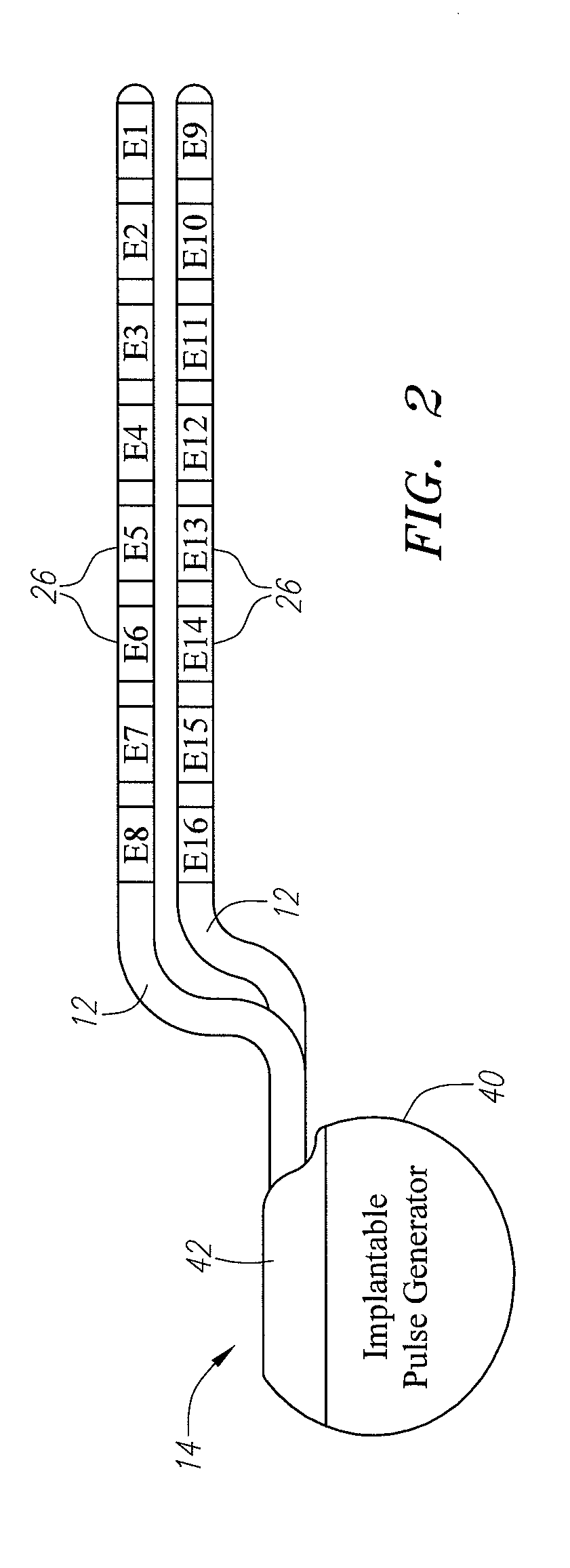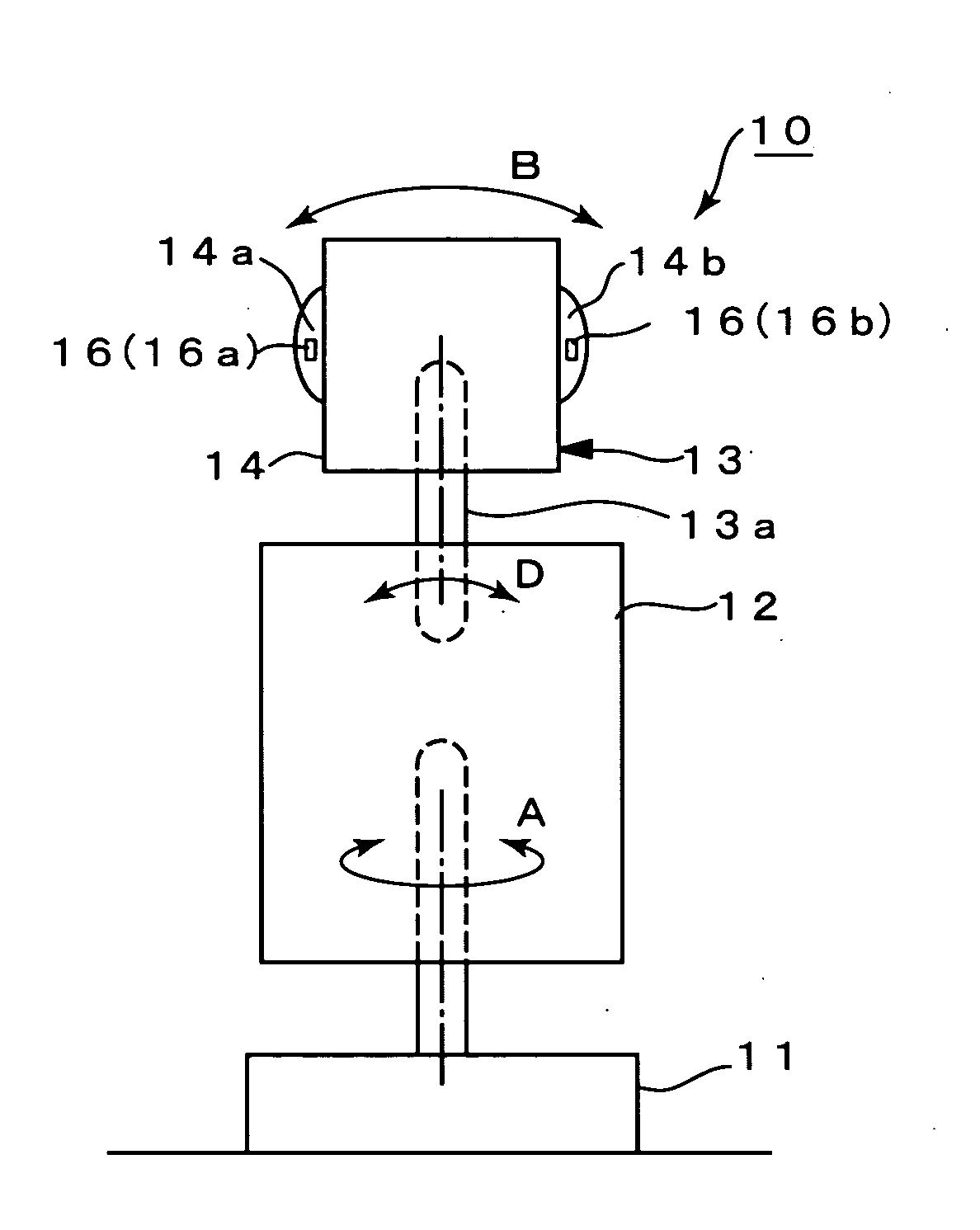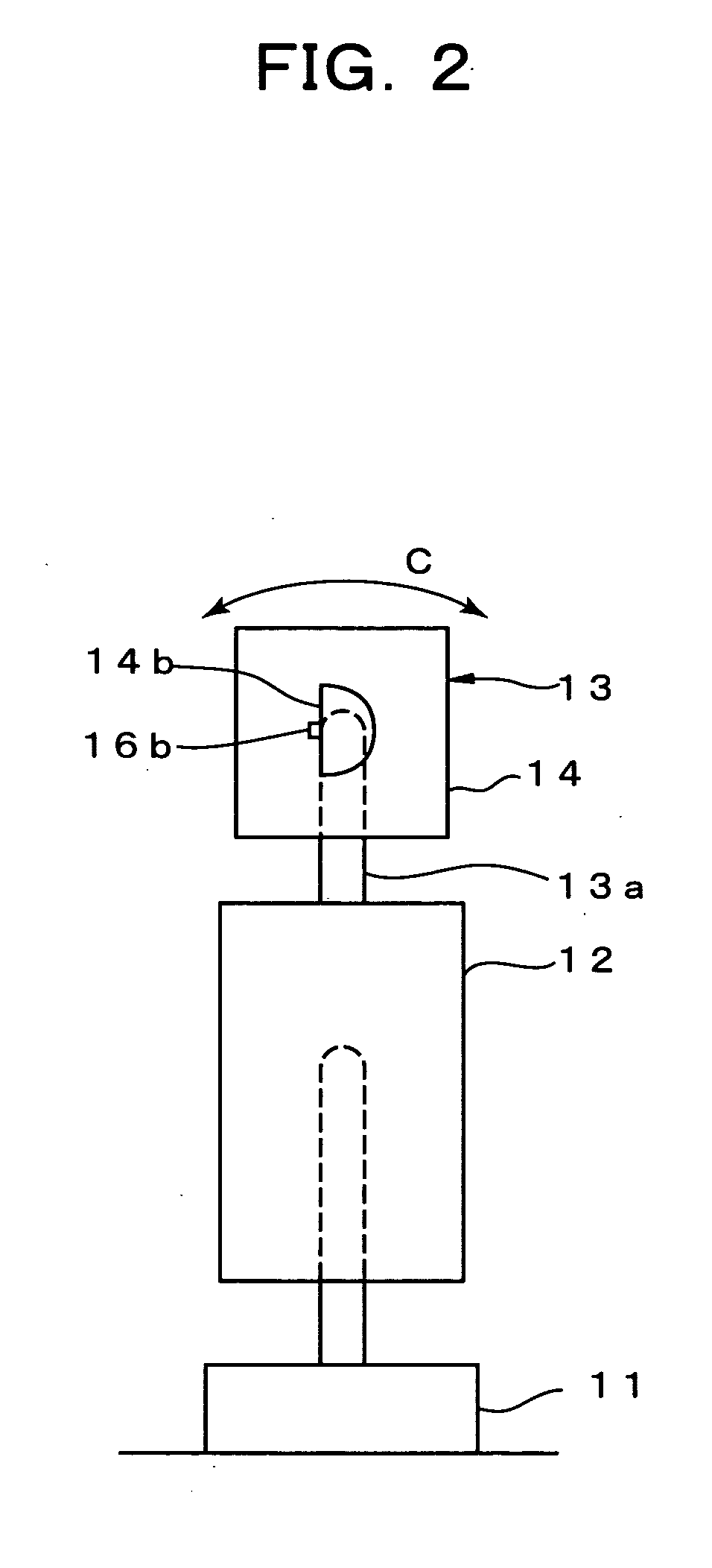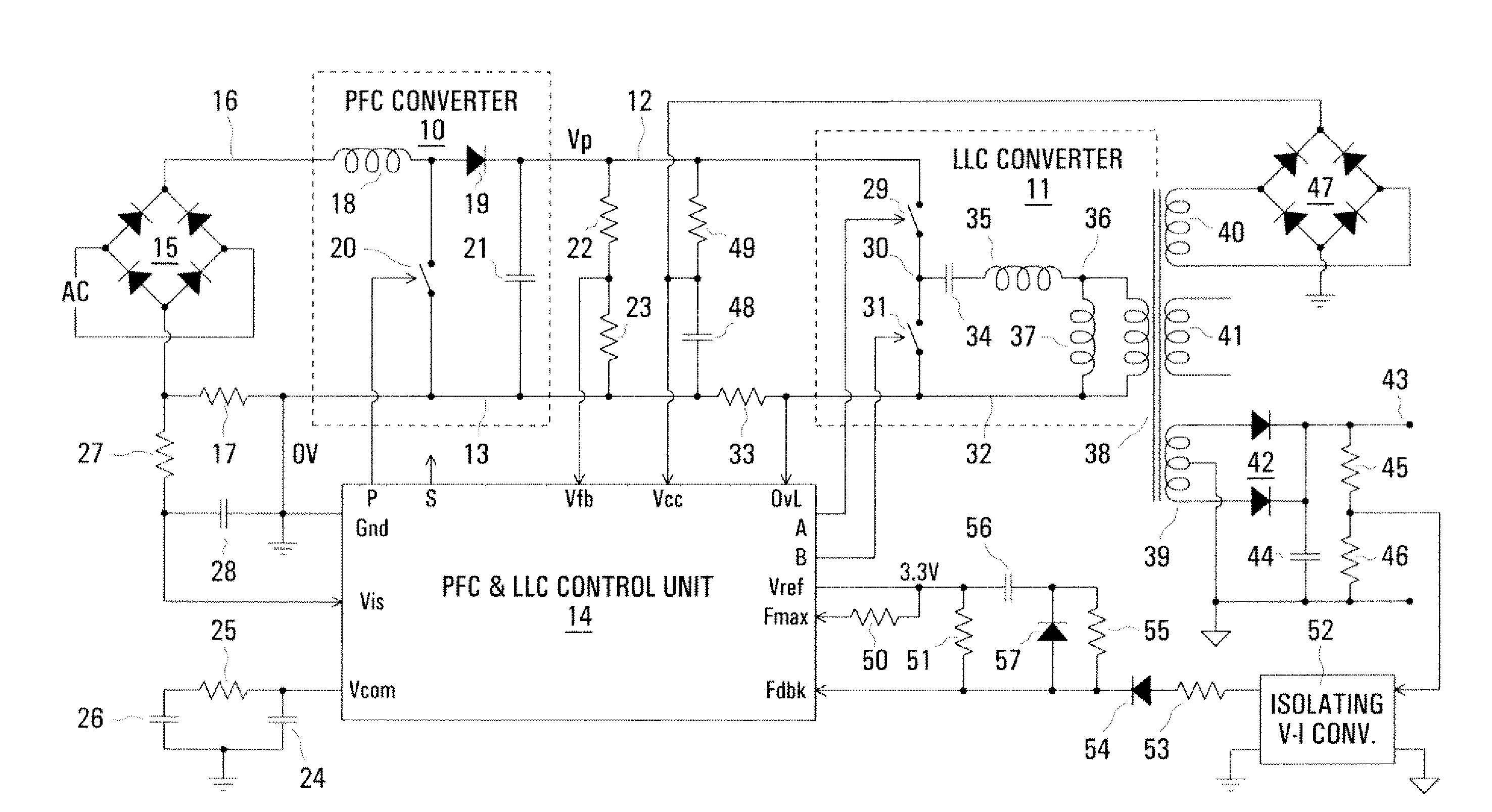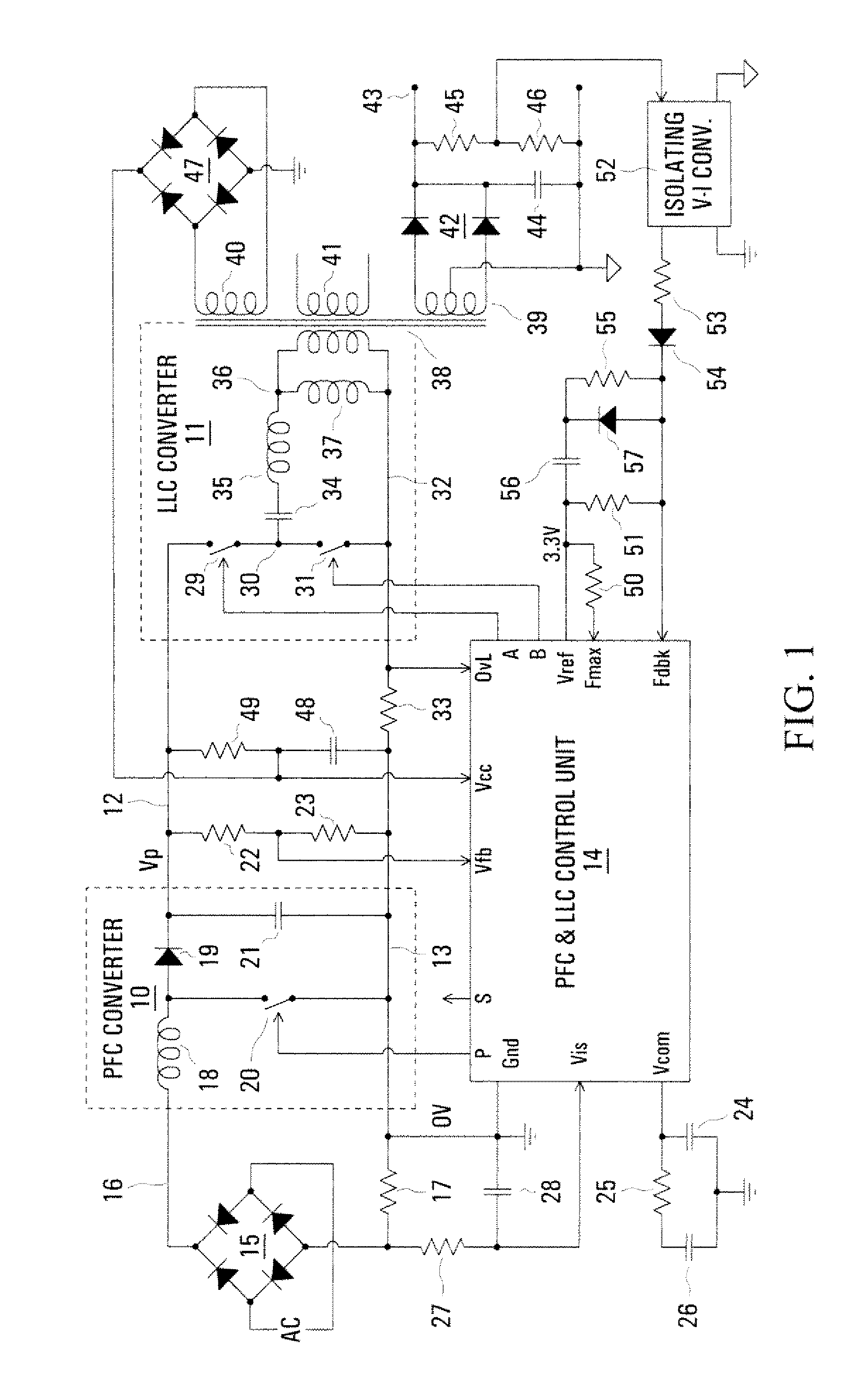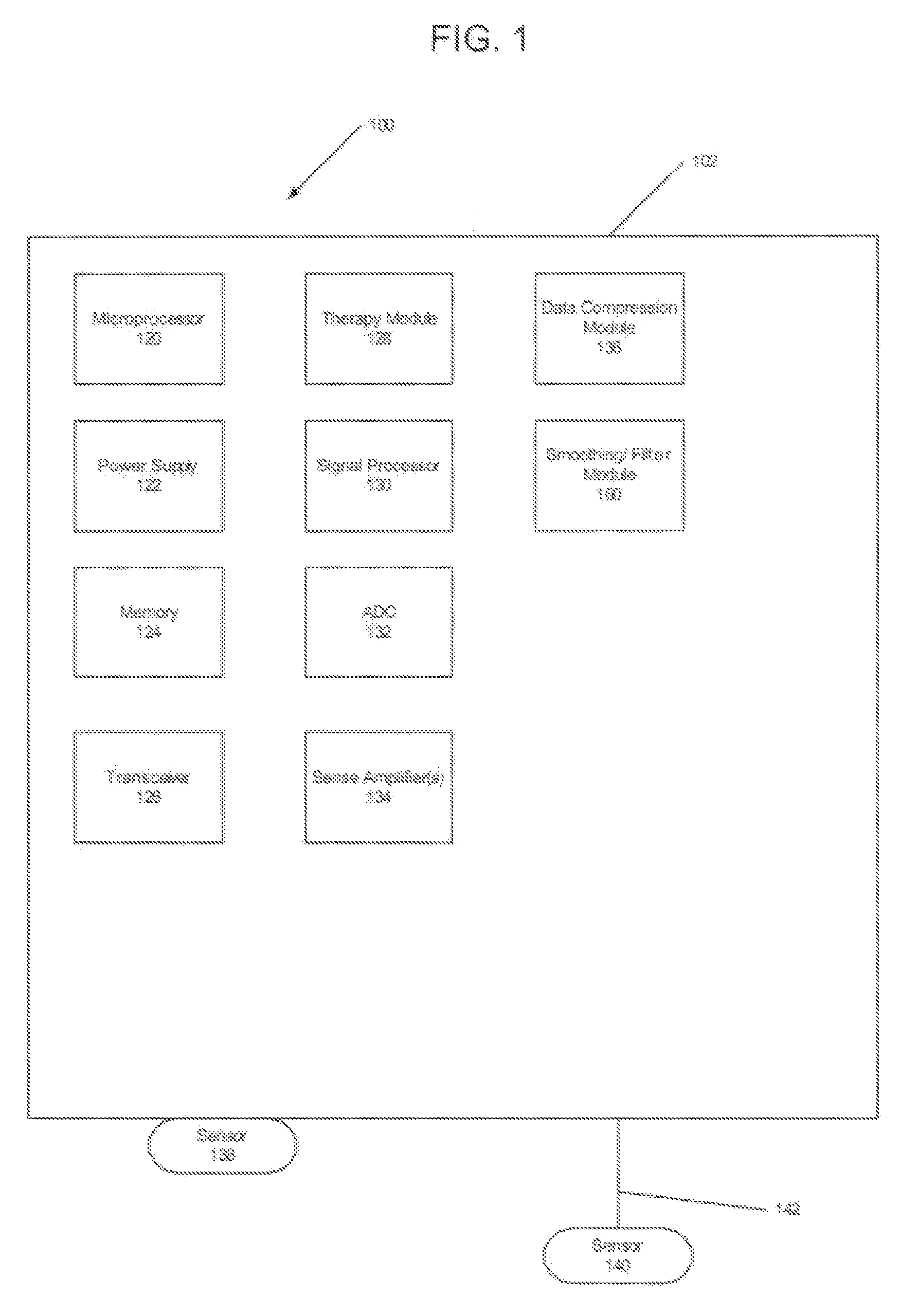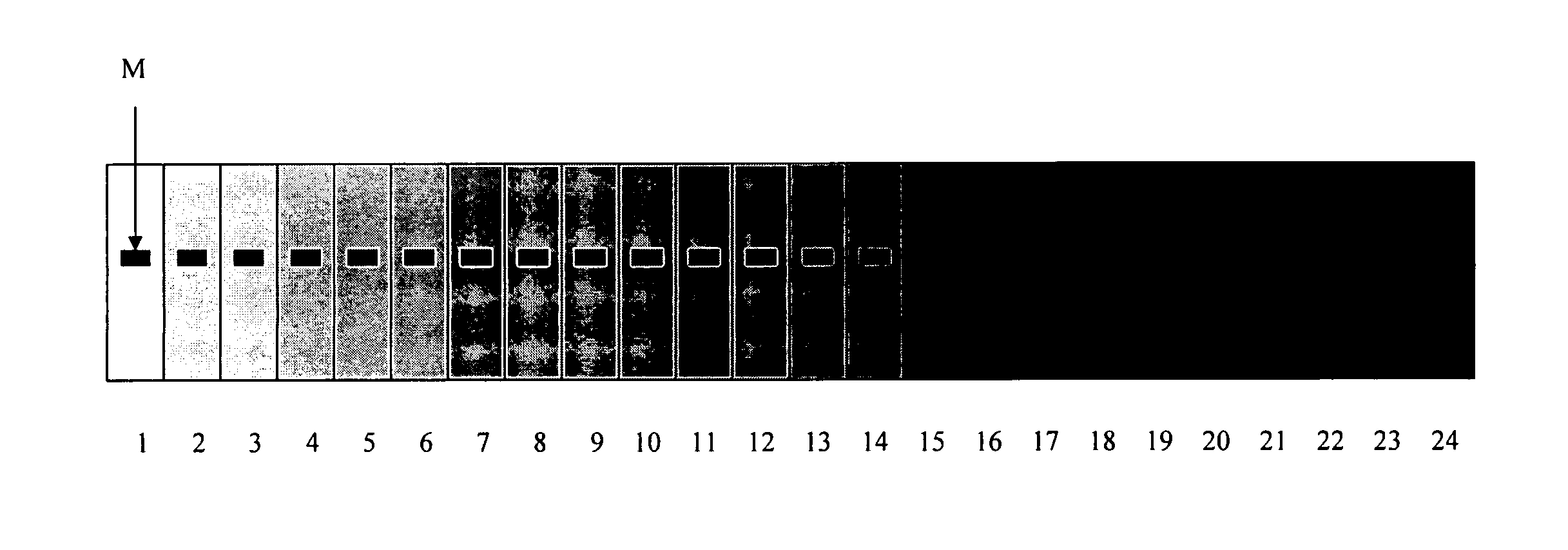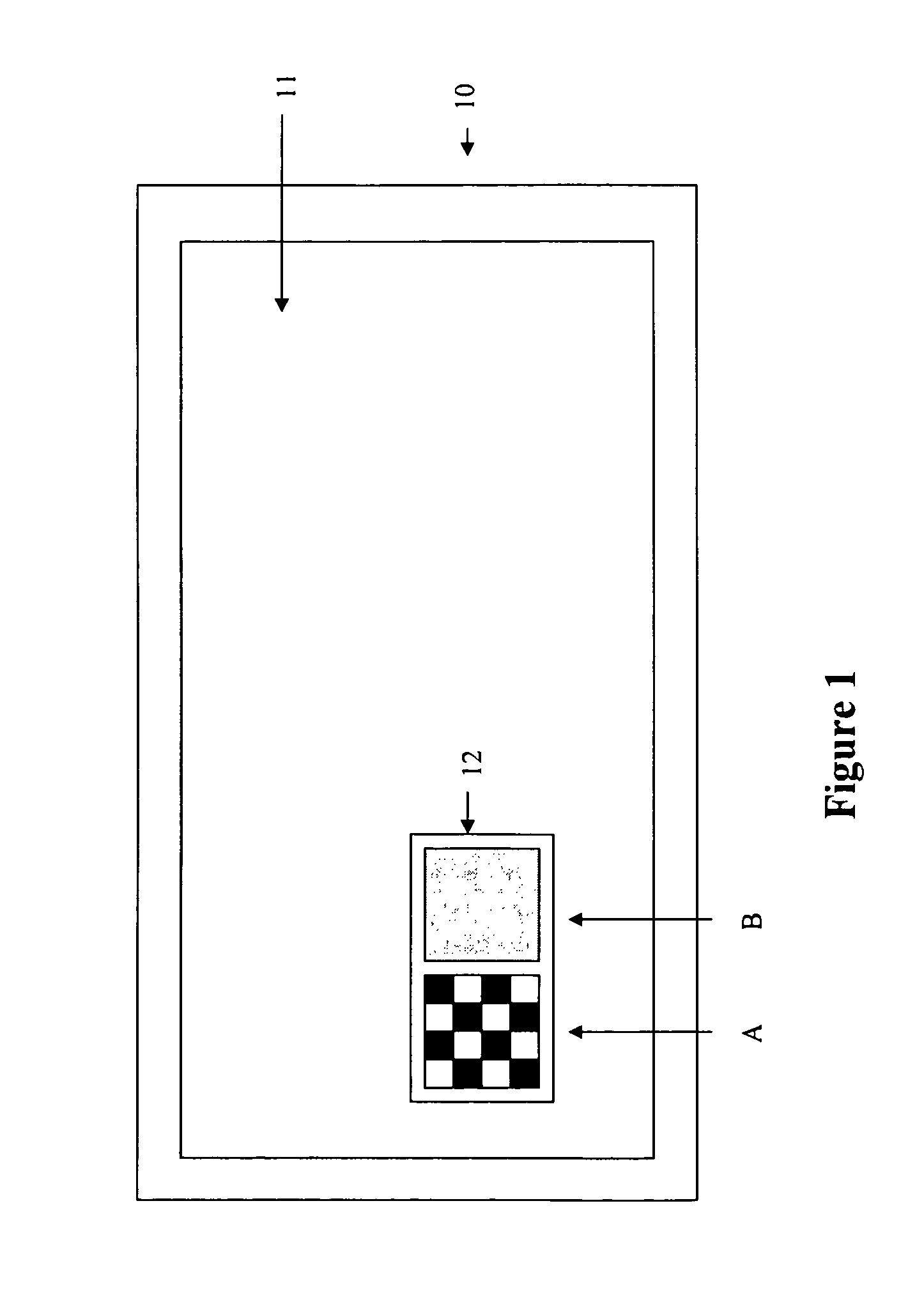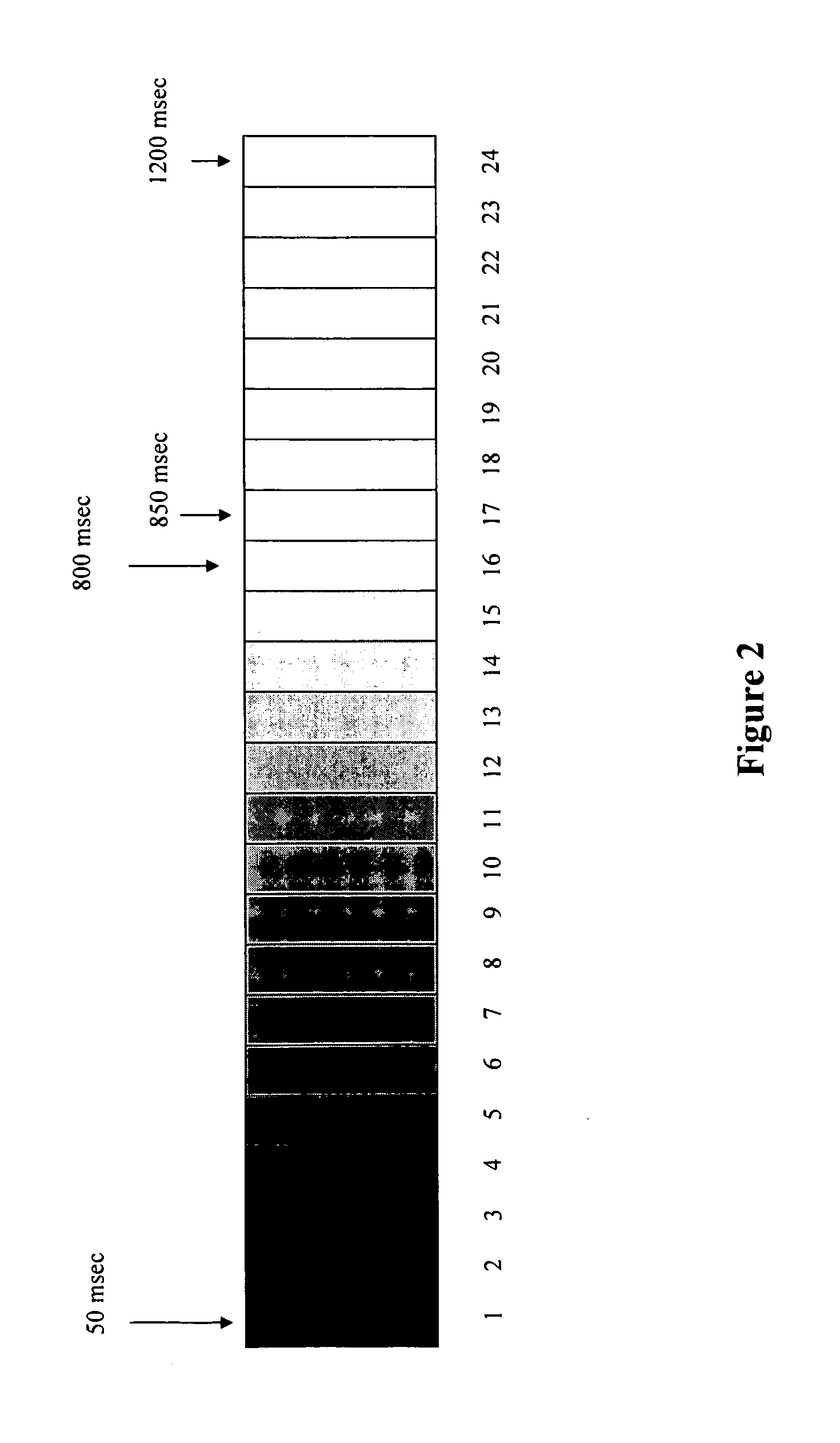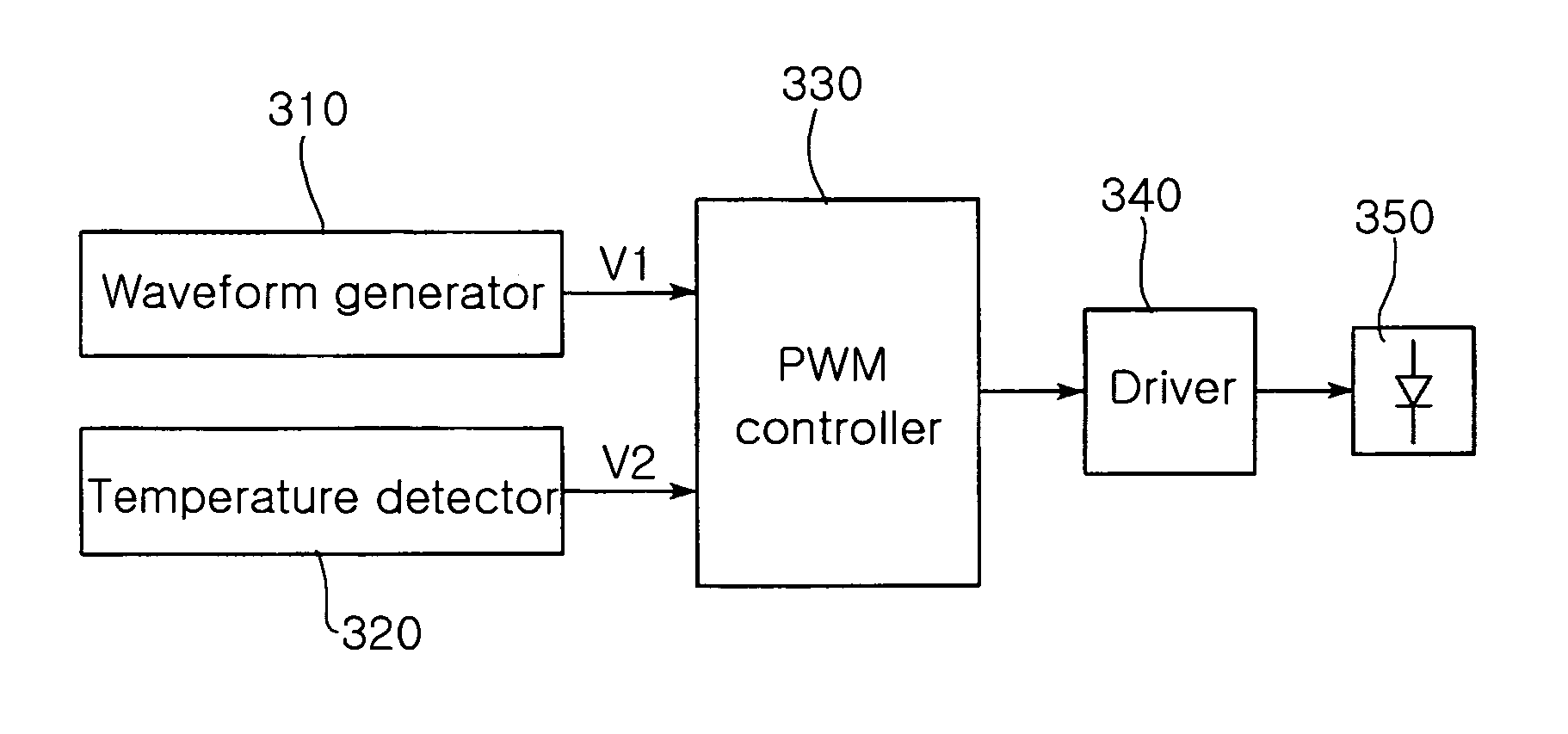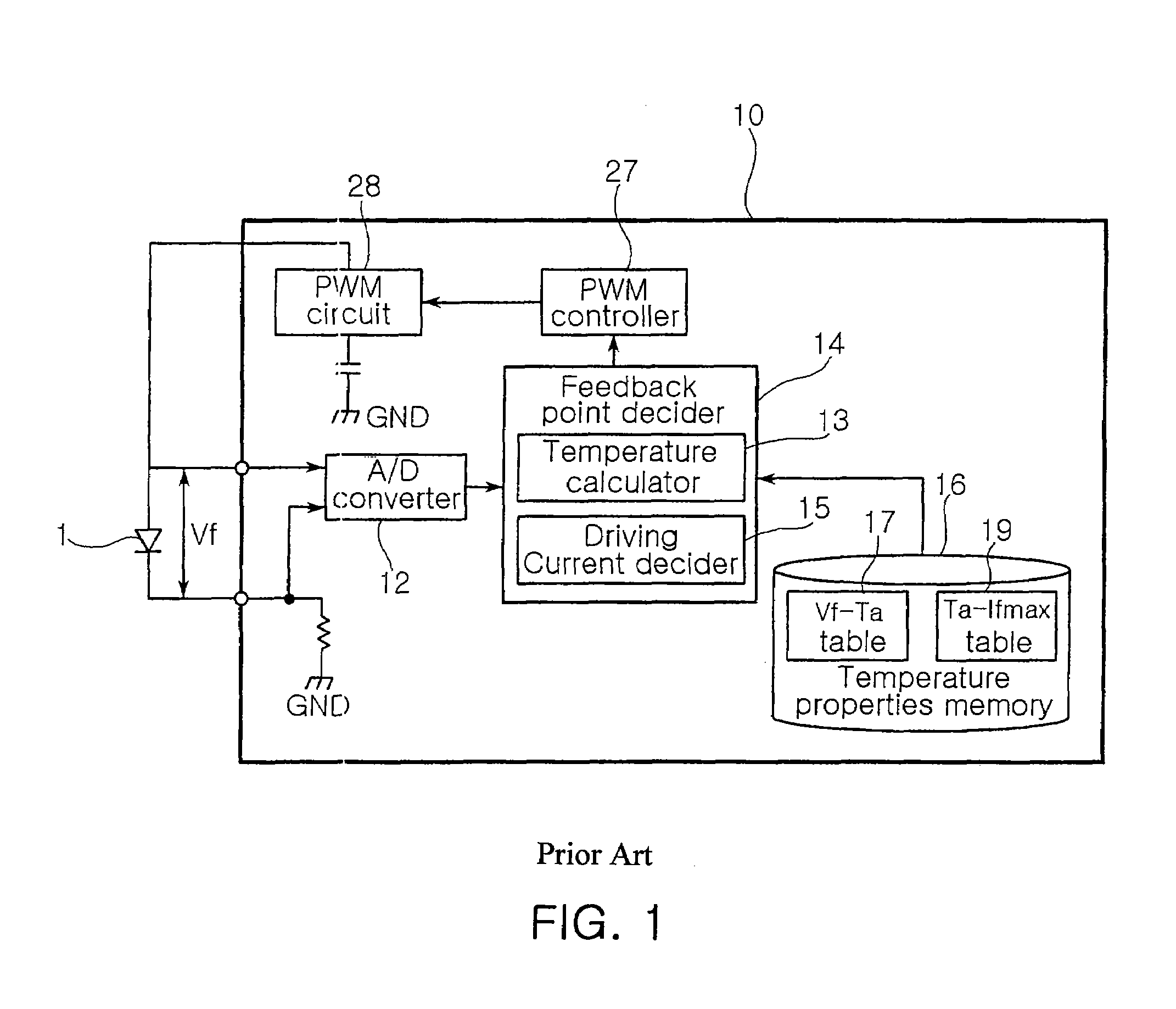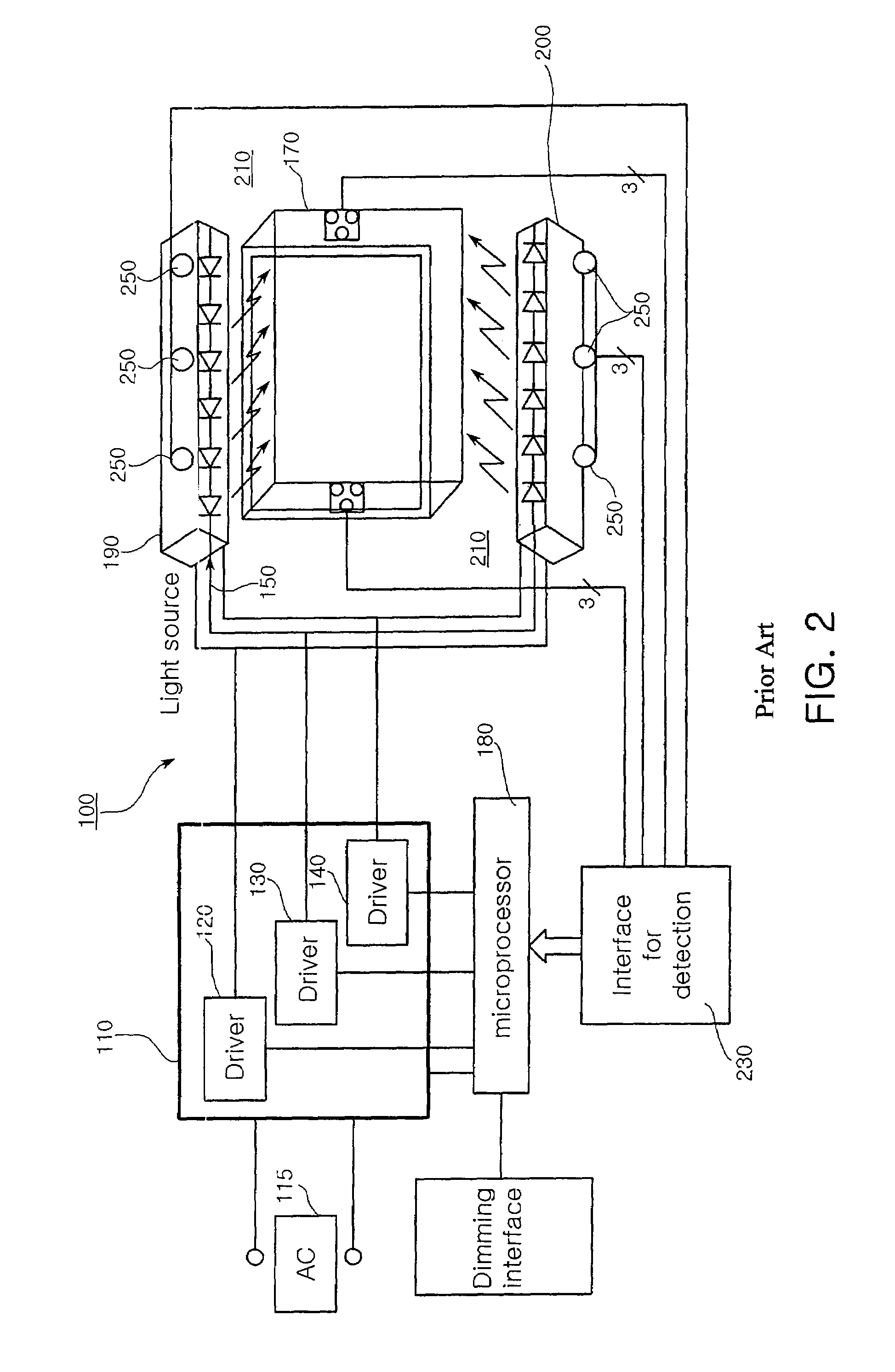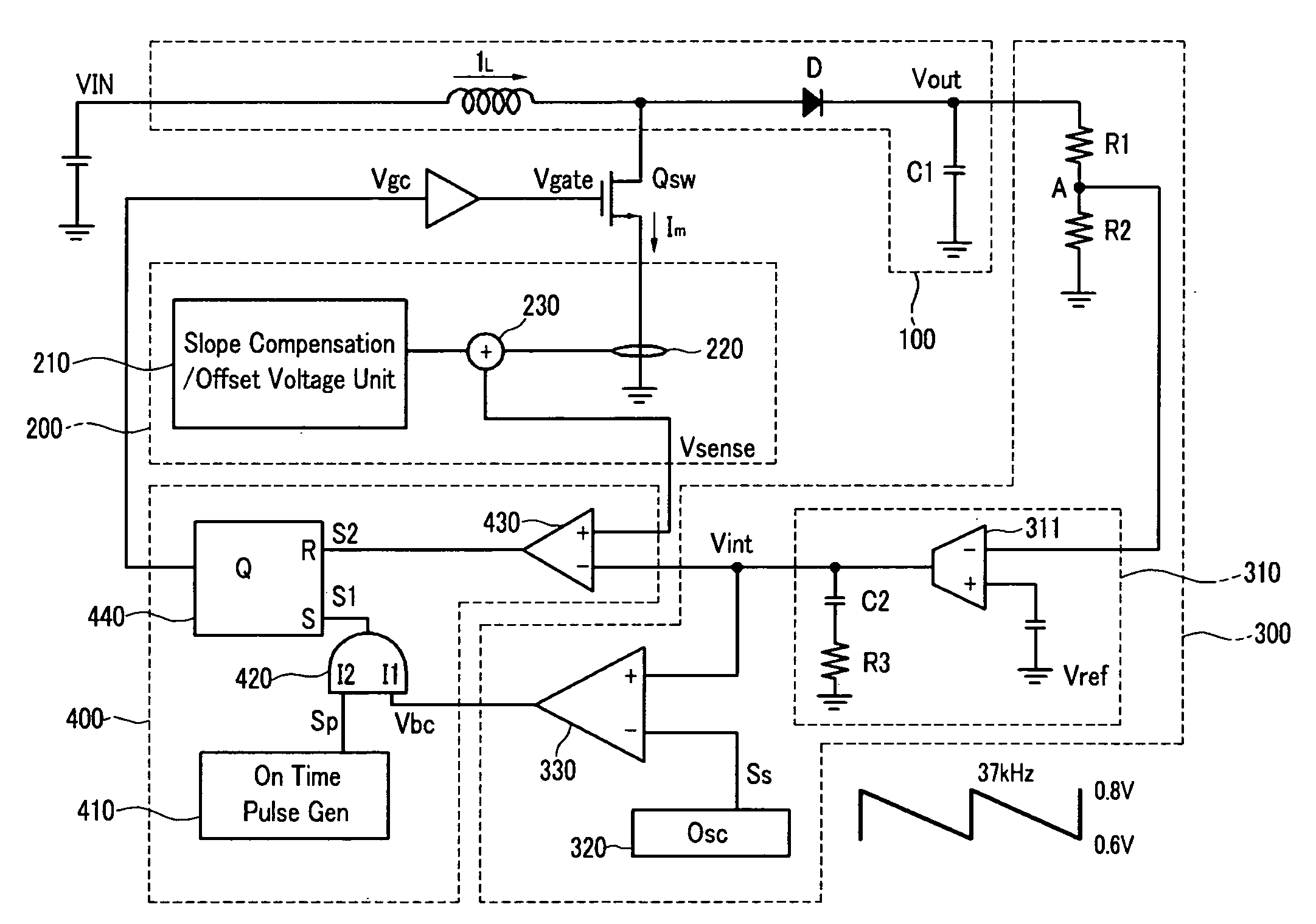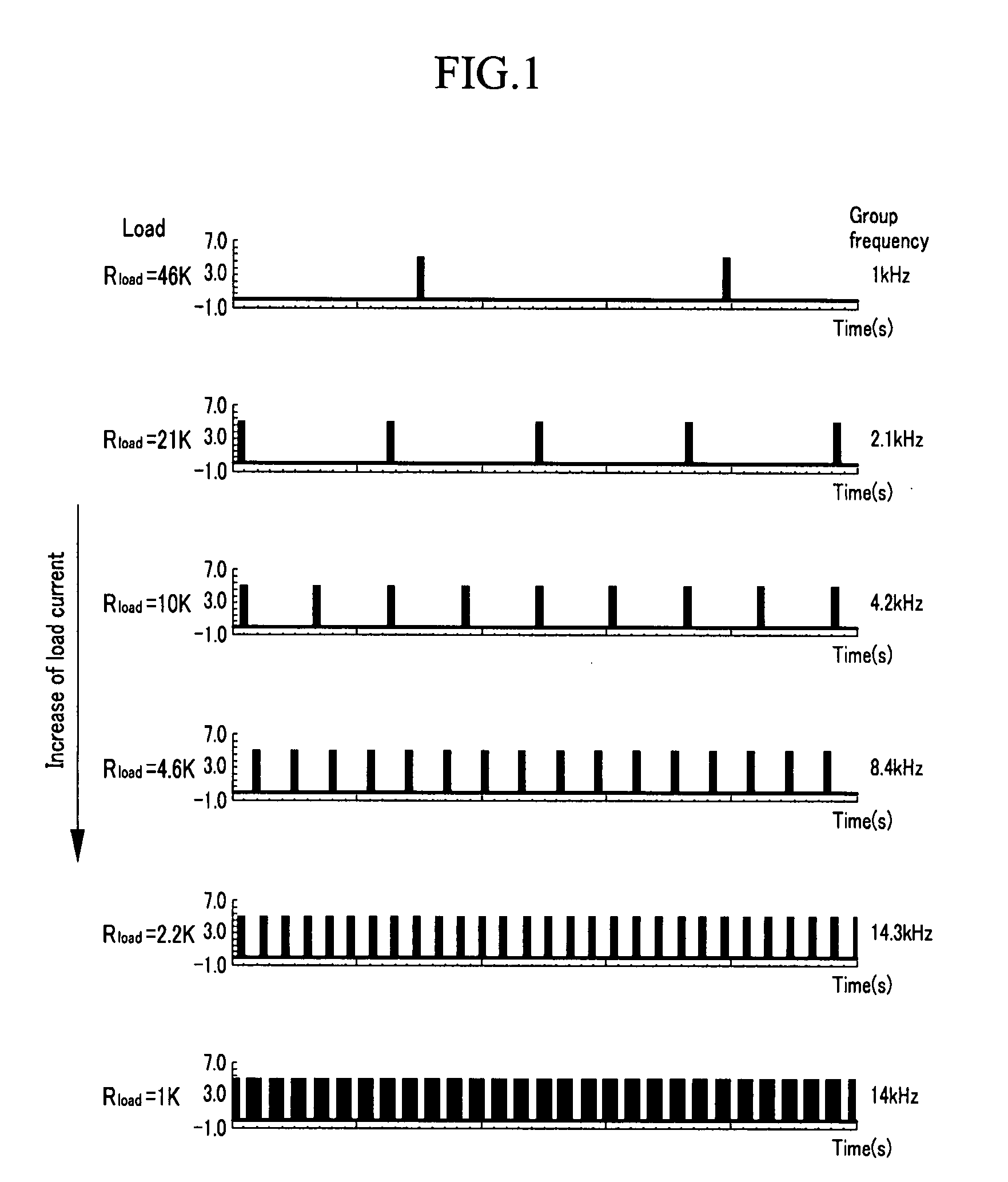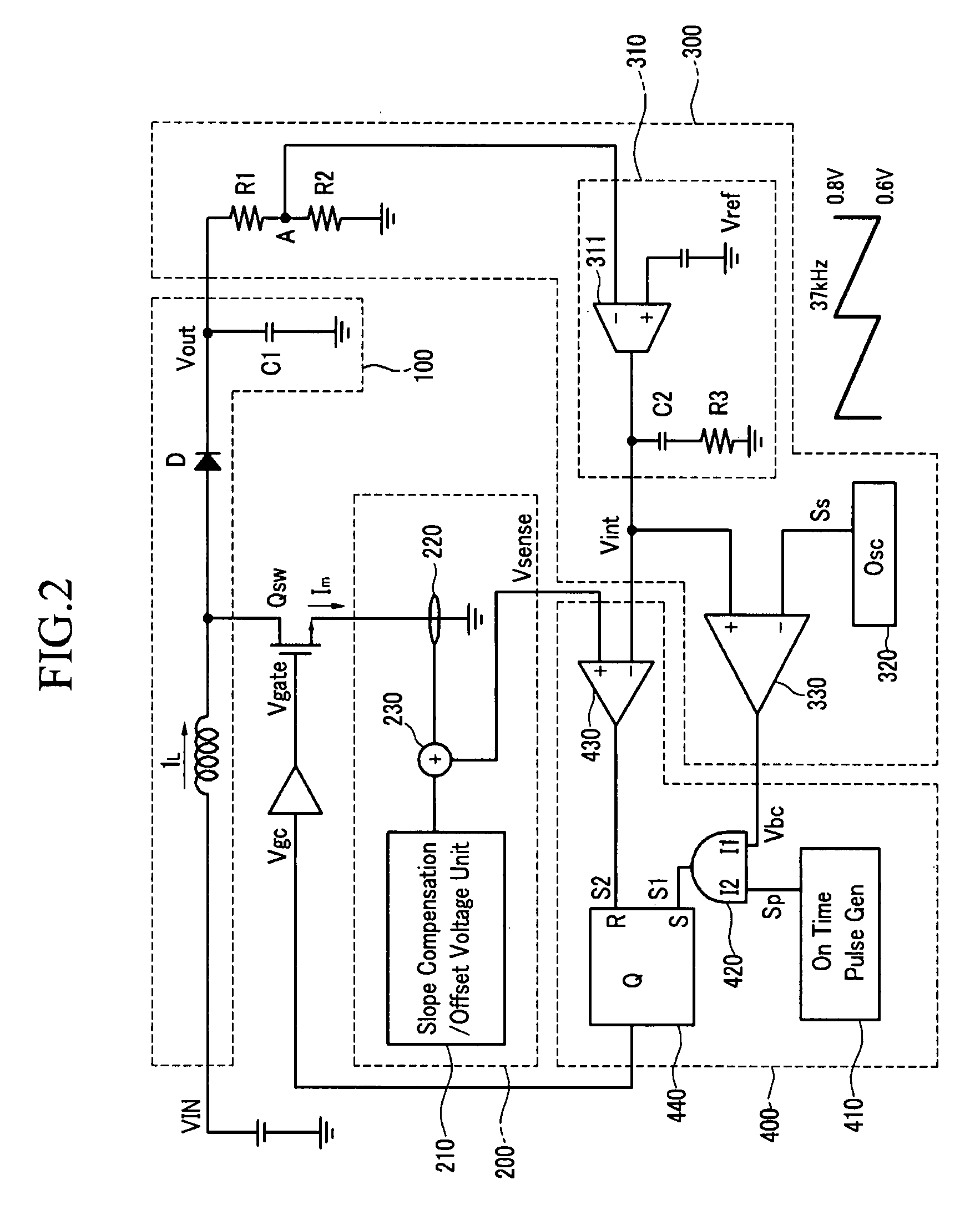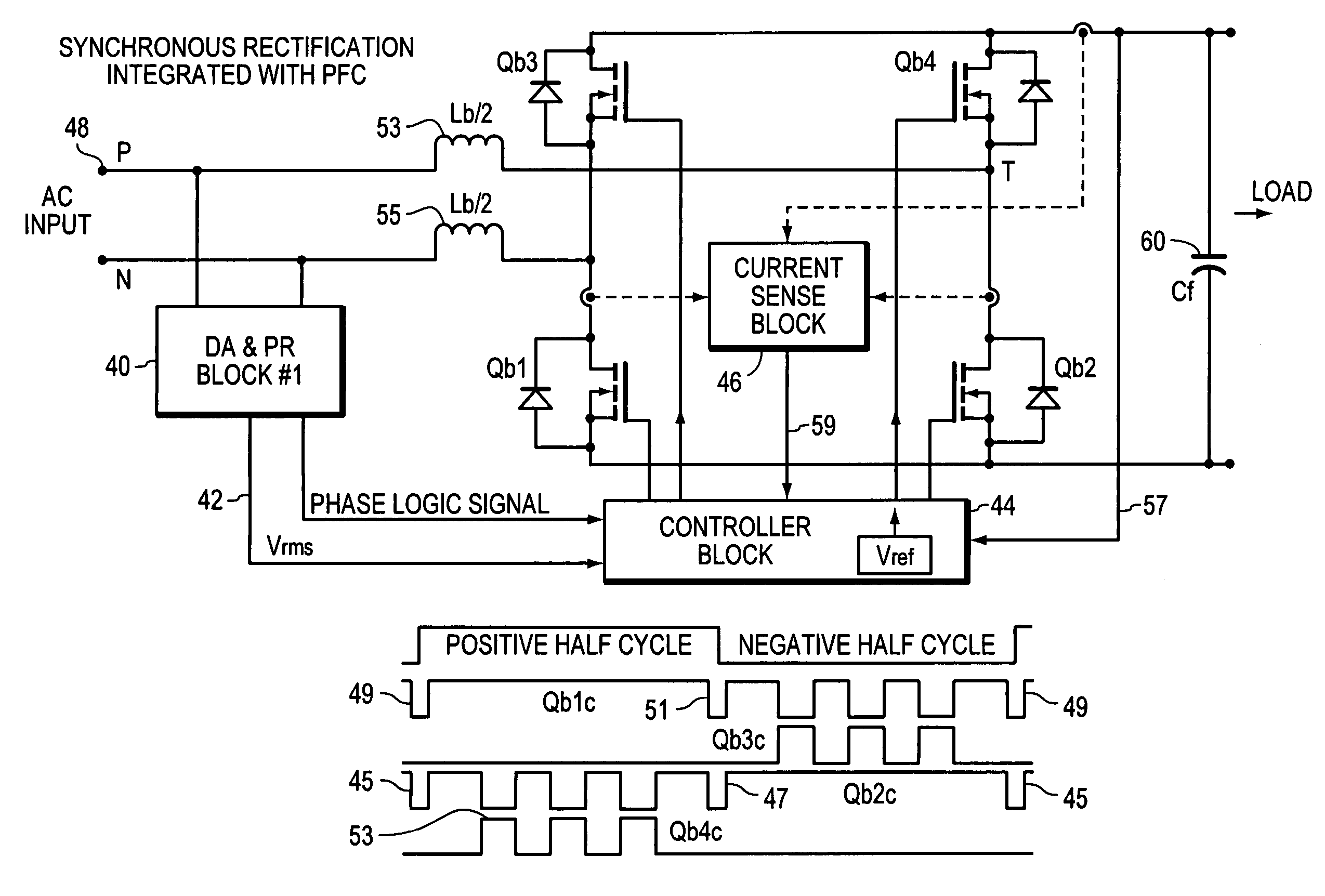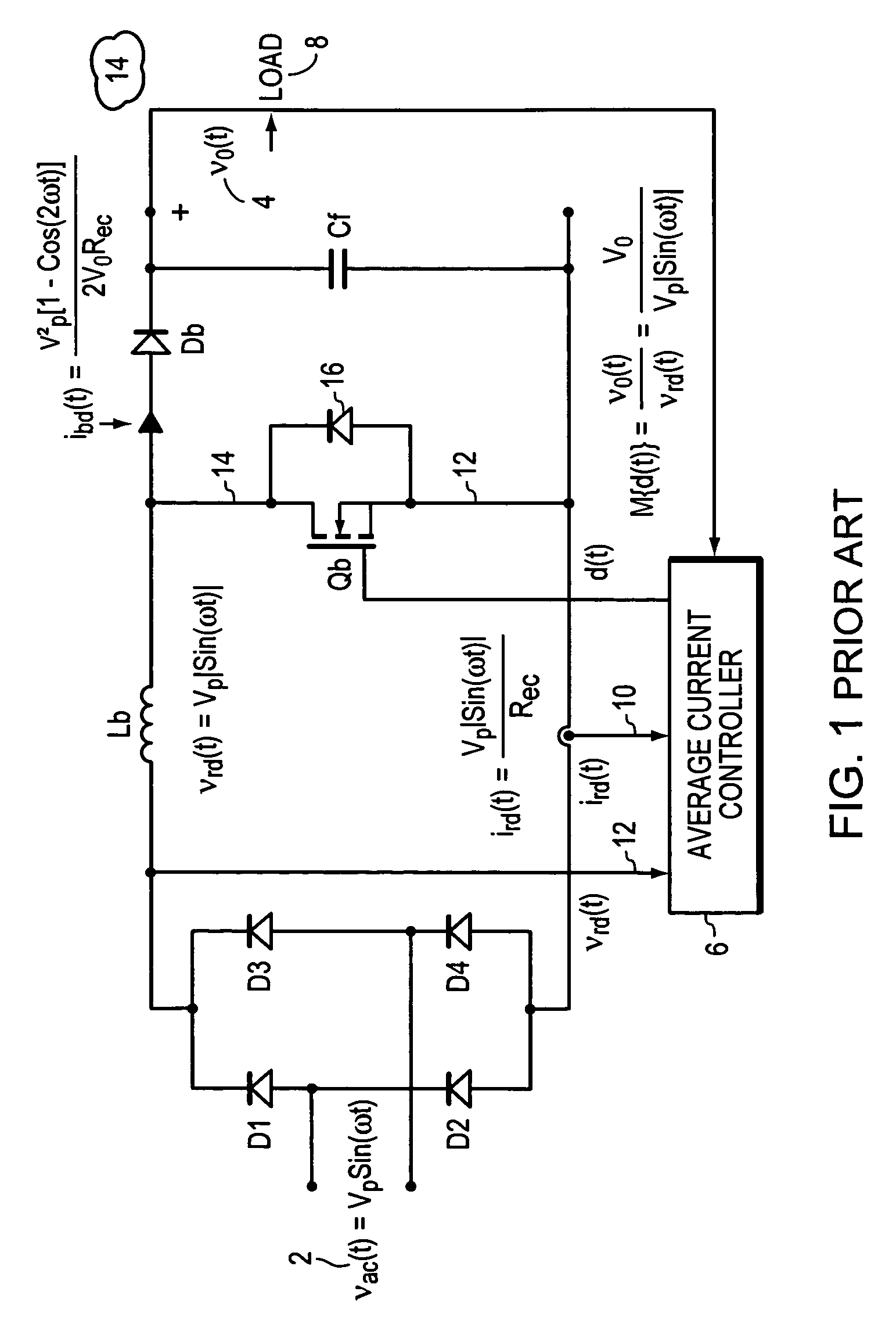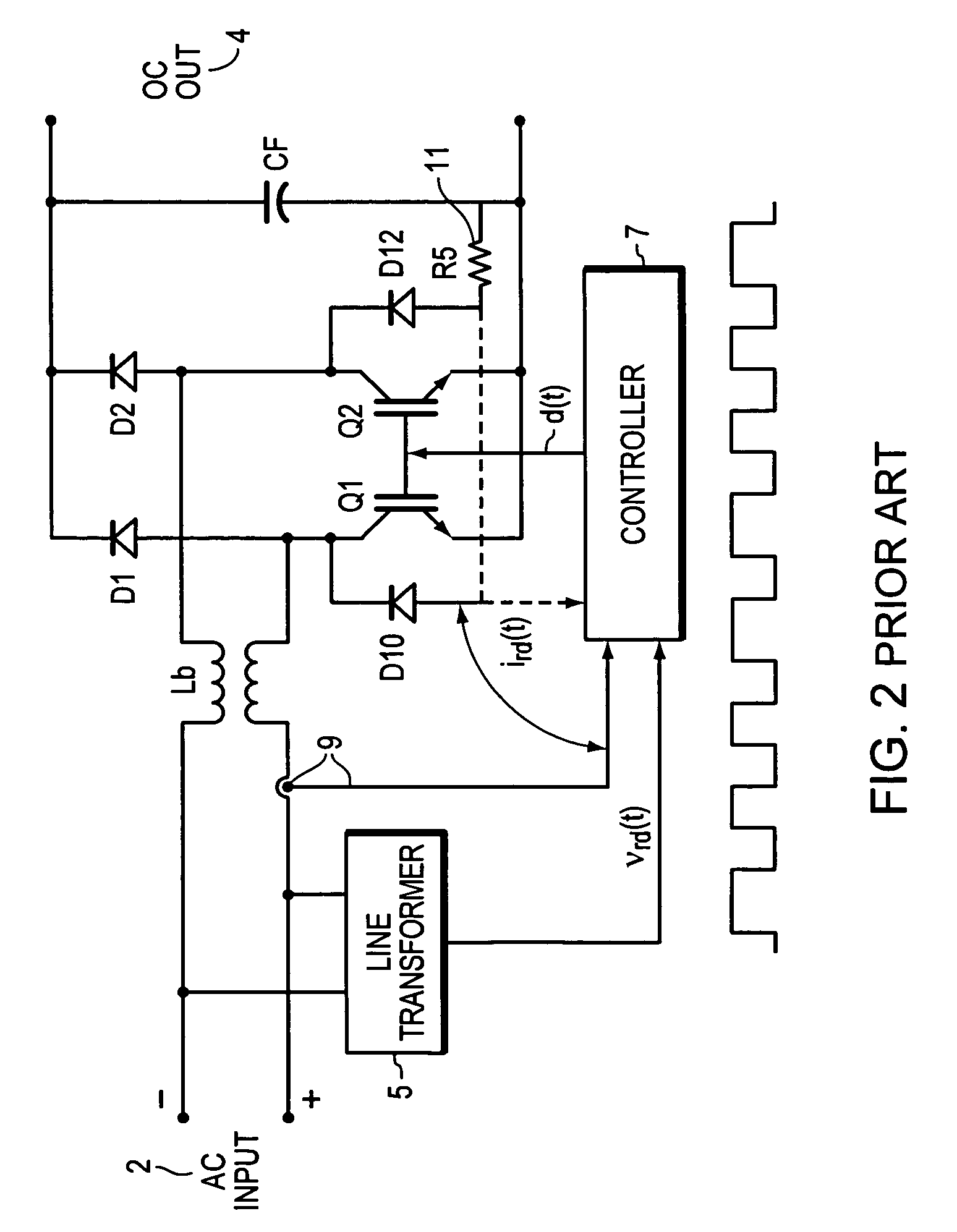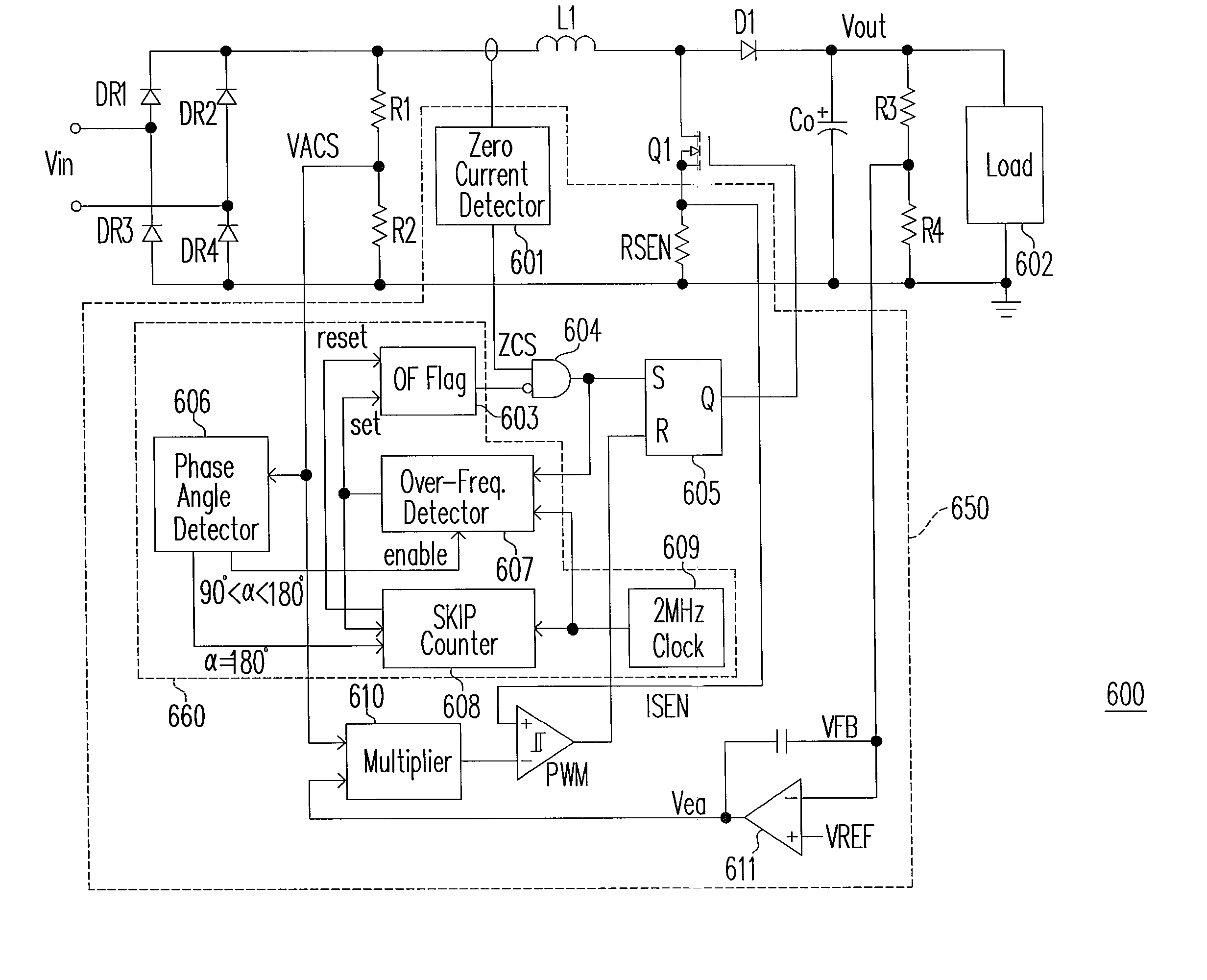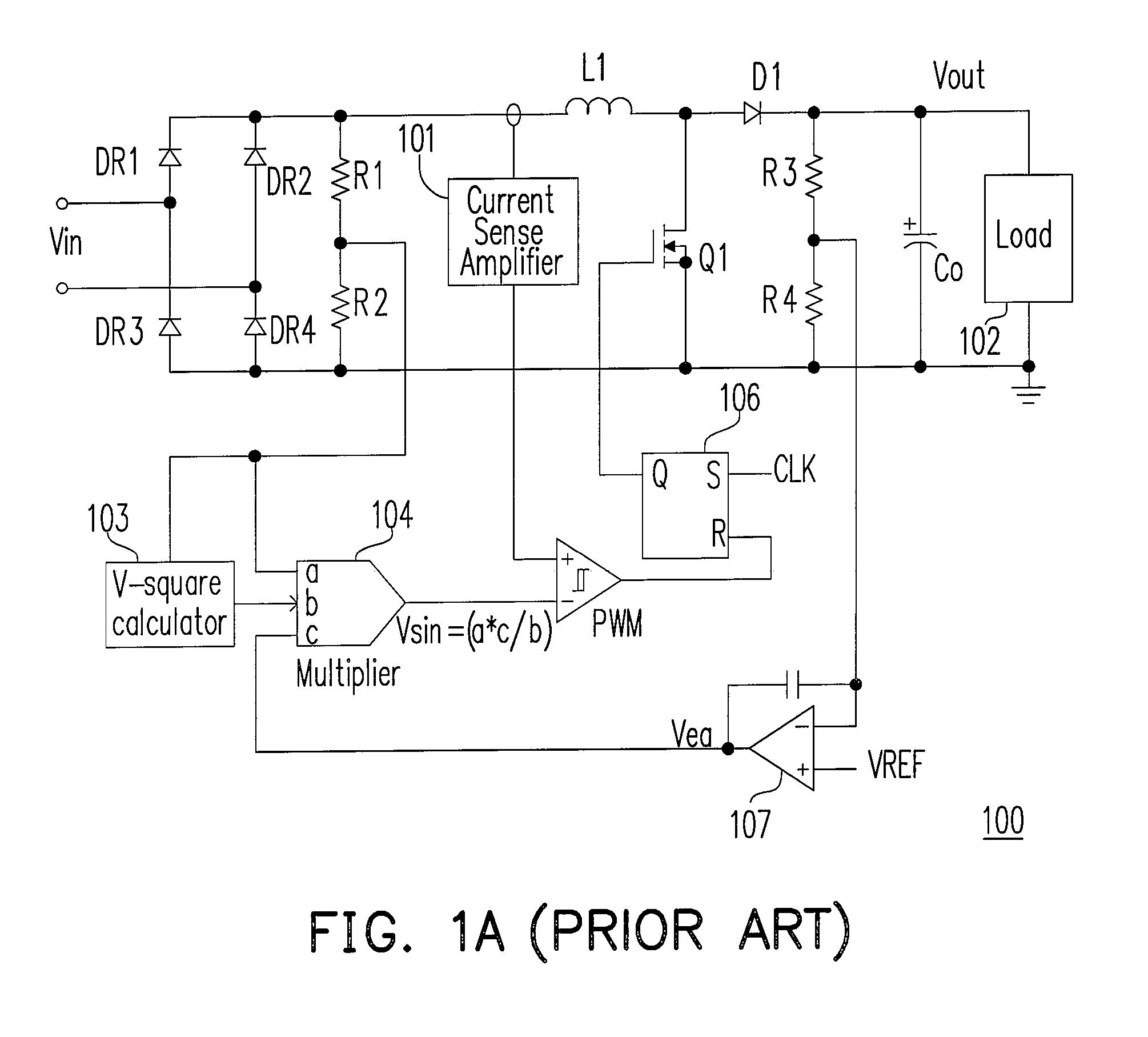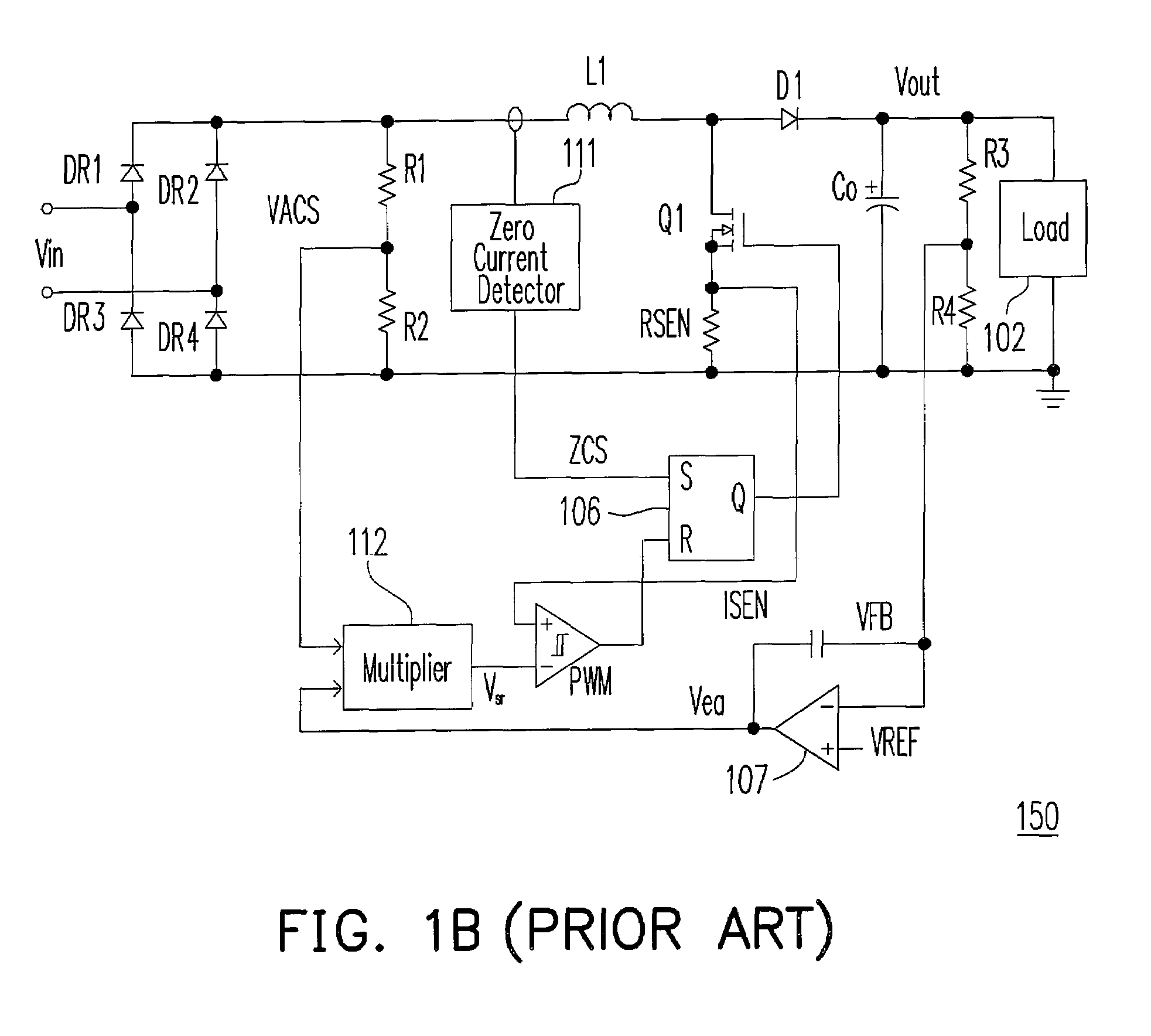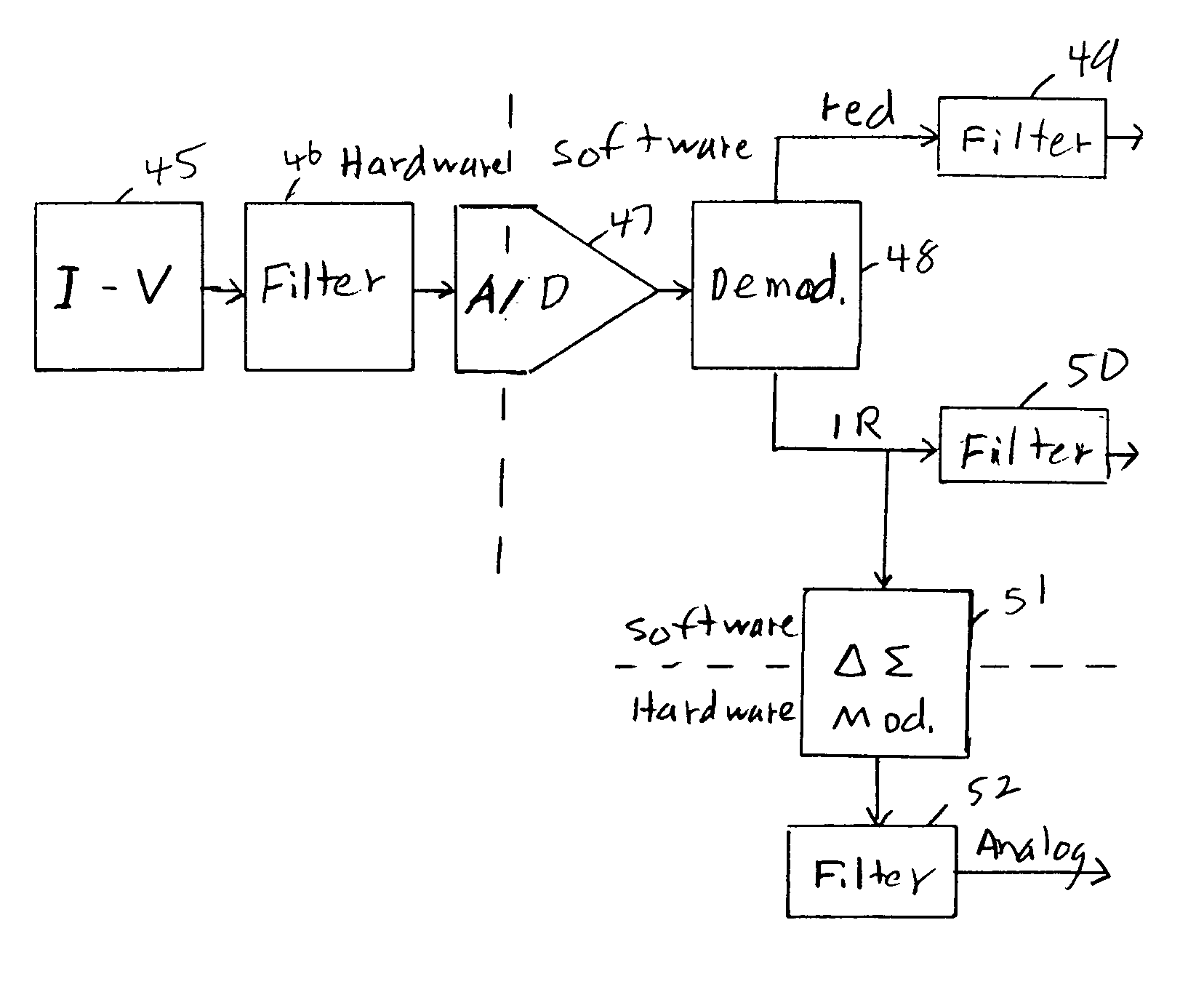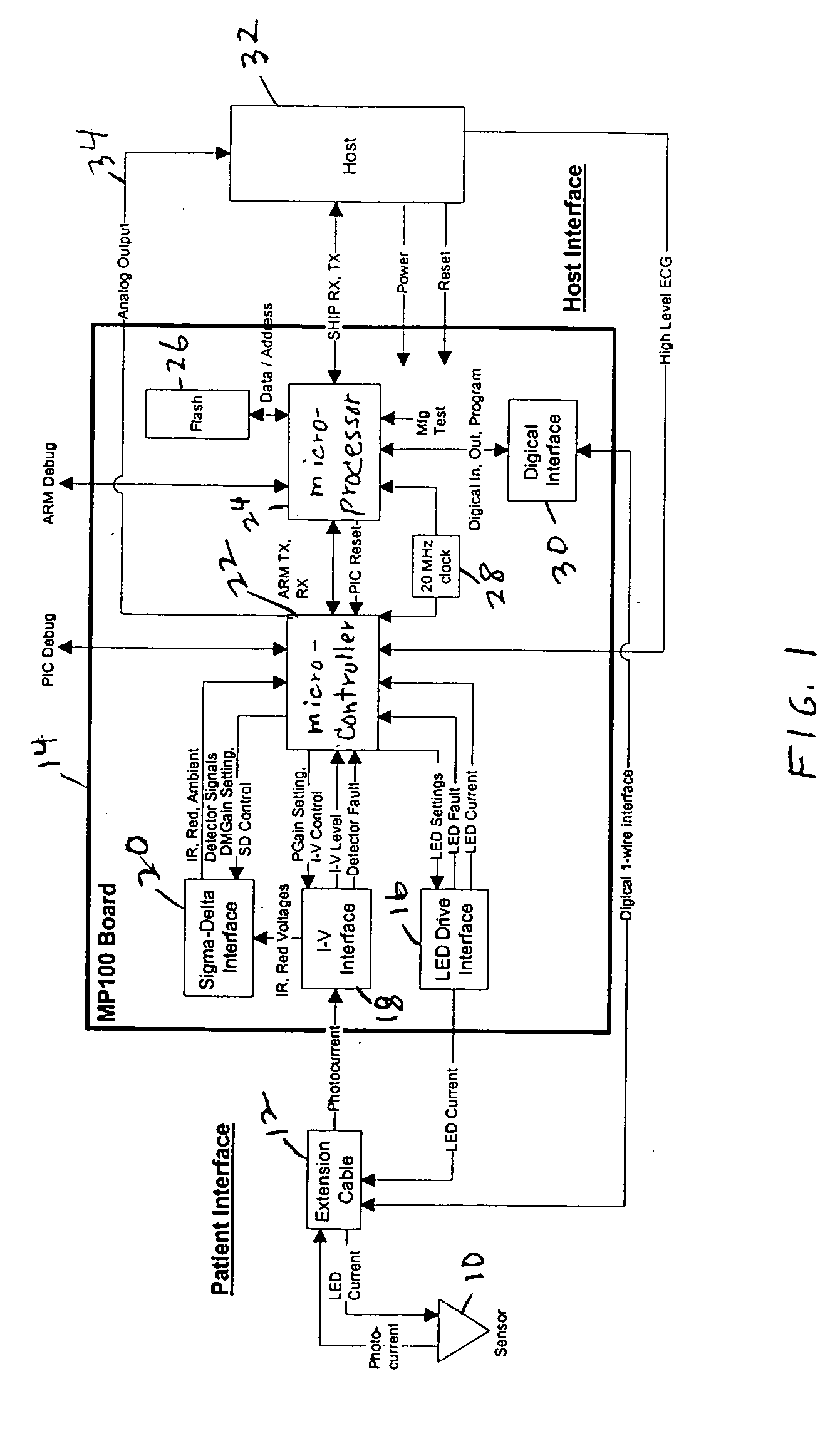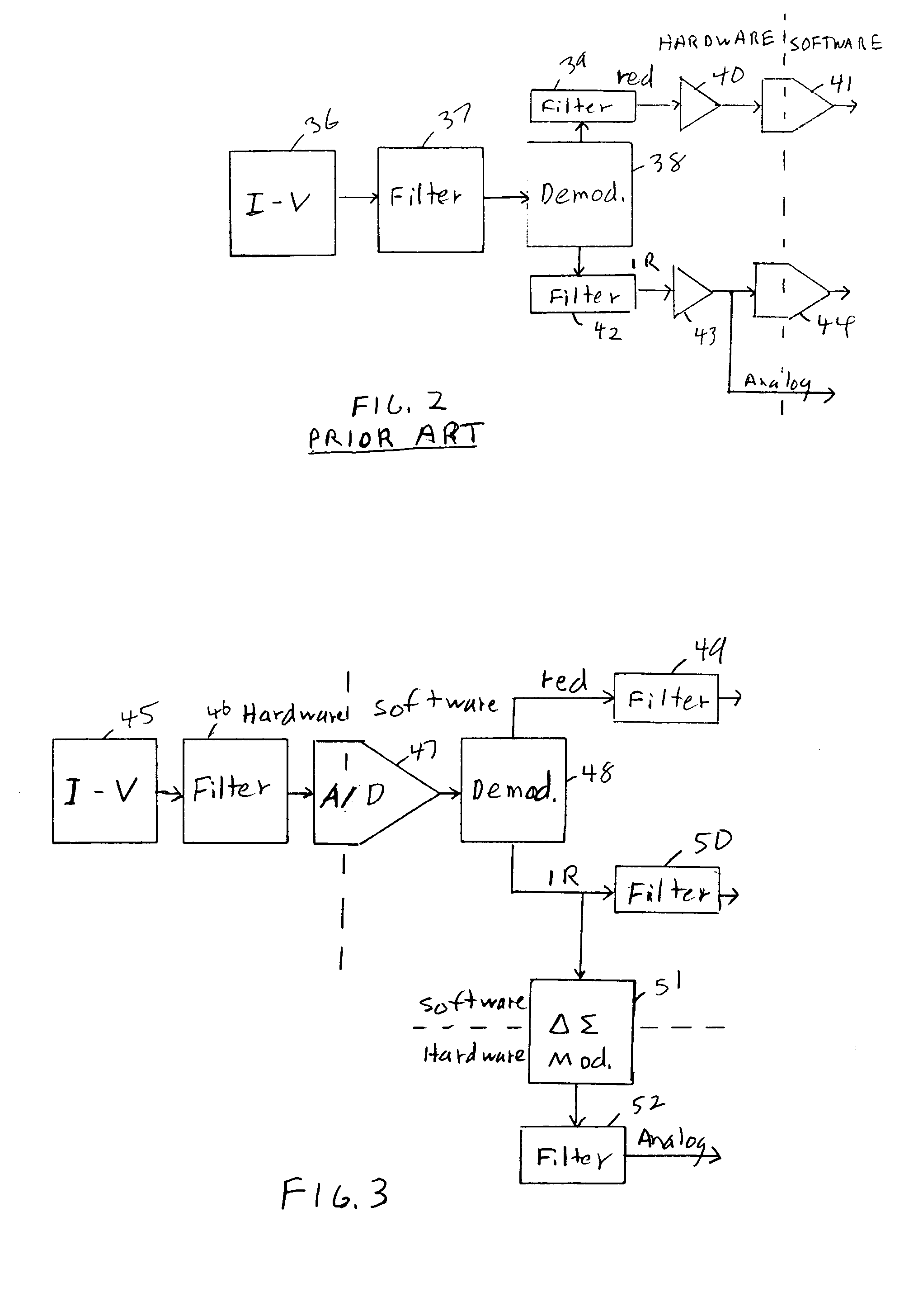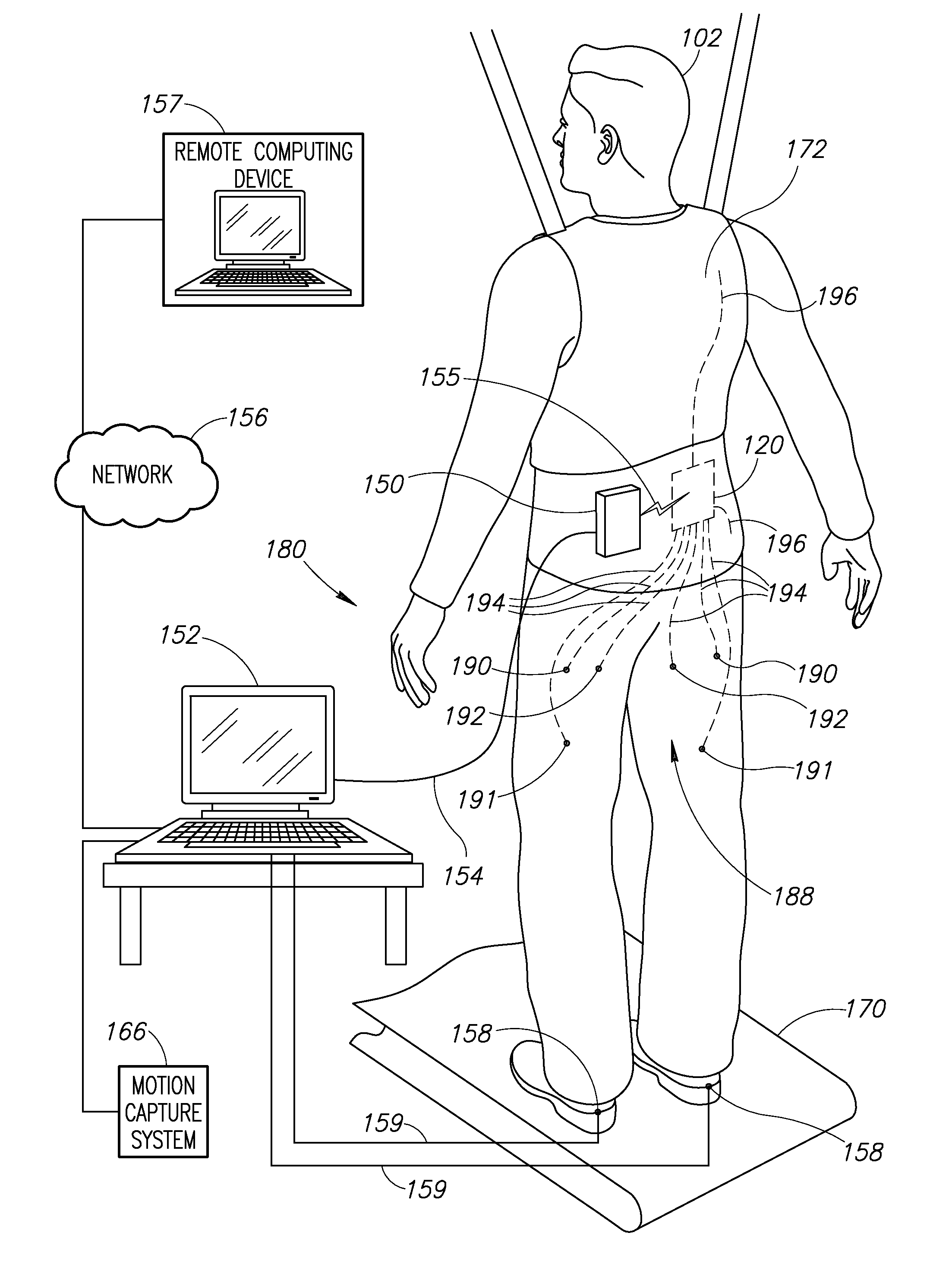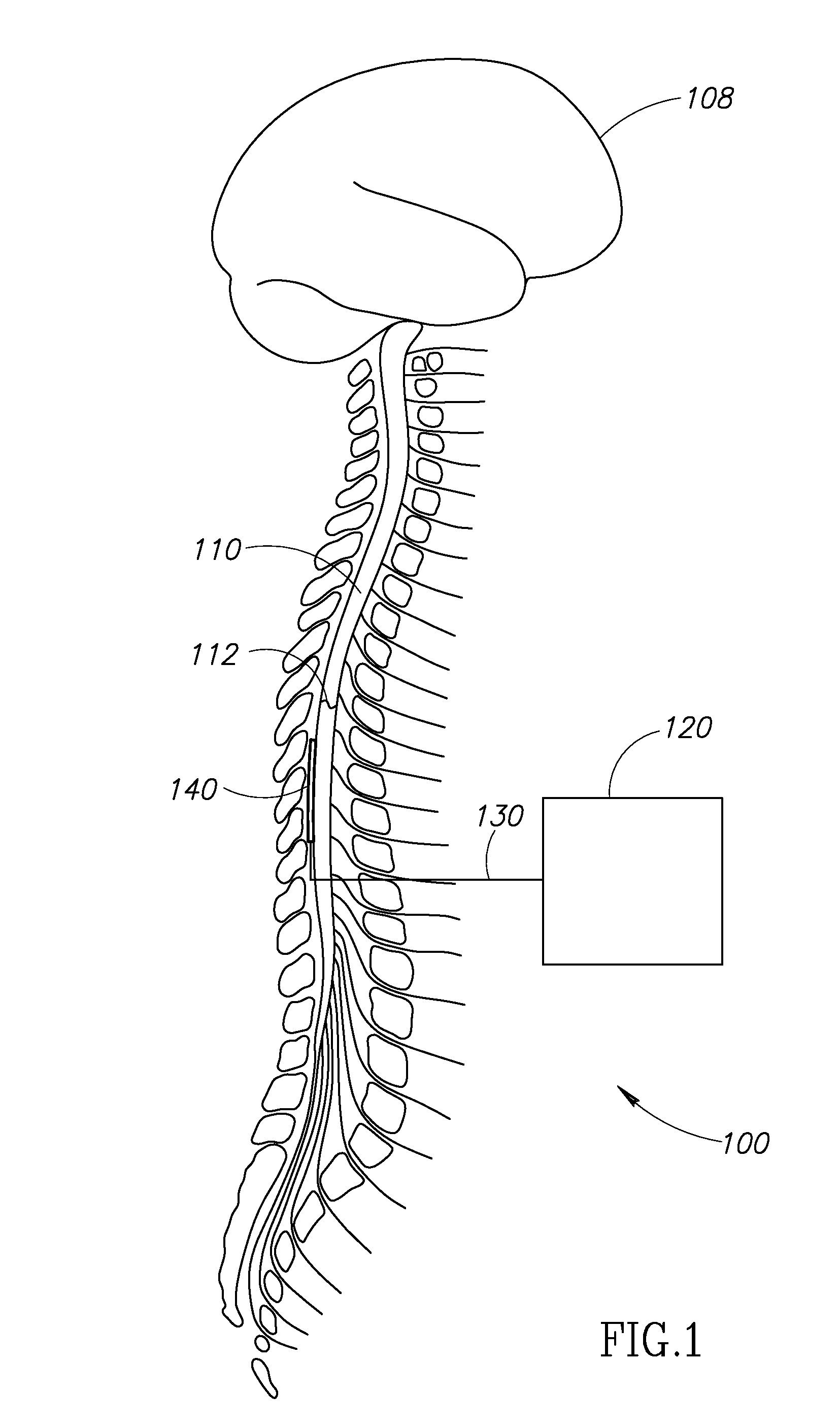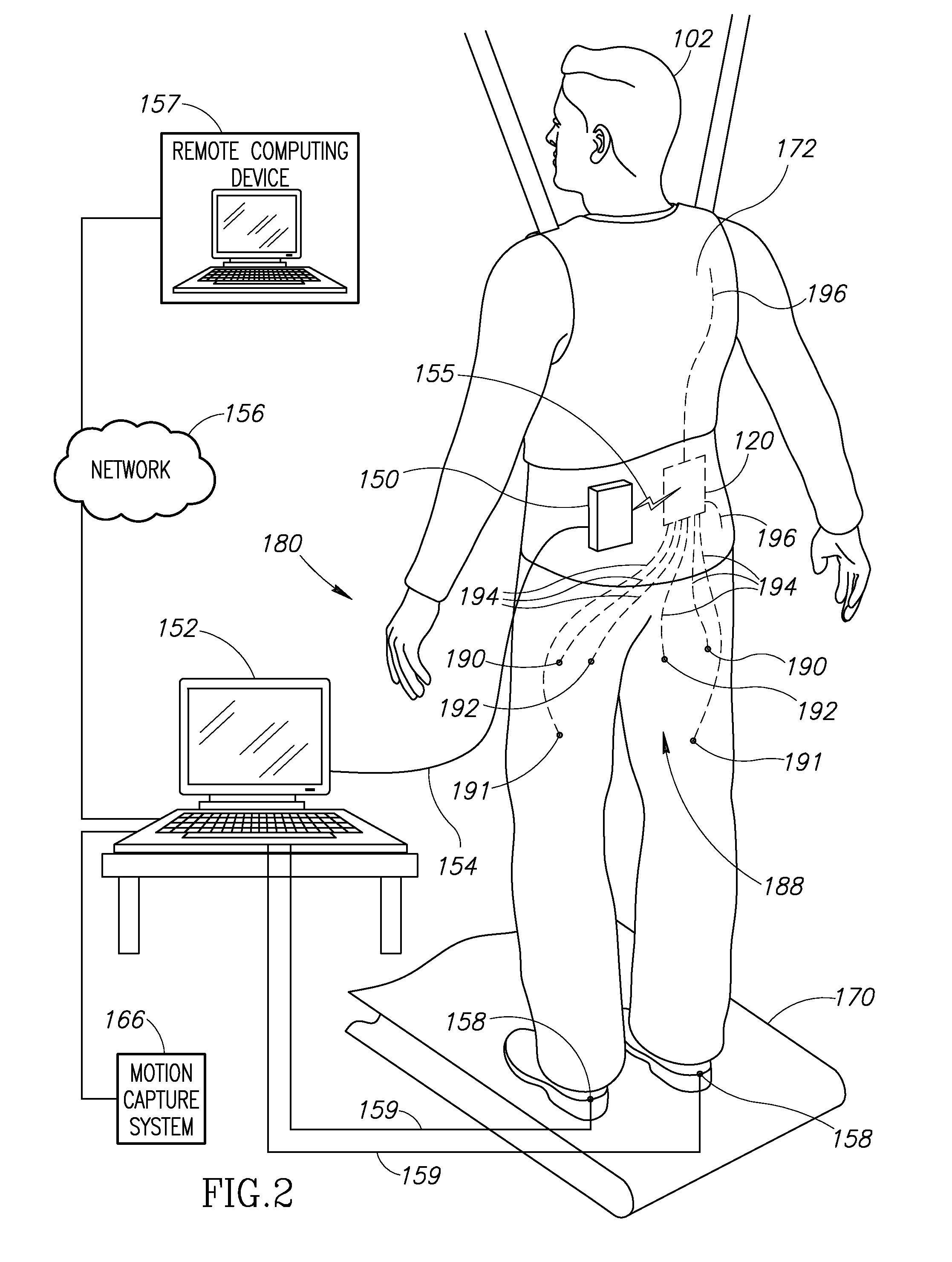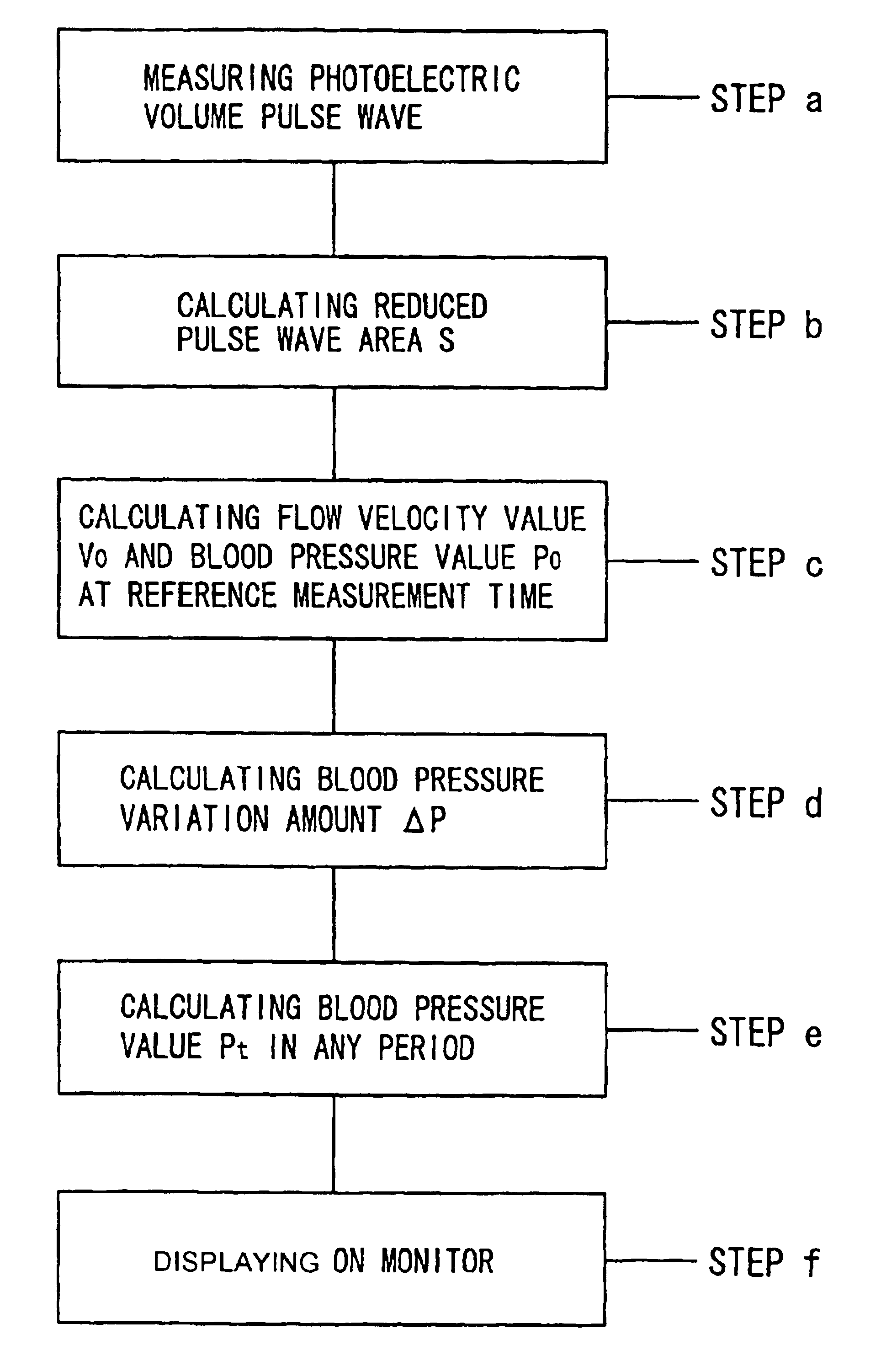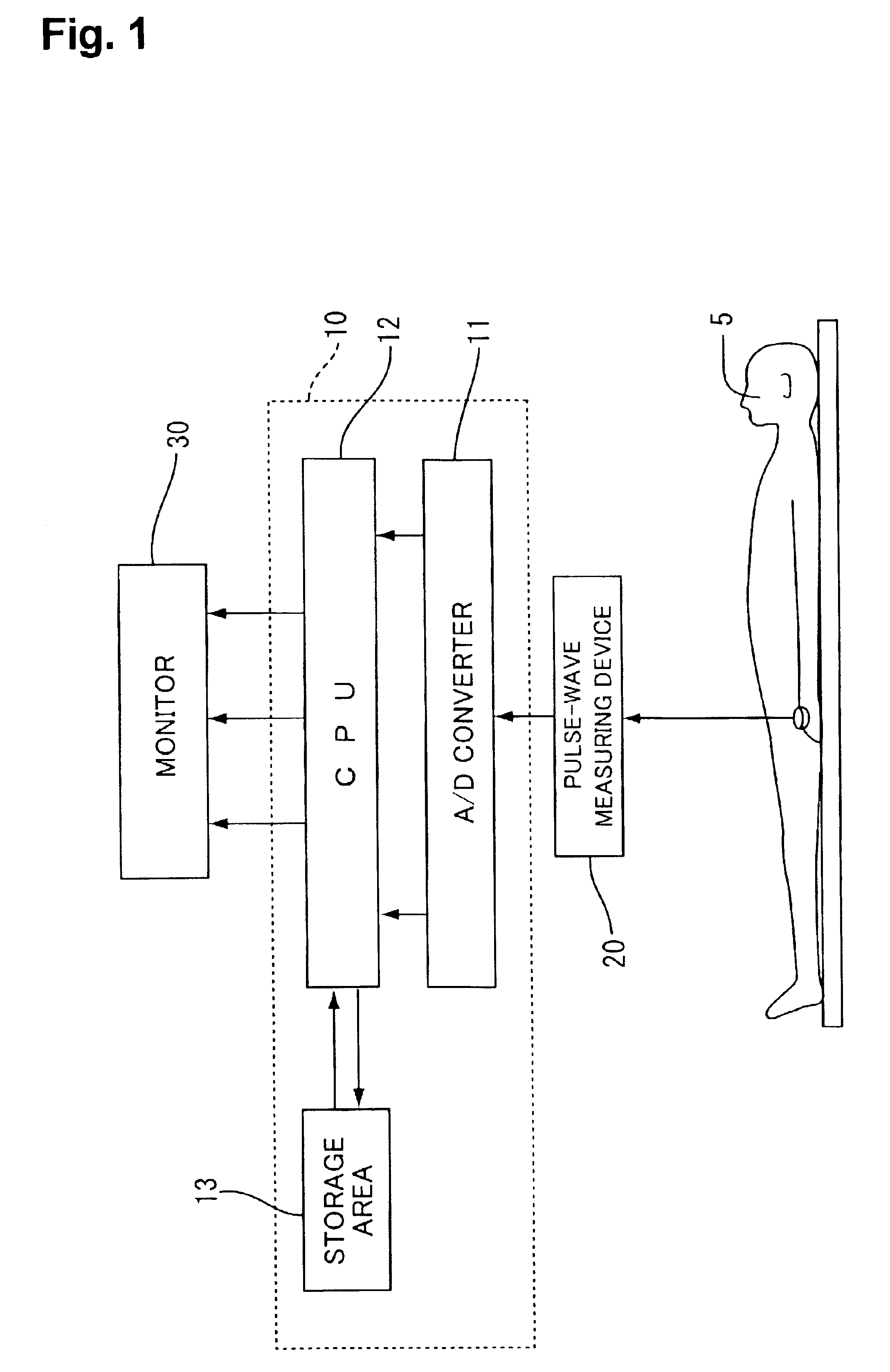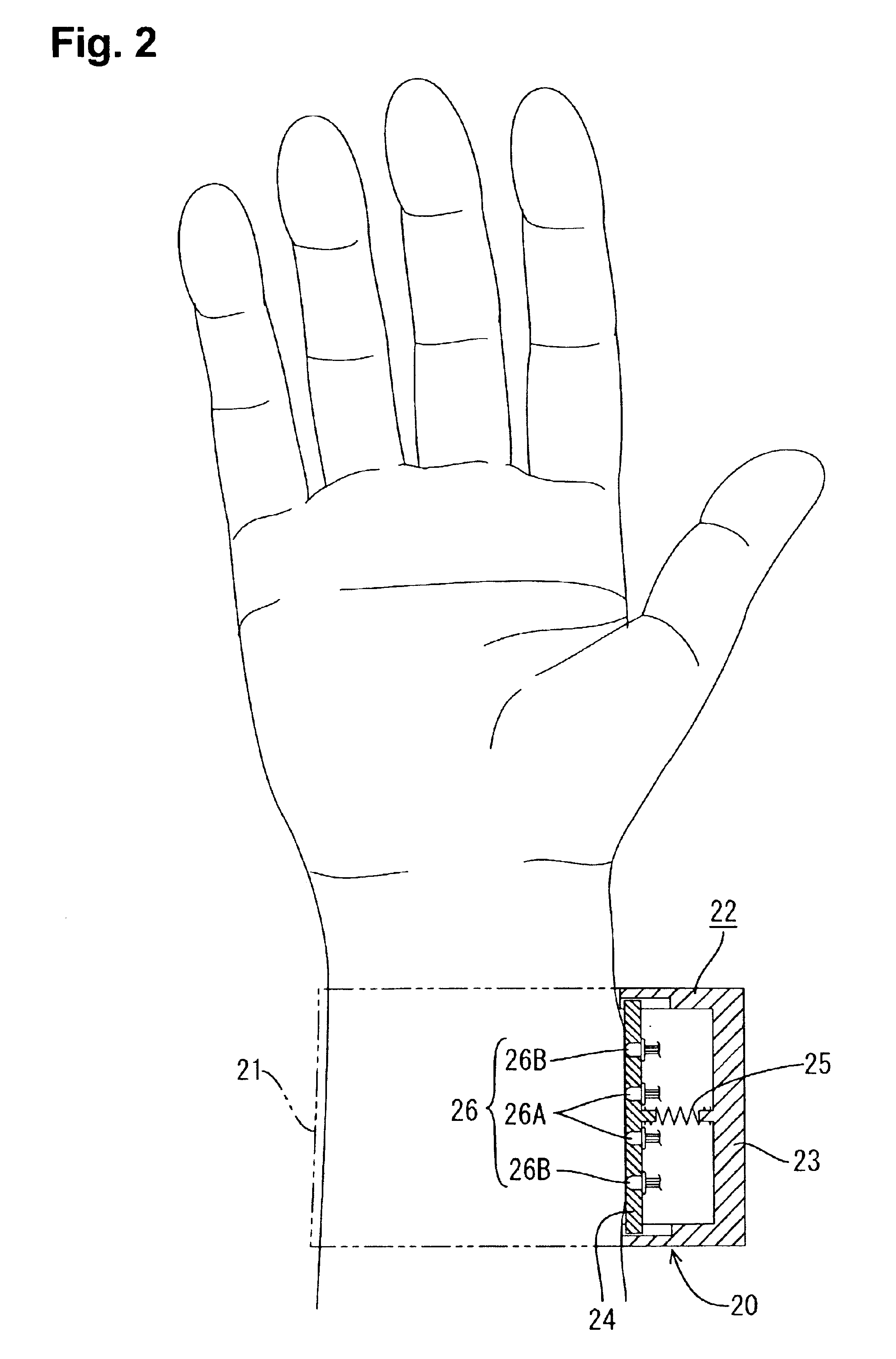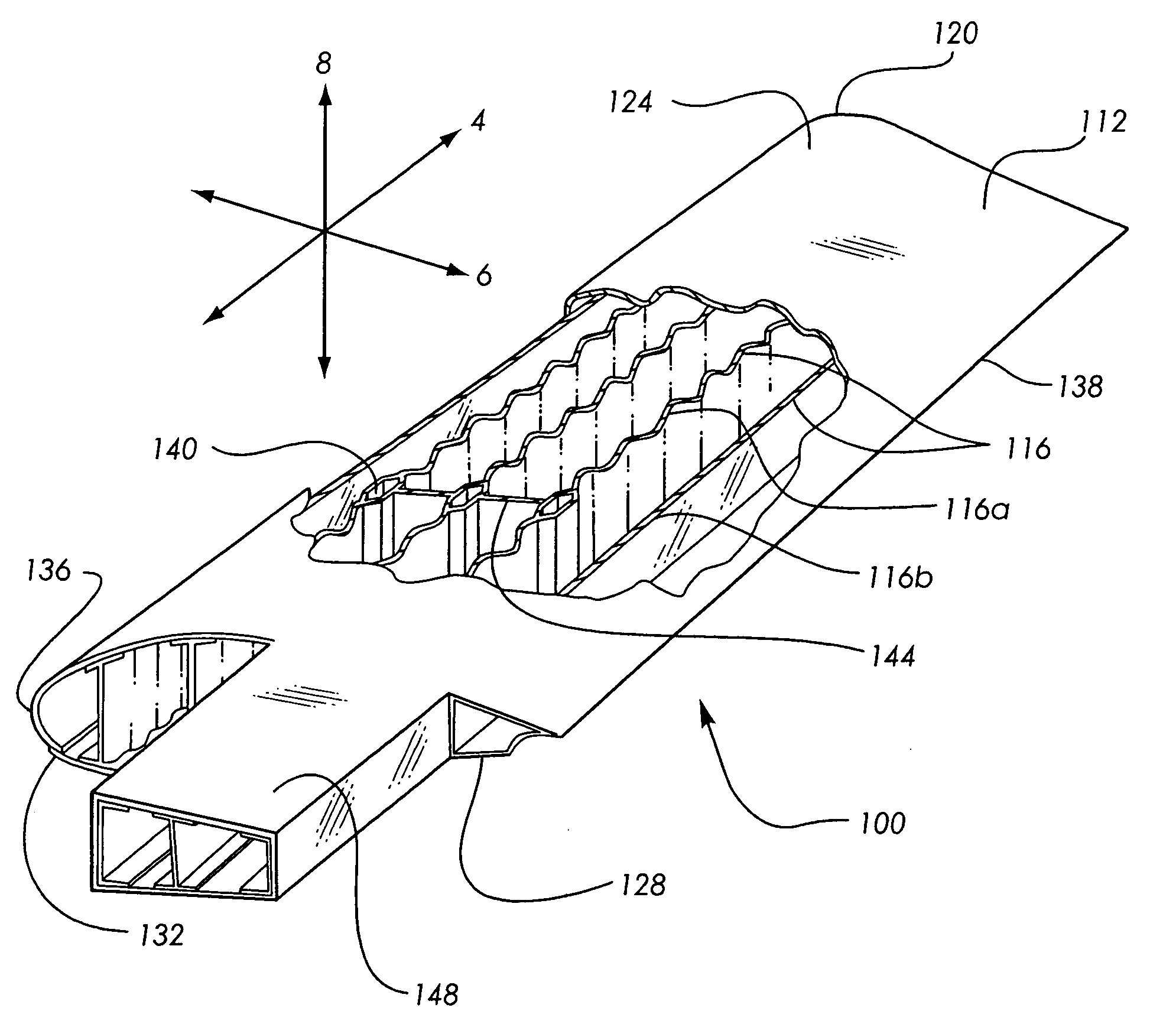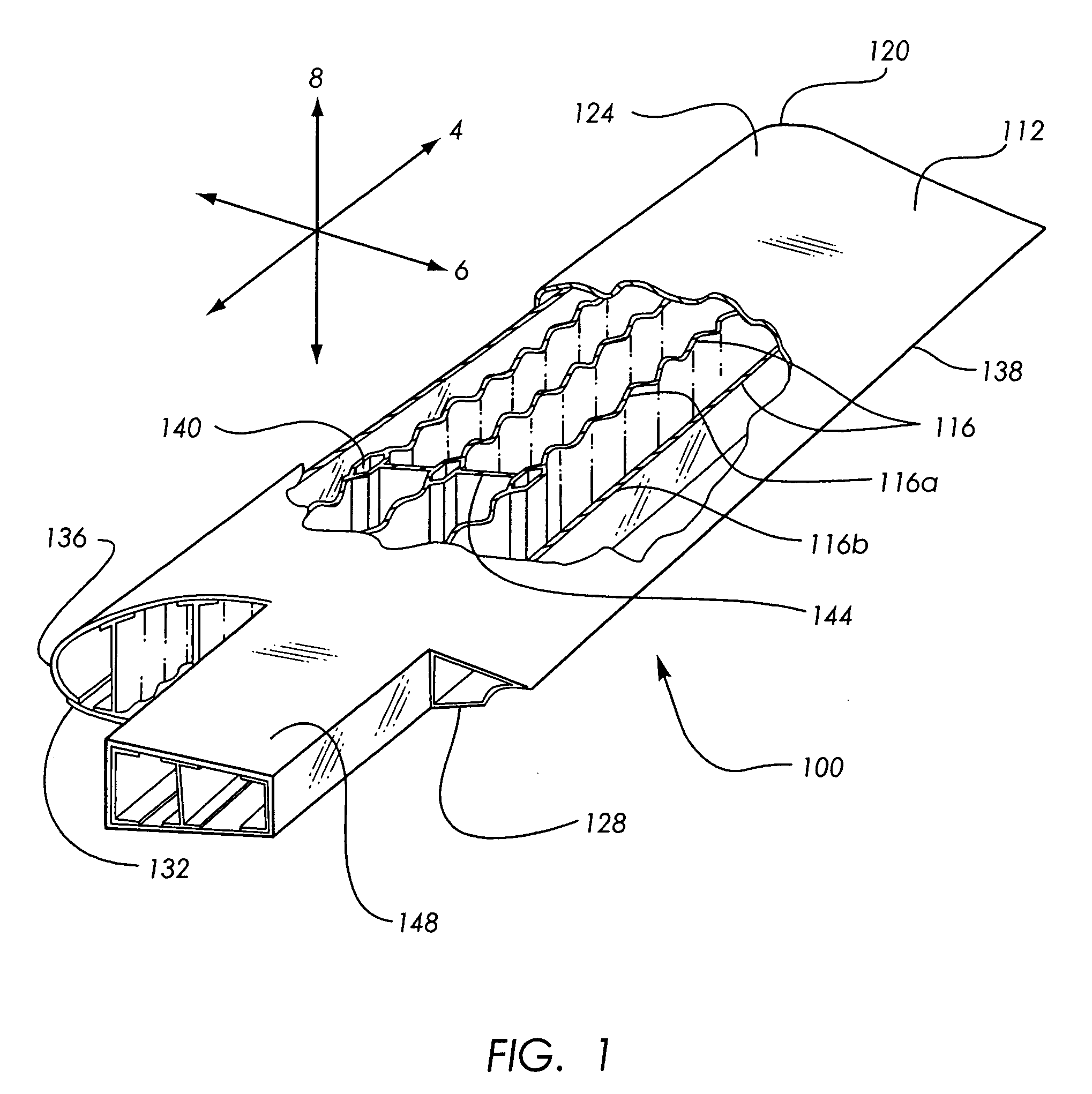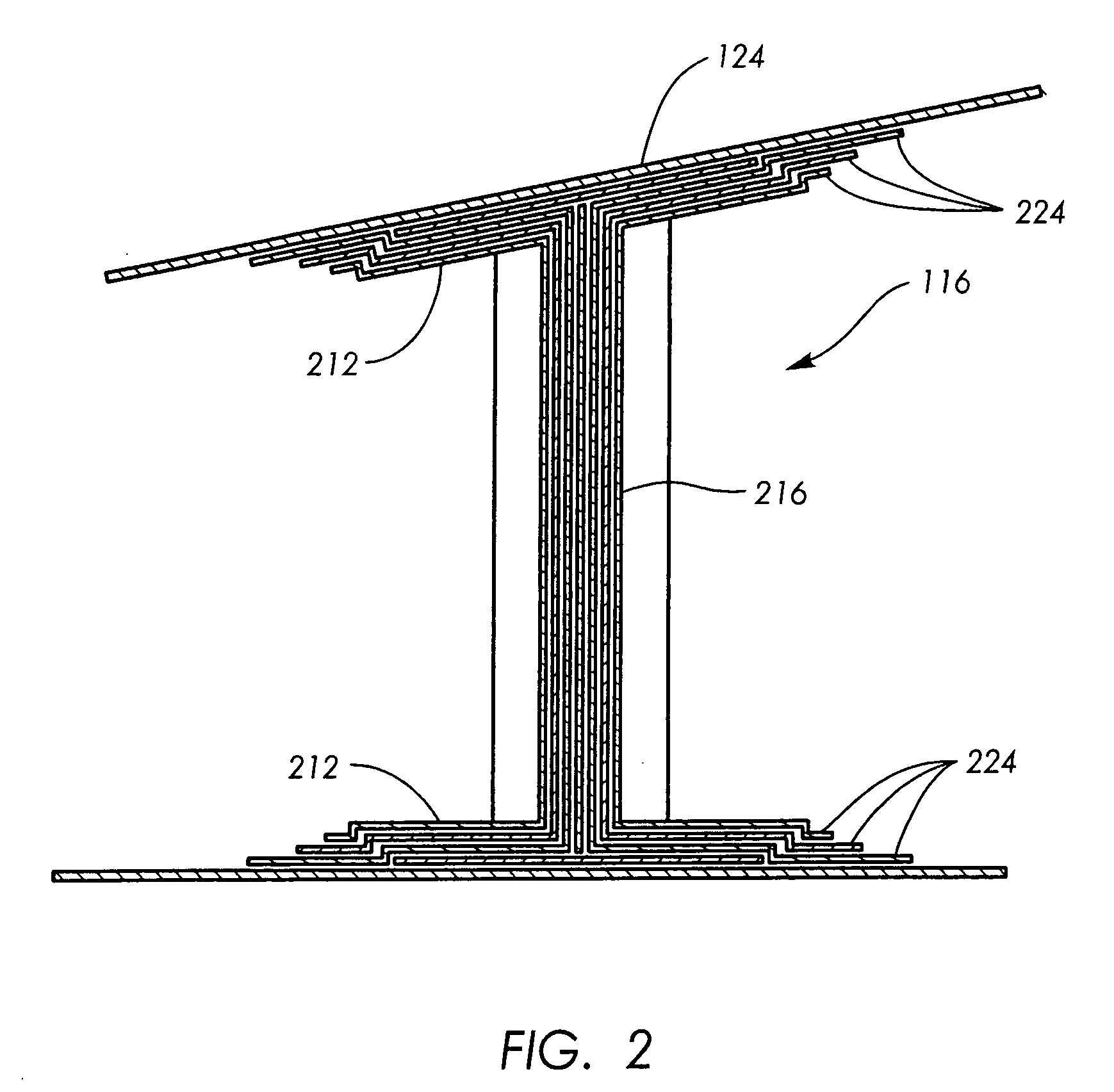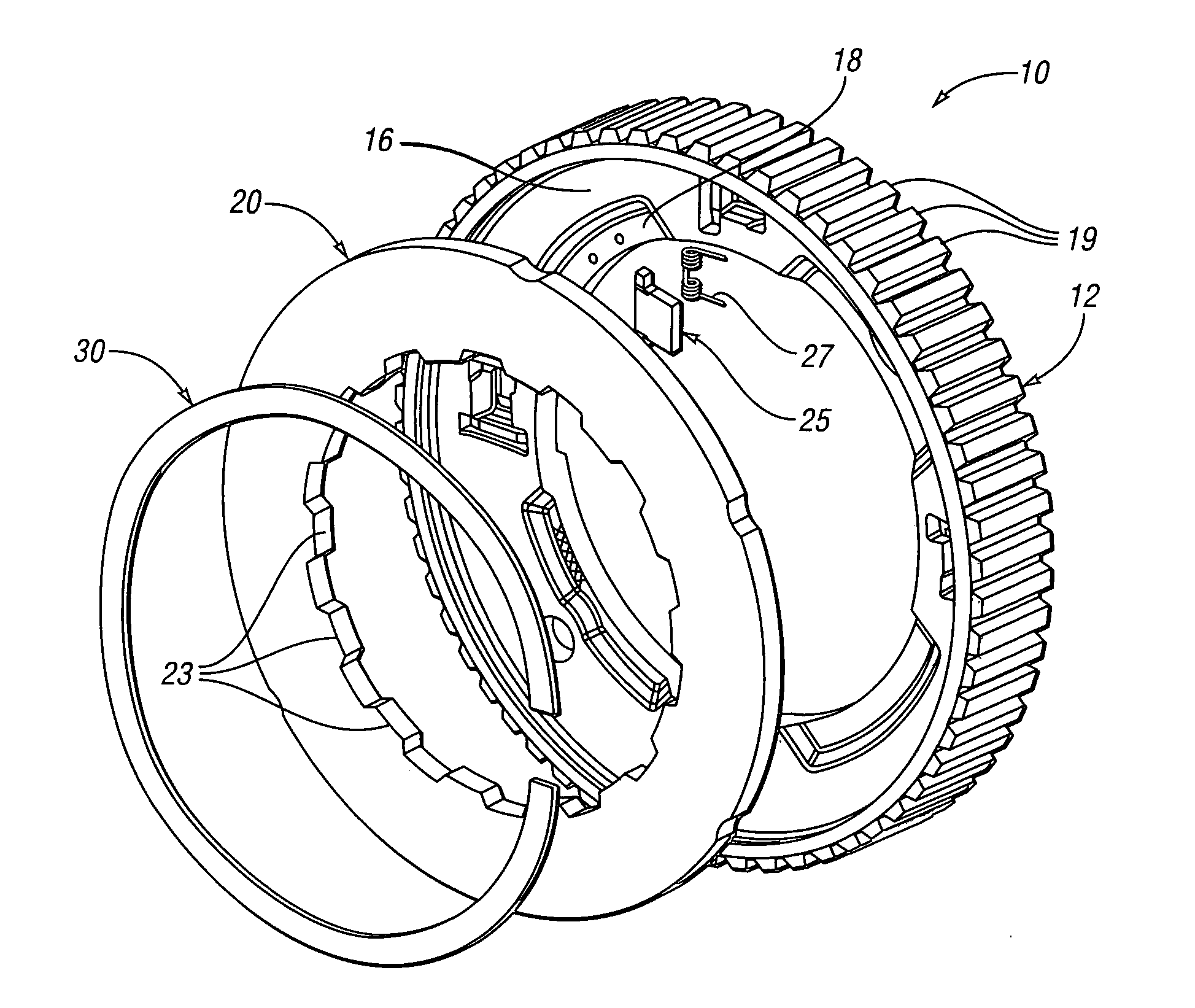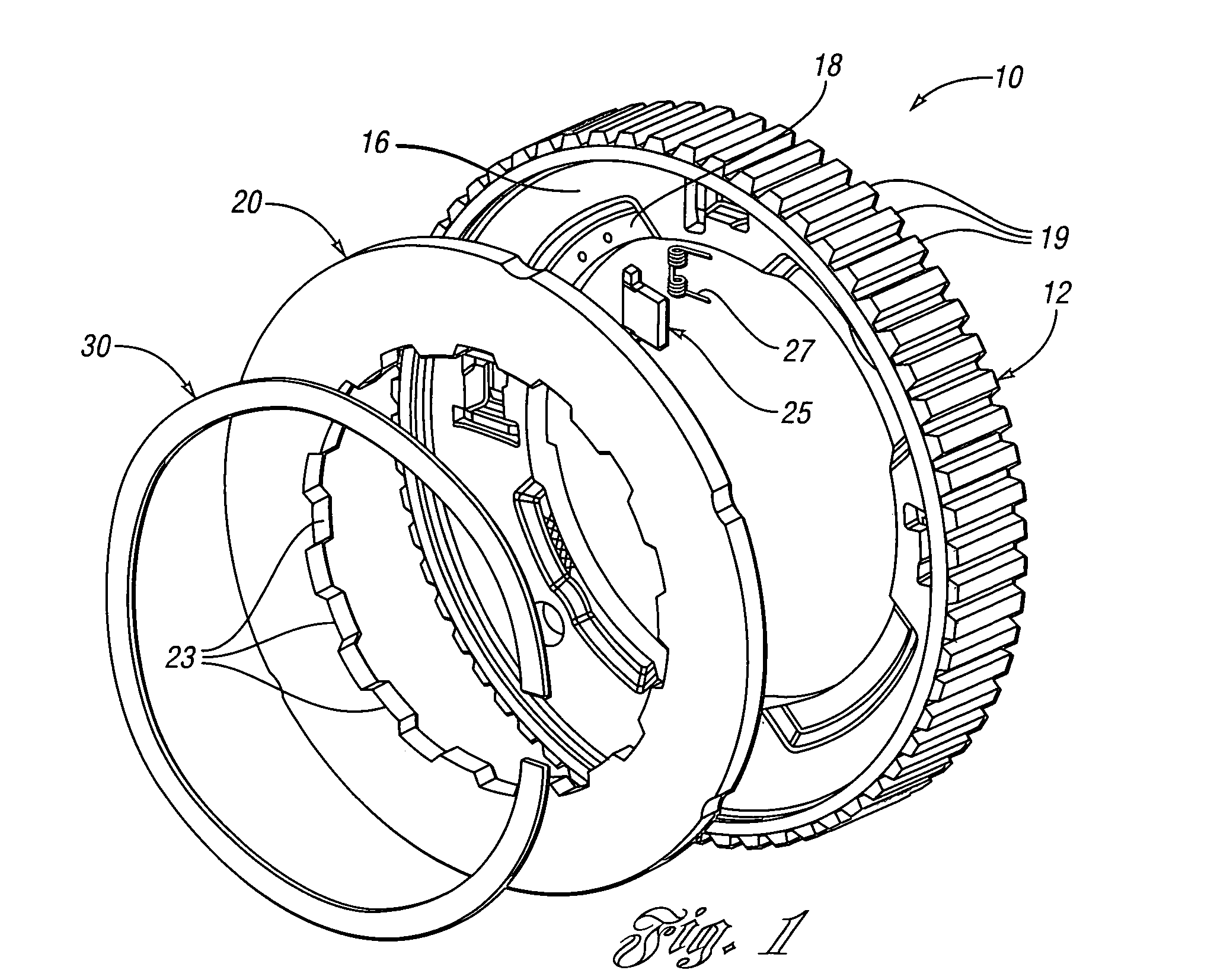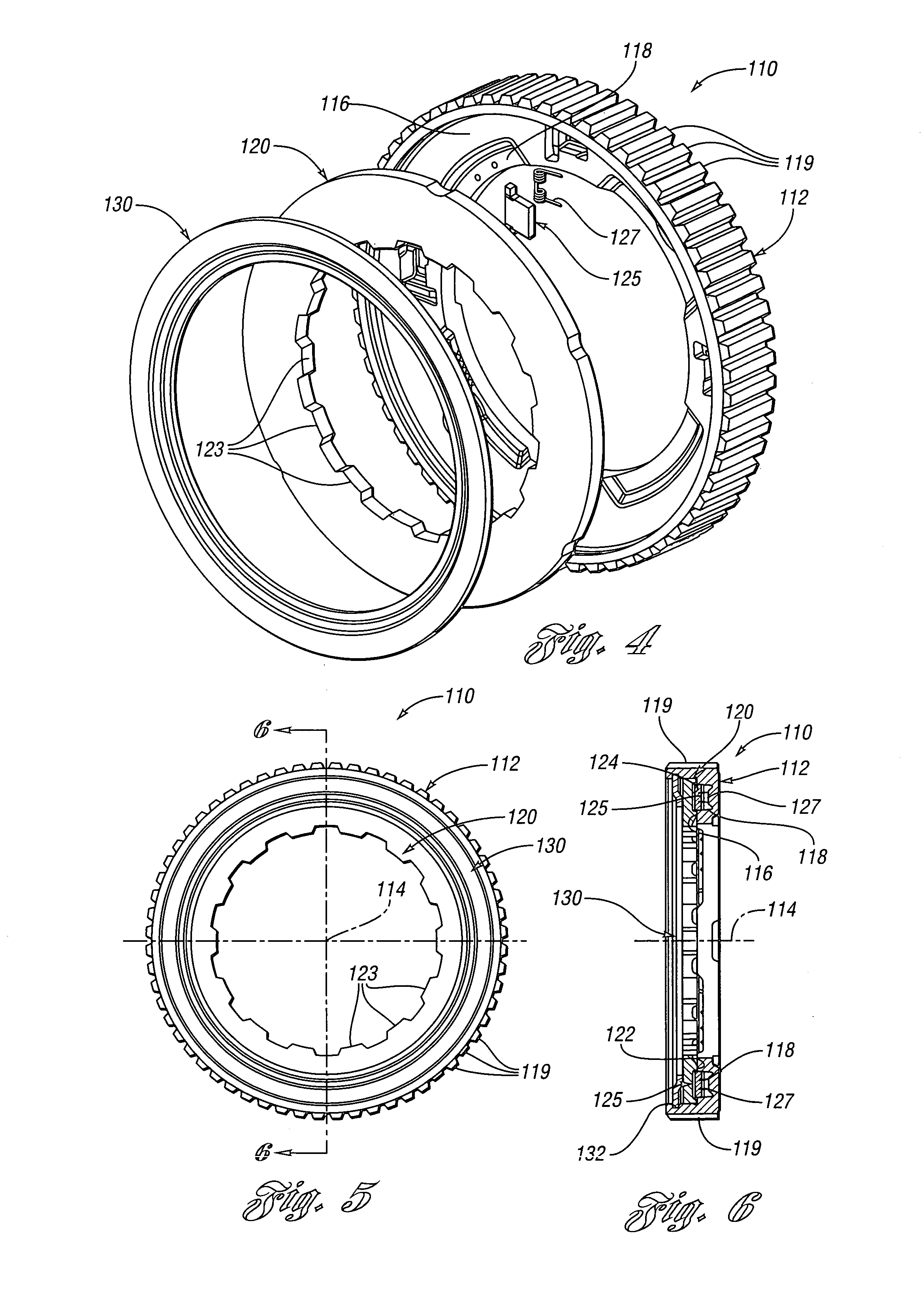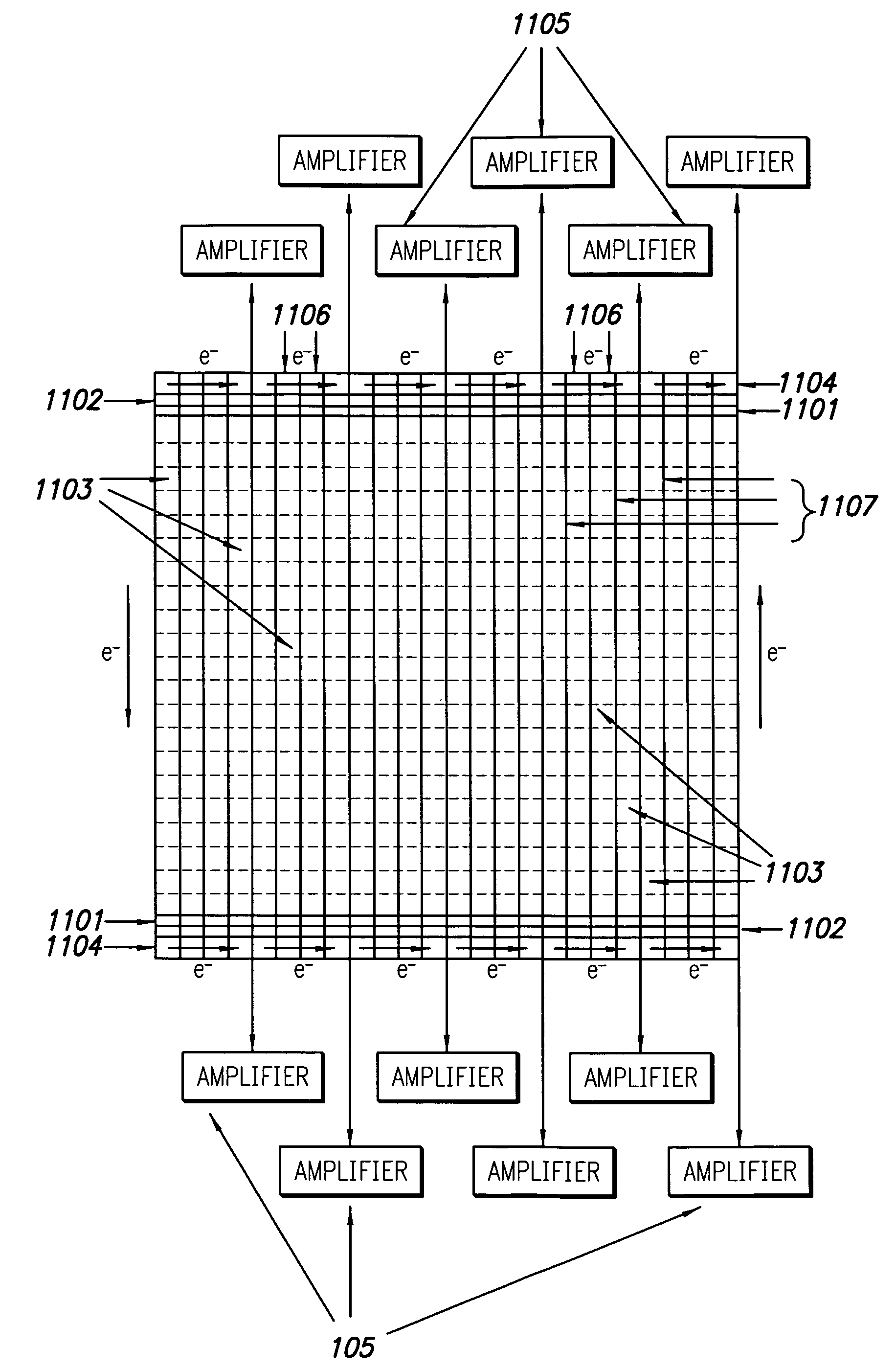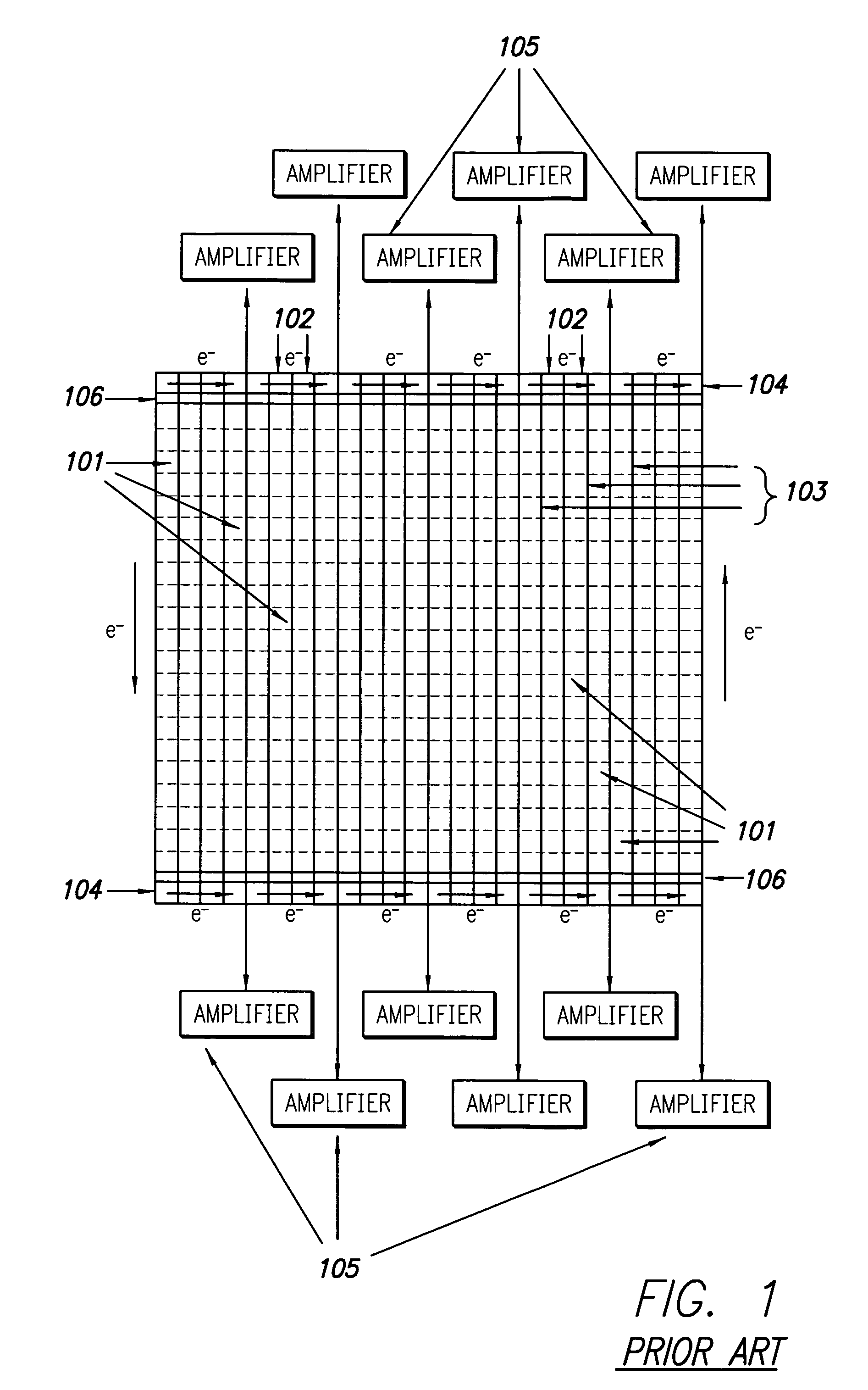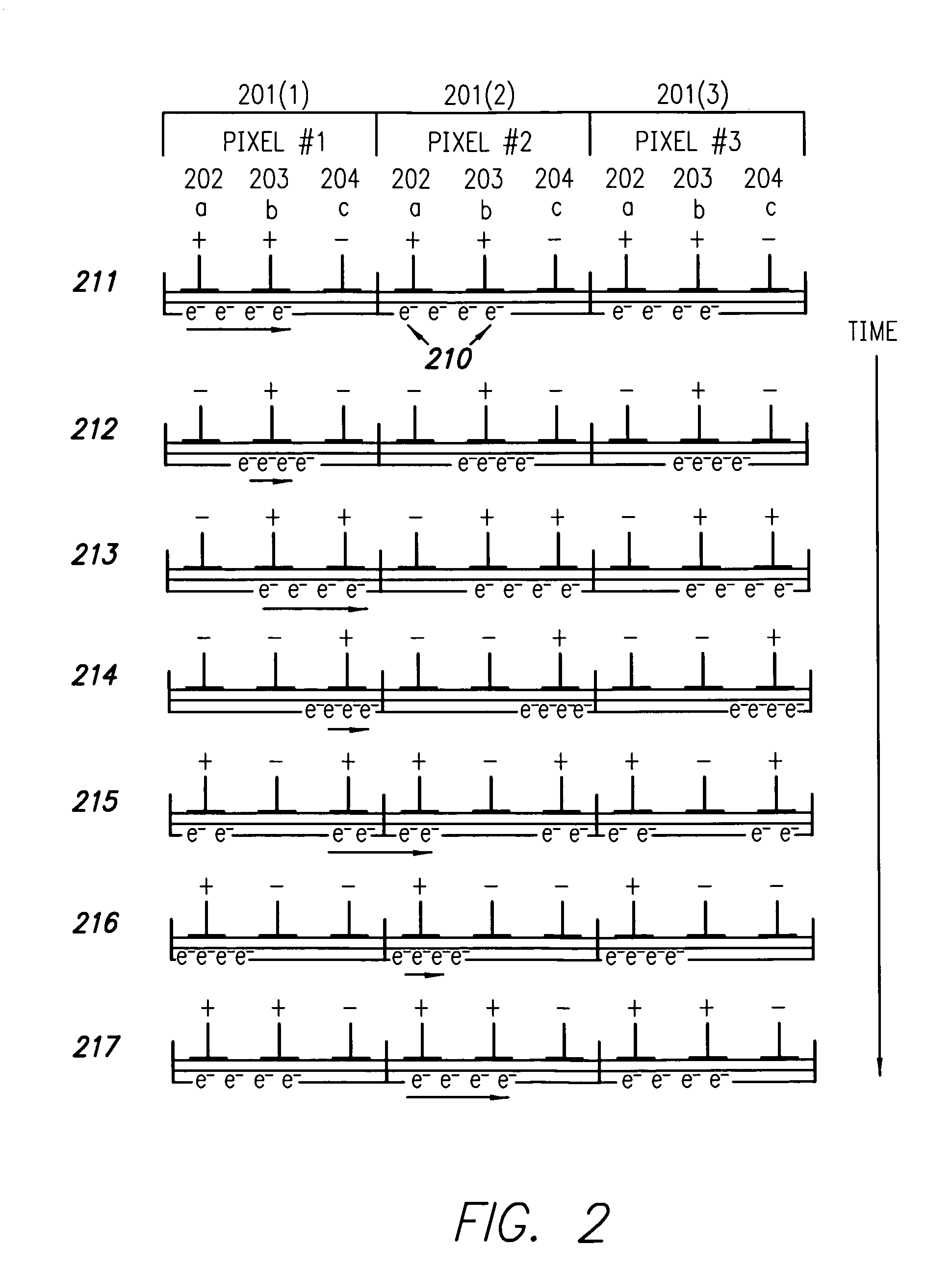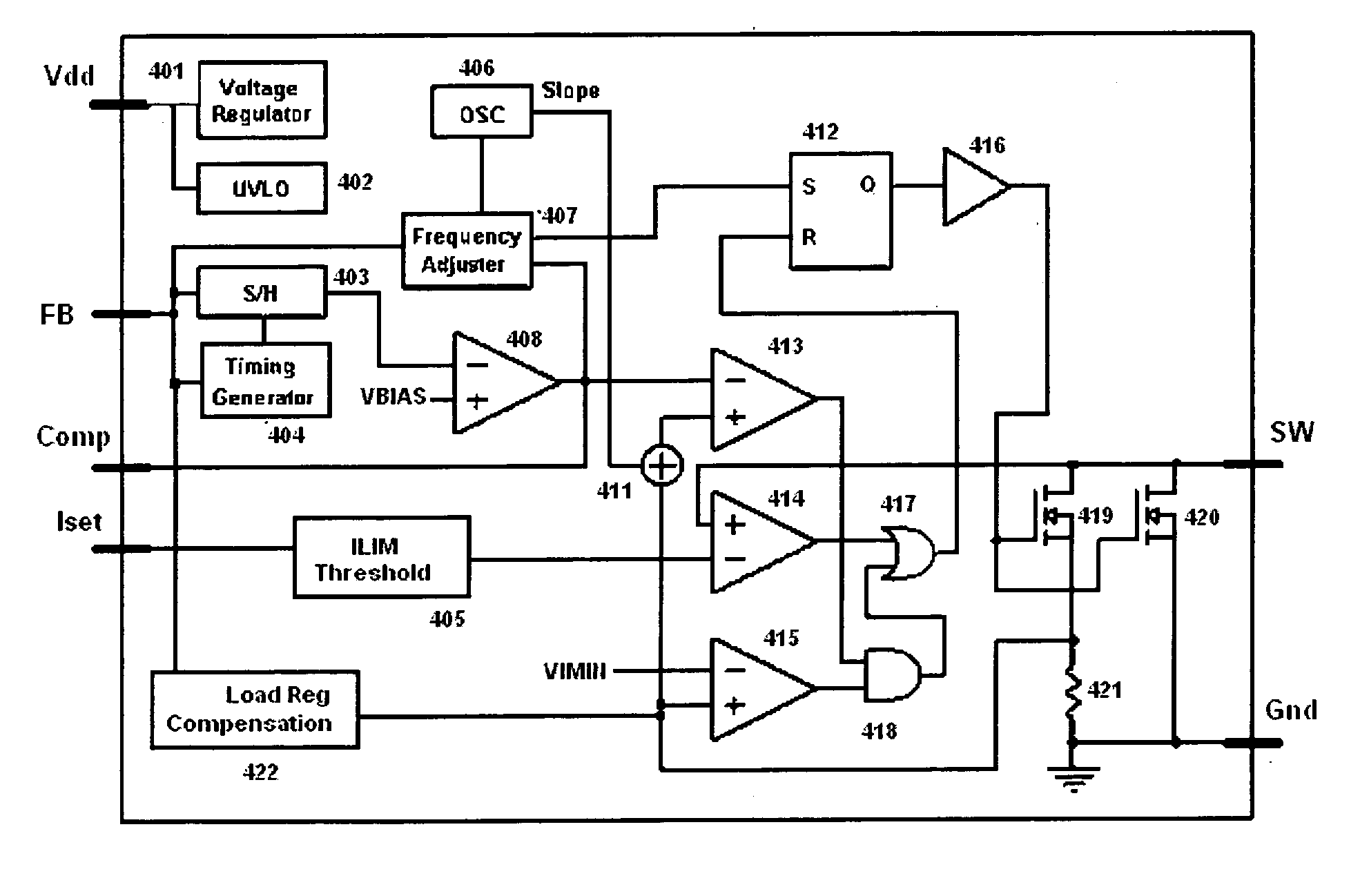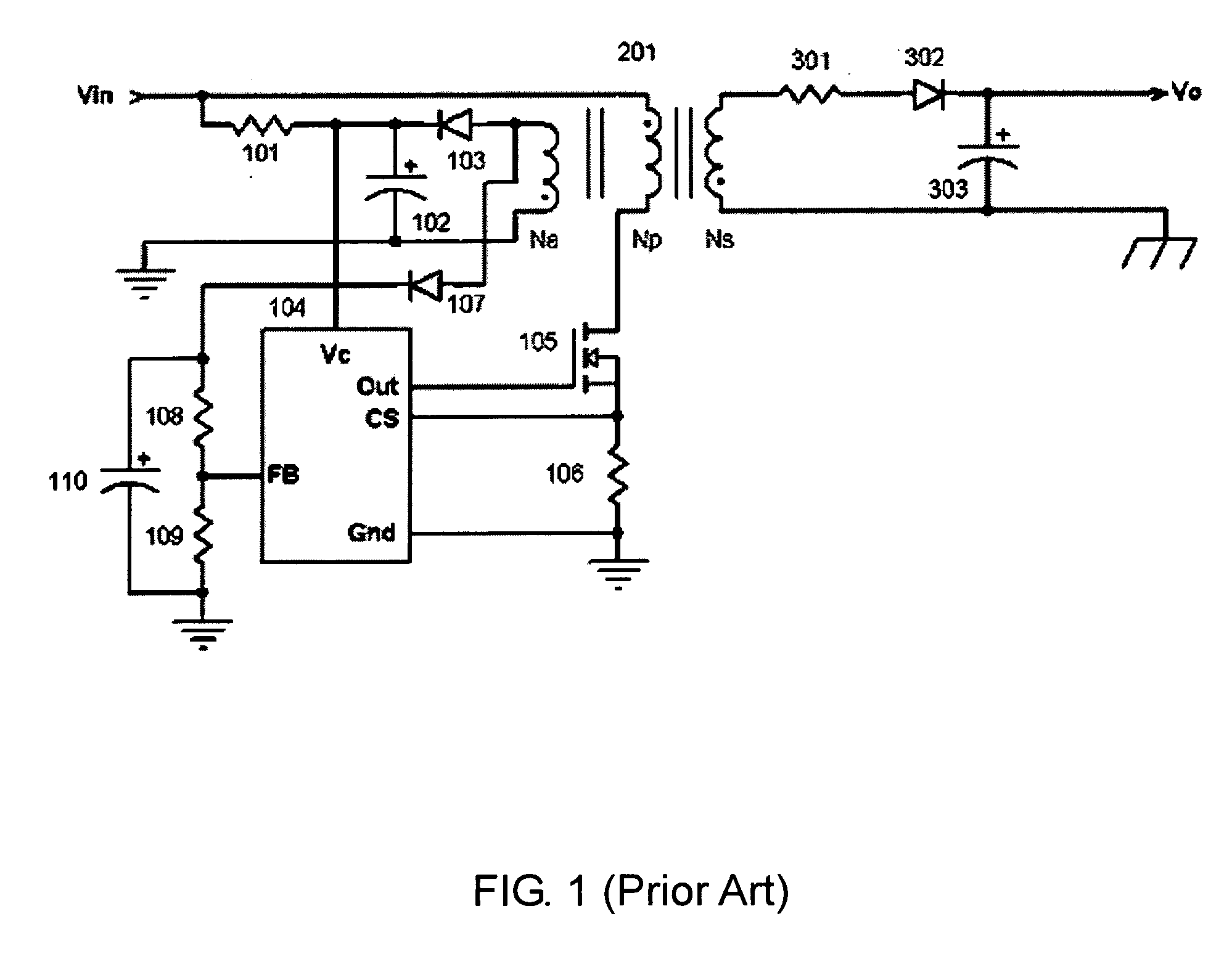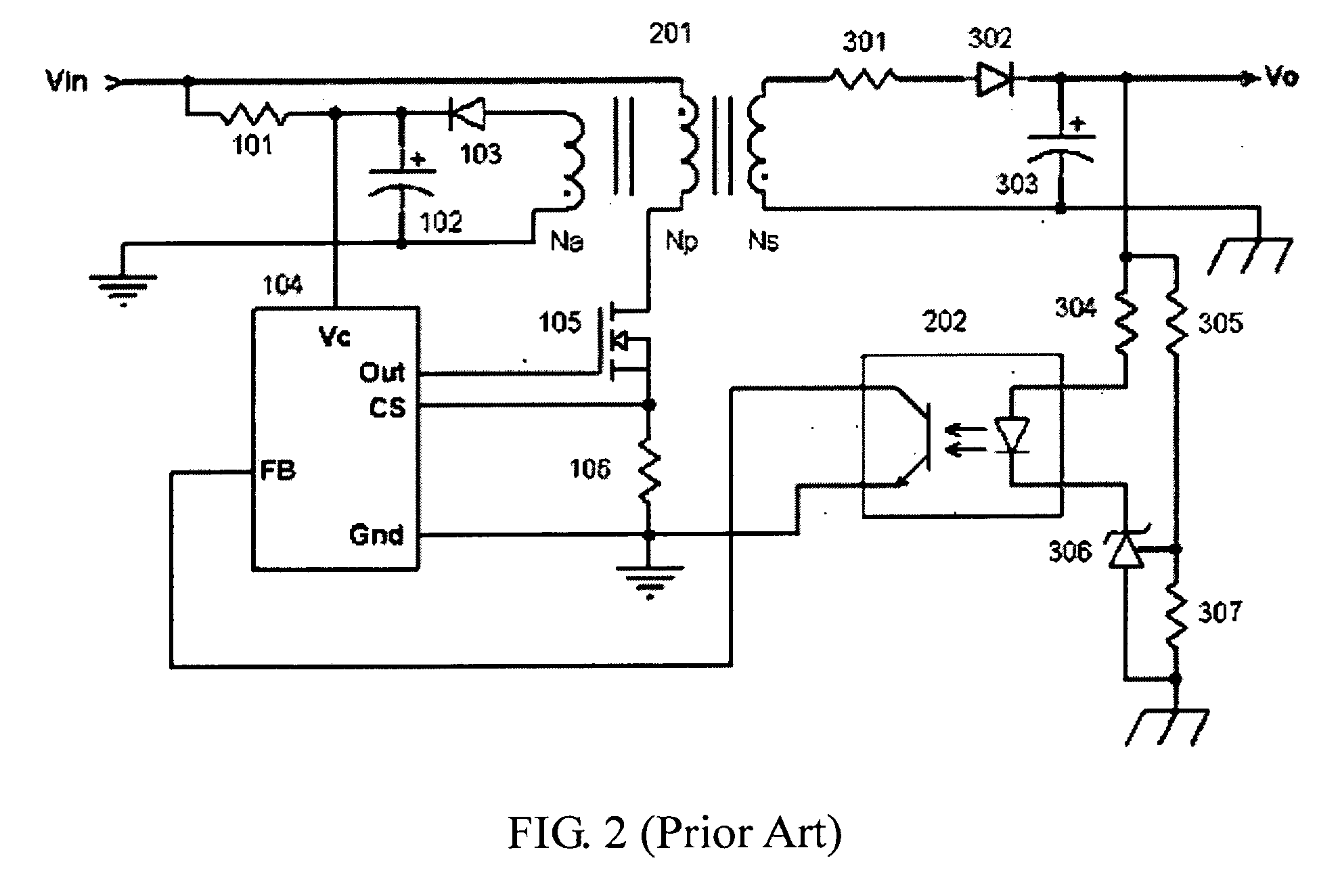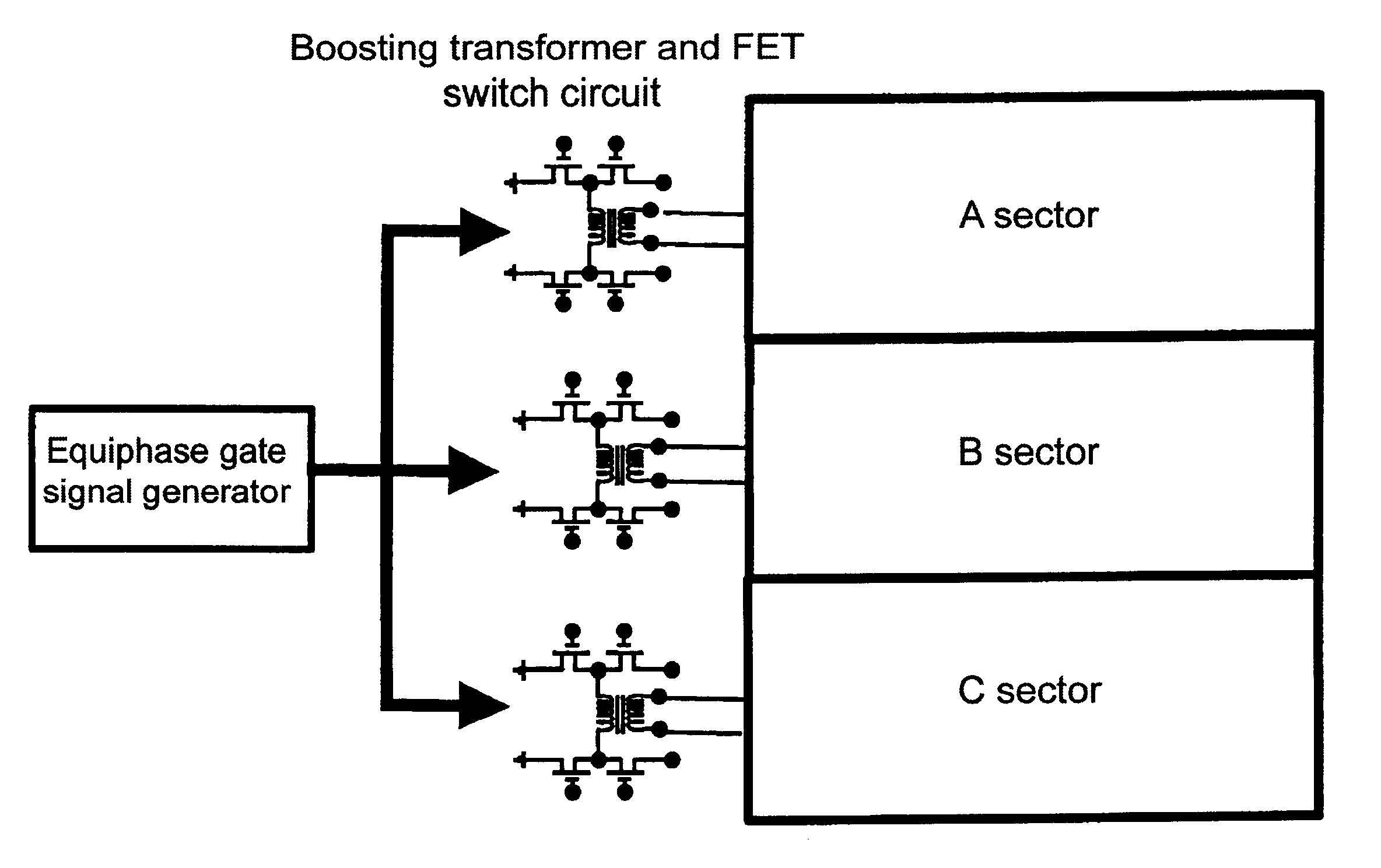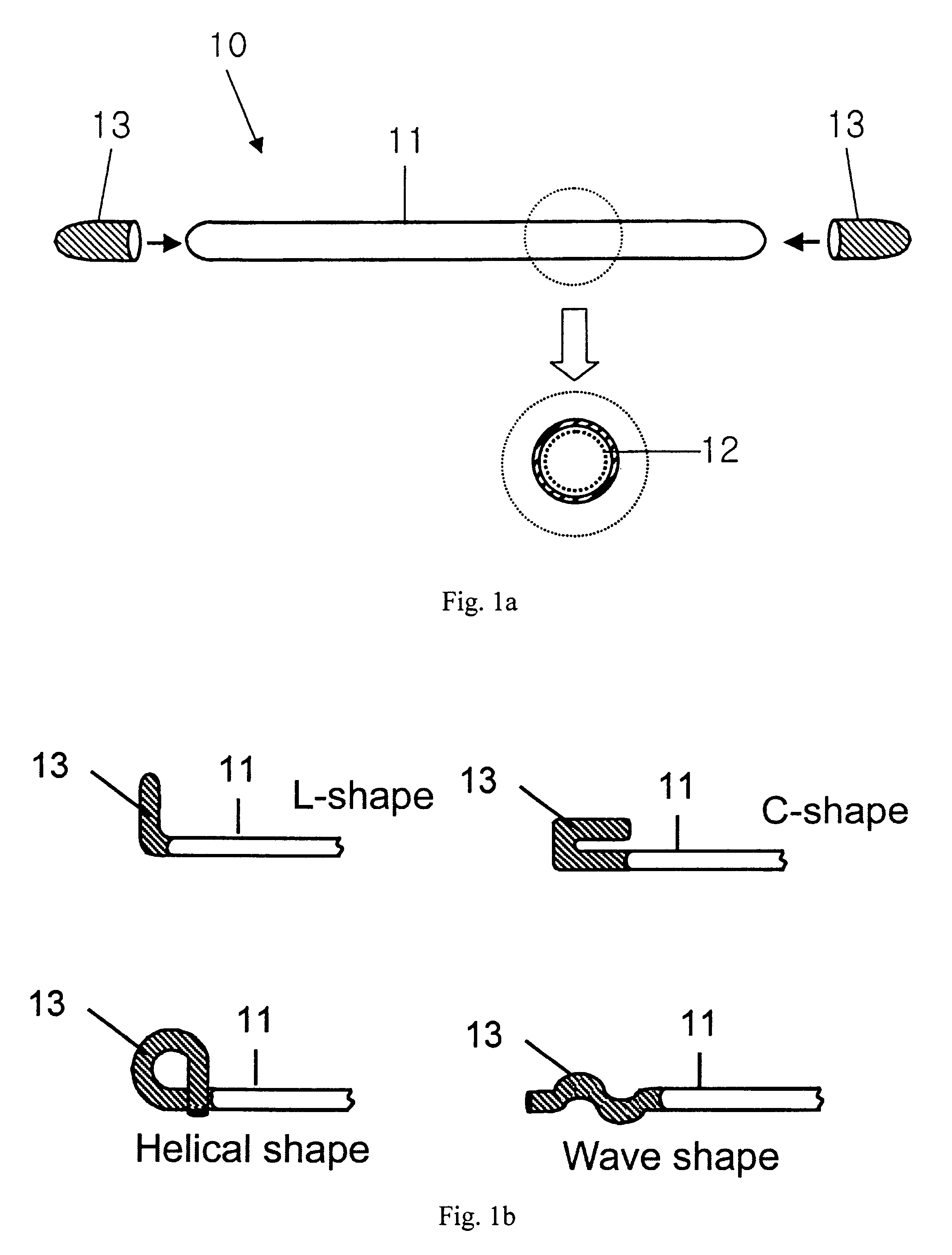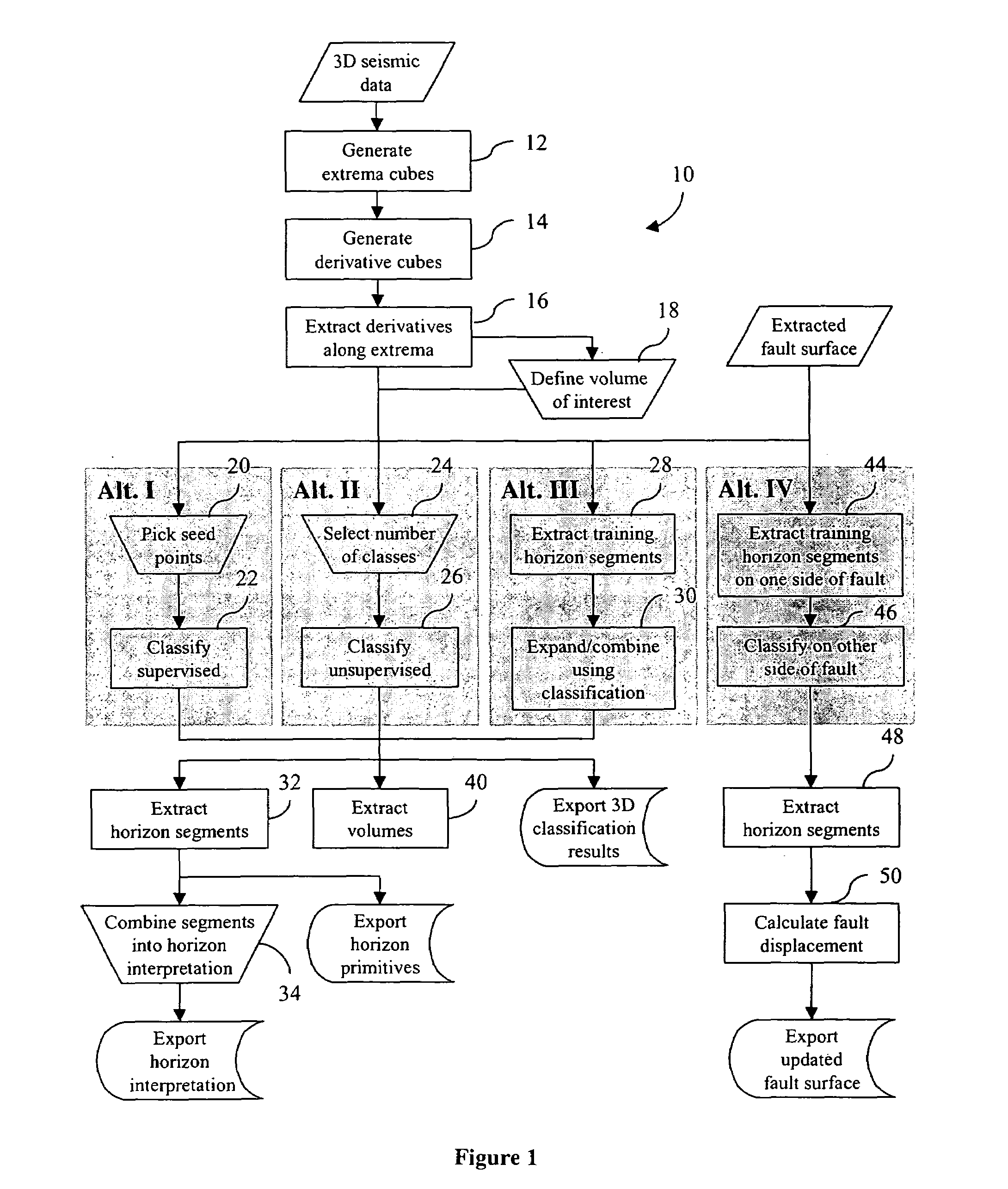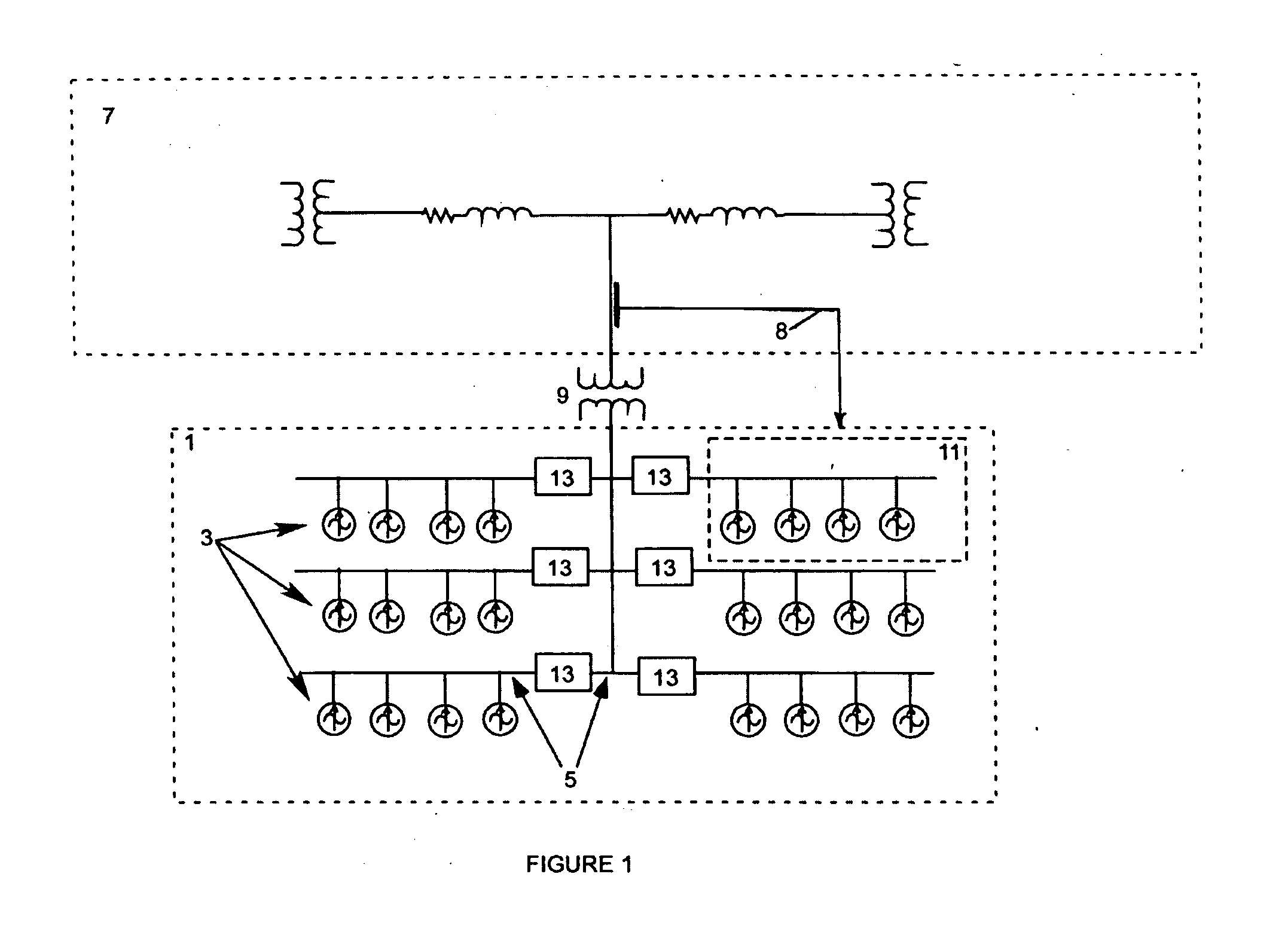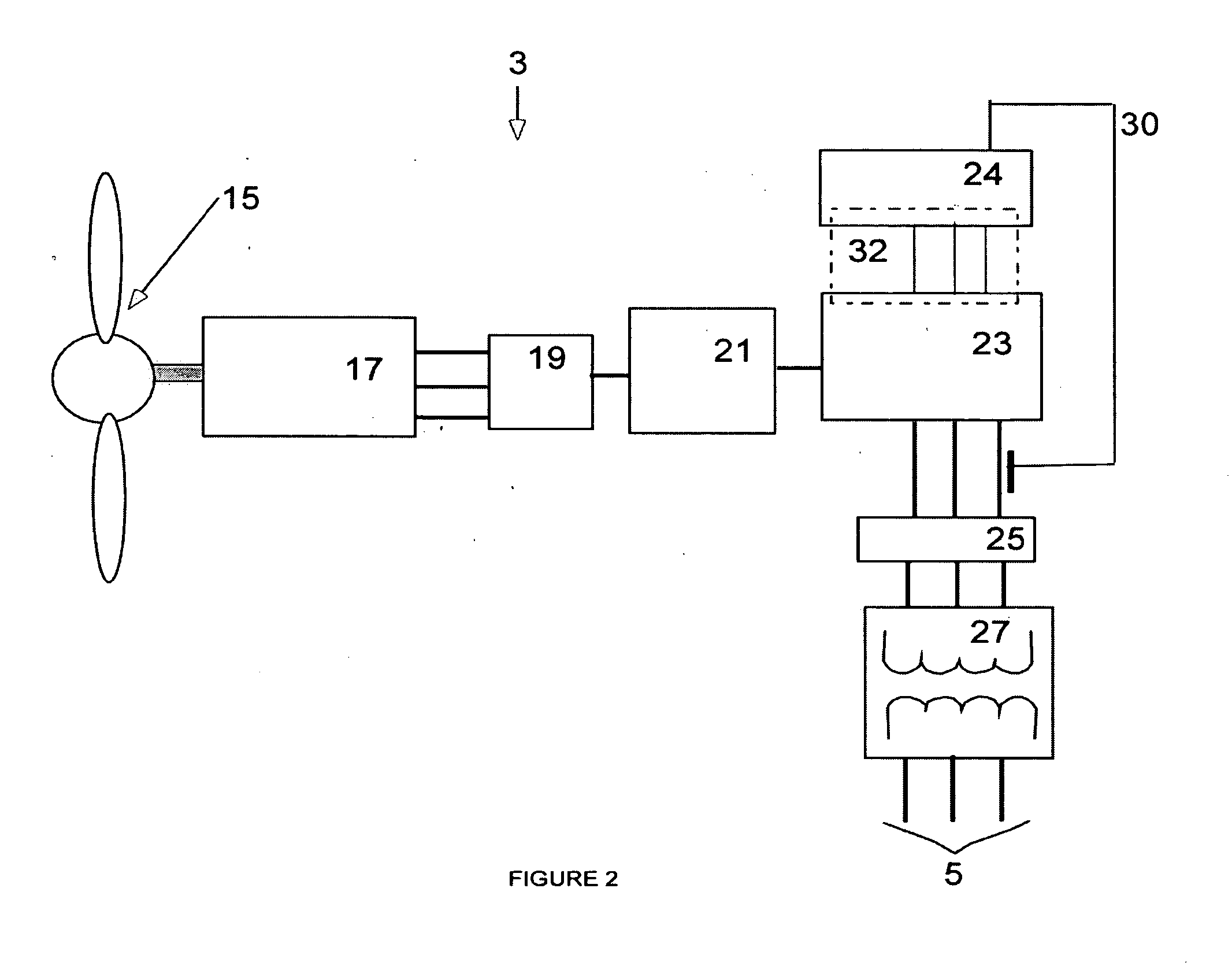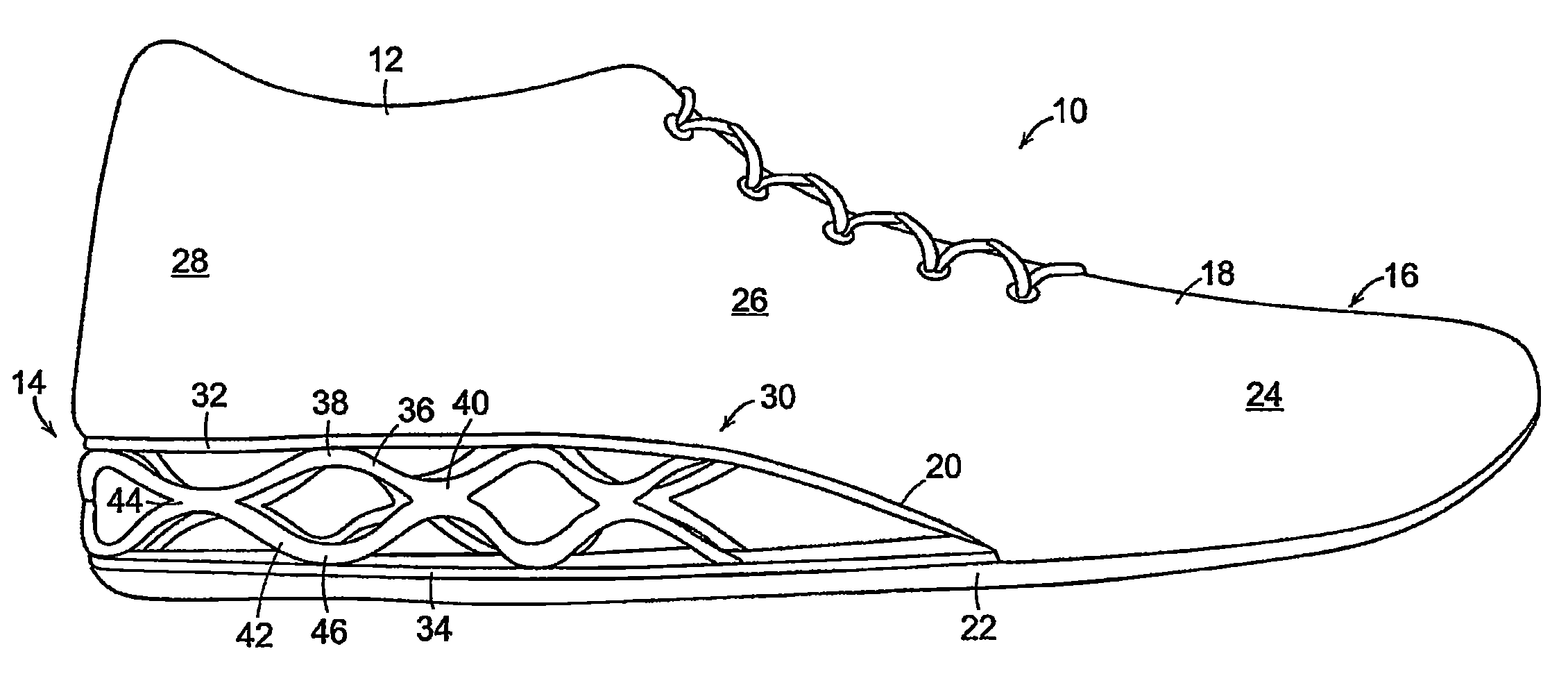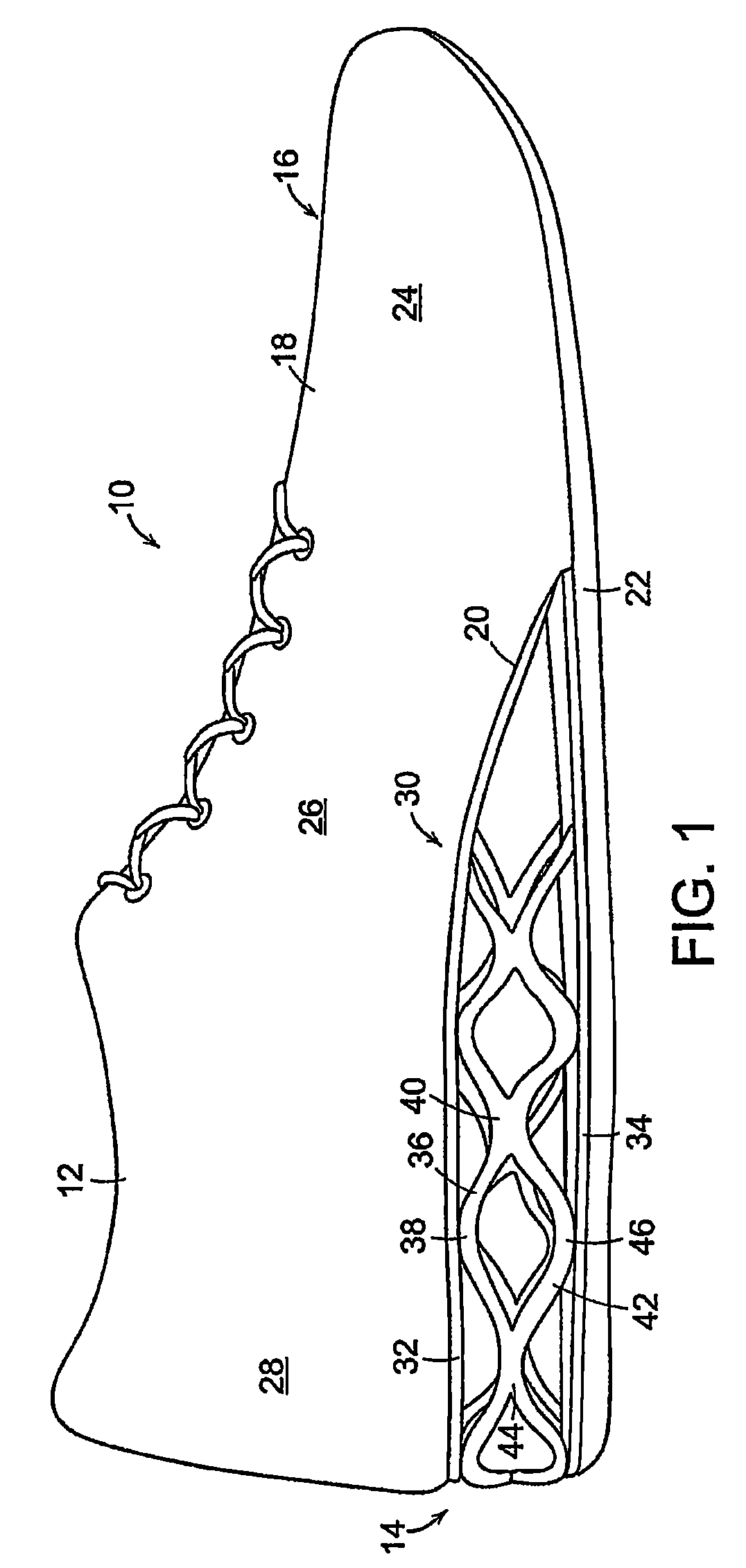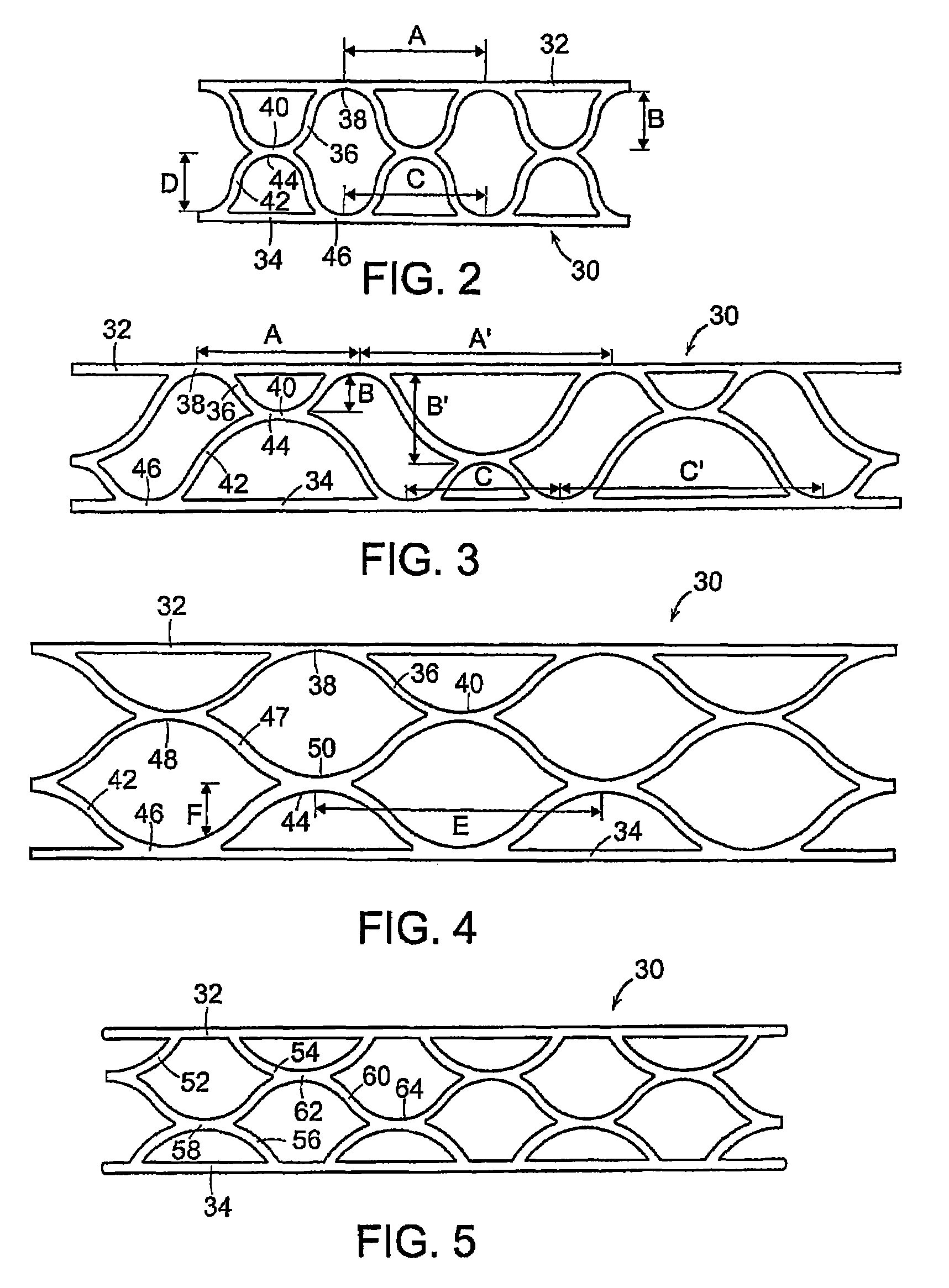Patents
Literature
Hiro is an intelligent assistant for R&D personnel, combined with Patent DNA, to facilitate innovative research.
9833 results about "Wave shape" patented technology
Efficacy Topic
Property
Owner
Technical Advancement
Application Domain
Technology Topic
Technology Field Word
Patent Country/Region
Patent Type
Patent Status
Application Year
Inventor
Waveform adaptive ultra-wideband transmitter
A waveform adaptive transmitter that conditions and / or modulates the phase, frequency, bandwidth, amplitude and / or attenuation of ultra-wideband (UWB) pulses. The transmitter confines or band-limits UWB signals within spectral limits for use in communication, positioning, and / or radar applications. One embodiment comprises a low-level UWB source (e.g., an impulse generator or time-gated oscillator (fixed or voltage-controlled)), a waveform adapter (e.g., digital or analog filter, pulse shaper, and / or voltage variable attenuator), a power amplifier, and an antenna to radiate a band-limited and / or modulated UWB or wideband signals. In a special case where the oscillator has zero frequency and outputs a DC bias, a low-level impulse generator impulse-excites a bandpass filter to produce an UWB signal having an adjustable center frequency and desired bandwidth based on a characteristic of the filter. In another embodiment, a low-level impulse signal is approximated by a time-gated continuous-wave oscillator to produce an extremely wide bandwidth pulse with deterministic center frequency and bandwidth characteristics. The UWB signal may be modulated to carry multi-megabit per second digital data, or may be used in object detection or for ranging applications. Activation of the power amplifier may be time-gated in cadence with the UWB source thereby to reduce inter-pulse power consumption. The UWB transmitter is capable of extremely high pulse repetition frequencies (PRFs) and data rates in the hundreds of megabits per second or more, frequency agility on a pulse-to-pulse basis allowing frequency hopping if desired, and extensibility from below HF to millimeter wave frequencies.
Owner:ZEBRA TECH CORP
High efficiency digital transmitter incorporating switching power supply and linear power amplifier
InactiveUS20090004981A1Improve efficiencyAttenuation bandwidthResonant long antennasPower amplifiersDigital signal processingDc current
A novel apparatus and method of improving the power efficiency of a digital transmitter for non-constant-amplitude modulation schemes. The power efficiency improvement mechanism of the invention leverages the high efficiency of a switched-mode power supply (SMPS) that supplies the high DC current to the transmitter's power amplifier, while compensating for its limitations using predistortion. The predistortion may be achieved using any suitable technique such as digital signal processing, hardware techniques, etc. A switched mode power supply (i.e. switching regulator) is used to provide a slow form (i.e. reduced bandwidth) of envelope tracking (based on a narrower bandwidth distorted version of the envelope waveform) such that the switching regulator can use a lower switching rate corresponding to the lower bandwidth, thereby obtaining high efficiency in the switching regulator. The resulting AM-AM and AM-PM distortions in the power amplifier are compensated through predistortion of the digital amplitude modulating signal which dictates the envelope at the PA input. Similarly, the phase modulation is also compensated prior to the PA, such that once it undergoes the distortion in the PA, the end result is sufficiently close to the desired phase.
Owner:TEXAS INSTR INC
Cordless Hand-Held Ultrasonic Cautery Cutting Device
InactiveUS20090143799A1Alter functionAlter performanceUltrasound therapySurgical instrument detailsUltrasonic sensorWave shape
A disposable ultrasonic surgical handle includes a disposable handle body defining a battery-holding compartment shaped to receive a battery therein and operable to couple a proximal end of an ultrasonic waveguide to an ultrasonic transducer therethrough. The body has a transducer dock exposed to the environment and interchangeably housing the transducer and a waveguide attachment dock shaped to align and attach the proximal end of the waveguide to the transducer and hold them at the body when the respectively docked at the transducer and attachment docks. A disposable driving-wave generation circuit in the handle body electrically contacts the battery and the transducer when the battery and the transducer are disposed respectively in the battery-holding compartment and the transducer dock. The circuit generates an output waveform sufficient to cause ultrasonic movement along the waveguide by exciting the transducer when the transducer is coupled to the waveguide.
Owner:COVIDIEN AG
Method and system for automatically substituting media content
InactiveUS20060253330A1Less appealingSelective content distributionElectrical cable transmission adaptationTelevision systemMedia controls
Signals associated with a media channel can convey programming to a television system. The programming can comprise segments of entertainment content and segments of commercial or advertising content. The signals can comprise distinctive waveform features between the segments of entertainment content and advertising content. For example, an abrupt change in the amplitude or phase of the waveform can provide an indication of a transition between a segment of entertainment content and a segment of advertising content. A signal processing system can monitor or analyze the signals to detect the distinctive waveform features. In response to detecting a feature and determining that the media channel has transitioned between conveying entertainment content and conveying commercial content, a media control system can present alternative or replacement content on the television system. The alternative content can comprise interactive advertising, for example.
Owner:MEDIA IP HLDG LLC
Monitor for electric arc welder
InactiveUS6441342B1Rapid data acquisition rateSufficient memoryArc welding apparatusWave shapeSimulation
A monitor for an electric arc welder as the welder performs a selected arc welding process by creating actual welding parameters, such as arc current and arc voltage, between an advancing welding wire and a workpiece, where the process involves an arc and is defined by a series of rapidly repeating wave shapes constituting a weld cycle with a cycle time, the wave shapes are each segmented into time states having command signals corresponding to the actual parameters and a time duration. The monitor selects a specific wave shape state, reads one of the actual parameters, compares the actual read parameter with a function of the command signal corresponding to the actual parameter, and uses-the comparison to generate a characteristic of the welding process during the selected state.
Owner:LINCOLN GLOBAL INC
Mass spectrometry with segmented RF multiple ion guides in various pressure regions
InactiveUS7034292B1Reduce lossesEliminate and reduce numberIsotope separationSpectrometer combinationsFourier transform on finite groupsMass analyzer
A mass spectrometer is configured with individual multipole ion guides, configured in an assembly in alignment along a common centerline wherein at least a portion of at least one multipole ion guide mounted in the assembly resides in a vacuum region with higher background pressure, and the other portion resides in a vacuum region with lower background pressure. Said multipole ion guides are operated in mass to charge selection and ion fragmentation modes, in either a high or low pressure region, said region being selected according to the optimum pressure or pressure gradient for the function performed. The diameter, lengths and applied frequencies and phases on these contiguous ion guides may be the same or may differ. A variety of MS and MS / MSn analysis functions can be achieved using a series of contiguous multipole ion guides operating in either higher background vacuum pressures, or along pressure gradients in the region where the pressure drops from high to low pressure, or in low pressure regions. Individual sets of RF, + / −DC and resonant frequency waveform voltage supplies provide potentials to the rods of each multipole ion guide allowing the operation of ion transmission, ion trapping, mass to charge selection and ion fragmentation functions independently in each ion guide. The presence of background pressure maintained sufficiently high to cause ion to neutral gas collisions along a portion of each multiple ion guide linear assembly allows the conducting of Collisional Induced Dissociation (CID) fragmentation of ions by axially accelerating ions from one multipole ion guide into an adjacent ion guide. Alternatively ions can be fragmented in one or more multipole ion guides using resonant frequency excitation CID. A multiple multipole ion guide assembly can be configured as the primary mass analyzer in single or triple quadrupole mass analyzers with or without mass selective axial ejection. Alternatively, the multiple multipole ion guide linear assembly can be configured as part of a hybrid Time-Of-Flight, Magnetic Sector, Ion Trap or Fourier Transform mass analyzer.
Owner:PERKINELMER U S LLC
Power converter and power unit
InactiveUS6963147B2Solve large capacityMinimal energyThermoelectric device with peltier/seeback effectDc-dc conversionPhase differenceWave shape
Control means is provided, in which the whole of the phase difference of a power waveform of each phase is matched to a value dividing a cycle of the power waveform into n-equal portions, and at the same time, the whole of the power value of each phase is controlled to be identical, so that the power conversion unit having a n-alternating current output (n is an integer numeral serving as n≧2) connected to the direct current power source and smoothing means provided between the direct current power source and the power conversion unit are made small in capacity.
Owner:CANON KK
Audio spatialization and environment simulation
InactiveUS20090046864A1Accurate audio spatializationAccurate transfer functionHeadphones for stereophonic communicationStereophonic circuit arrangementsSound sourcesTime segment
A method and apparatus for processing an audio sound source to create four-dimensional spatialized sound. A virtual sound source may be moved along a path in three-dimensional space over a specified time period to achieve four-dimensional sound localization. A binaural filter for a desired spatial point is applied to the audio waveform to yield a spatialized waveform that, when the spatialized waveform is played from a pair of speakers, the sound appears to emanate from the chosen spatial point instead of the speakers. A binaural filter for a spatial point is simulated by interpolating nearest neighbor binaural filters chosen from a plurality of pre-defined binaural filters. The audio waveform may be processed digitally in overlapping blocks of data using a Short-Time Fourier transform. The localized sound may be further processed for Doppler shift and room simulation.
Owner:GENAUDIO
Neurovascular stent and method
A stent designed for catheter delivery to a target neurovascular site via a tortuous path, in a contracted state, and deployment at the target site, in an expanded state, is disclosed. The stent includes a plurality of expandable tubular members, where member is composed of a continuous wire element forming a plurality of wave segments, and segment contains a pair of opposite looped peaks having a wave shape such that the distance between adjacent sides of a wave, on proceeding from a peak toward opposite peaks, increases monotonically with an inflection point therebetween. The expandable tubular members are joined through adjacent peaks by axial connectors Radial expansion of the stent from a contracted to expanded state is accommodated by movement of adjacent wave-segment peaks away from one another, without significant change in the axial dimension of the stent. Also disclosed are a system incorporating the stent, and a method of treating a neurovascular abnormality.
Owner:STRYKER EURO OPERATIONS HLDG LLC +1
High bandwidth data transport system
InactiveUS7376191B2High bandwidthIncrease data rateModulated carrier system with waveletsColor television with pulse code modulationComputer hardwareHigh bandwidth
The present invention provides for a methods, system, and apparatus relating to data transmission. One method of the present invention includes representing data using at least one pulse based on a Gaussian wave form, sending the at least one pulse over an electrically conductive guided media, and recovering the data from the at least one pulse. The present invention can be used in conjunction with telephony applications, cable tv applications, and data bus applications.
Owner:LIGHTWAVES SYST
Use of stimulation pulse shape to control neural recruitment order and clinical effect
ActiveUS20090024189A1Uniform chargeImplantable neurostimulatorsArtificial respirationElectricityWave shape
A method, electrical tissue stimulation system, and programmer for providing therapy to a patient are provided. Electrodes are placed adjacent tissue (e.g., spinal cord tissue) of the patient, electrical stimulation energy is delivered from the electrodes to the tissue in accordance with a defined waveform, and a pulse shape of the defined waveform is modified, thereby changing the characteristics of the electrical stimulation energy delivered from the electrode(s) to the tissue. The pulse shape may be modified by selecting one of a plurality of different pulse shape types or by adjusting a time constant of the pulse shape.
Owner:BOSTON SCI NEUROMODULATION CORP
Robotics visual and auditory system
InactiveUS20090030552A1Accurate collectionAccurately localizeProgramme controlComputer controlSound source separationPhase difference
It is a robotics visual and auditory system provided with an auditory module (20), a face module (30), a stereo module (37), a motor control module (40), and an association module (50) to control these respective modules. The auditory module (20) collects sub-bands having interaural phase difference (IPD) or interaural intensity difference (IID) within a predetermined range by an active direction pass filter (23a) having a pass range which, according to auditory characteristics, becomes minimum in the frontal direction, and larger as the angle becomes wider to the left and right, based on an accurate sound source directional information from the association module (50), and conducts sound source separation by restructuring a wave shape of a sound source, conducts speech recognition of separated sound signals from respective sound sources using a plurality of acoustic models (27d), integrates speech recognition results from each acoustic model by a selector, and judges the most reliable speech recognition result among the speech recognition results.
Owner:JAPAN SCI & TECH CORP
Control arrangement for a resonant mode power converter
InactiveUS20080198638A1Minimize such dead timeMinimize timeEfficient power electronics conversionDc-dc conversionCharge currentControl signal
The switching frequency of an LLC converter is controlled by a control unit to which a feedback circuit provides a first current dependent upon the output voltage of the converter. An oscillator circuit produces a sawtooth waveform at a frequency dependent upon the first current, up to a limit equal to a second current set by a resistor. Two complementary switch control signals are produced for controlling two switches of the converter for conduction in alternate cycles of the sawtooth waveform. A timer produces dead times between the two complementary switch control signals in dependence upon the second current. Another resistor provides a current constituting a minimum value of the first current, and a charging current of a capacitor in series with a resistor modifies the first current for soft starting of the converter.
Owner:POWER INTEGRATIONS INC
Method of compressing waveform data with differential entropy based compression
Waveforms are digitally sampled and compressed for storage in memory. The compression of the data includes generating a truncated entropy encoding map and using the values within the map to obtain good compression. An encoder further sub-selects values to be encoded and values to remain unencoded to provide an overall compression of the data.
Owner:MEDTRONIC INC
Approach to adjust driving waveforms for a display device
Owner:E INK CORPORATION
Circuit for controlling LED with temperature compensation
ActiveUS7330002B2Low production costStatic indicating devicesElectric light circuit arrangementWave shapeLinearity
A circuit for controlling an LED with temperature compensation is employed in the LED-based system. The circuit of the invention linearly controls luminance and color of the LED according to temperature change and more precisely compensates for temperature-related variations in LED properties. Also, the circuit saves the cost of the product due to no requirement of a microprocessor. In the circuit, a waveform generator generates a sawtooth wave for Pulse Width Modulation (PWM) control. A temperature detector detects a voltage via a resistance value which is linearly variable according to changes in an ambient temperature. A PWM controller compares the sawtooth wave from the wave generator with the detection voltage from the temperature detector and generates a PWM voltage having a duty determined by the comparison result.
Owner:SAMSUNG ELECTRONICS CO LTD
Burst mode operation in a DC-DC converter
The present invention relates to a converter and a driving method thereof. The converter uses an input voltage to generate an output voltage by a main switch's switching and applies power to a load, senses the current flowing to the main switch to generate a sense voltage, uses a first voltage corresponding to the current applied to the load and a sawtooth waveform signal having a first frequency to control a group frequency of the burst mode, controls the main switch's turn-on timing, and uses the first voltage and the sense voltage to determine whether to turn off the main switch, thereby controlling the main switch's switching. The converter determines the start and end of the period for switching according to the result of comparing the first voltage and the sawtooth waveform signal. Therefore, a converter for having a constant group frequency, preventing audible noise, and preventing output voltage ripple, and a driving method thereof, are provided.
Owner:SEMICON COMPONENTS IND LLC
Vrms and rectified current sense full-bridge synchronous-rectification integrated with PFC
ActiveUS7269038B2Ac-dc conversion without reversalEfficient power electronics conversionMOSFETFull bridge
A synchronous full bridge rectifier is controlled to provide a power factor near unity. The full bridge rectifiers are transistors each with a controlling input. The AC input signal and currents within the circuit are sensed and sent to a controller. In response, the controller output control signals to turn on / off the rectifying MOSFETS on a timely basis to form a power factor of near one with respect to the AC input signal. The full wave rectifier is made of N-channel MOSFET's, some with fast body diodes. The MOSFET's are rectifiers and PFC control elements. The result is a one stage synchronous rectifier with PFC. A solid state precision analog differential amplifier senses the AC line waveform and high frequency current transformers sense the currents. The controller accepts the inputs of the amplifier and the sensed currents and outputs control signals that turn on and off the four MOSFET's. The timing of turning on / off is arranged so that the current drawn from the AC source is sinusoidal and matches the phase of the sinusoidal AC source.
Owner:SEMICON COMPONENTS IND LLC
Active power factor correction circuit and control method thereof
InactiveUS7295452B1Reduce Higher Harmonic DistortionReduce switching lossesEfficient power electronics conversionConversion with intermediate conversion to dcDriver circuitPower switching
An active power factor correction (PFC) circuit and its controlling method are provided. The method comprises the following steps. Drive the power switch of the circuit so that the average inductor current waveform follows the rectified input voltage waveform. Suspend the operation of the power switch at a first moment in a first line cycle of the rectified input voltage and then resume the operation of the power switch at a second moment in a second line cycle of the rectified input voltage. The first moment is when the phase angle of the rectified input voltage exceeds a predetermined angle and the switching frequency of the power switch exceeds a predetermined frequency. The time span from the first moment to the end of the first line cycle is substantially as long as the time span from the beginning of the second line cycle to the second moment.
Owner:GREEN MARK TECH
Delta-sigma modulator for outputting analog representation of physiological signal
ActiveUS20050187453A1Quick conversionReduce noiseCatheterDiagnostic recording/measuringWave shapeGreek letter sigma
A method and apparatus for providing a substantially real-time representation of an analog representation of a physiological signal. The waveform signal from the sensor is converted into digital form. A delta-sigma modulator is used as a simple Digital-to-analog Converter (ADC). The output can then be provided through a simple hardware filter to give an analog output signal in nearly real-time, which can be used for other instruments, synchronization, display, etc.
Owner:TYCO HEALTHCARE GRP LP
Neurostimulator
ActiveUS20140180361A1Improve performanceImprove neurological functionSpinal electrodesDiagnostic recording/measuringWave shapeWaveform shaping
A neurostimulator device for use with groups (e.g., more than four groups) of electrodes. The neurostimulator may include a stimulation assembly configured to deliver different stimulation to each of the groups. The neurostimulator may also include at least one processor configured to direct the stimulation assembly to deliver stimulation to the groups. The stimulation delivered to at least one of the groups may include one or more waveform shapes other than a square or rectangular wave shape. The processor may receive data from one or more sensors and use that data to modify the stimulation delivered. The neurostimulator may be configured to communicate with an external computing device. The neurostimulator may send data to and / or receive data and / or instructions from the computing device. The computing device may use information collected by one or more sensors to at least partially determine stimulation parameters to communicate to the neurostimulator.
Owner:CALIFORNIA INST OF TECH +2
Biological data observation apparatus
InactiveUS6953435B2Simplify the measurement procedureEvaluation of blood vesselsCatheterWave shapeWave form
A biological data observation apparatus includes a measuring unit including at least a photoelectric sensor including a light emitting element for emitting light with a predetermined wavelength onto a blood vessel of a subject and a light detecting element for detecting, as a photoelectric volume pulse wave, a change in an amount of transmitted or reflected light resulting from the light emitted from the light emitting section, a storage area in which pressure conversion data correlating a pulse wave area and a blood pressure value in order that the pulse wave area may be converted to the blood pressure value as an absolute value, the pulse wave area being obtained by integrating a wave form of the photoelectric capacity pulse wave per heartbeat, an operational unit calculating the pulse wave area on the basis of the photoelectric volume pulse wave obtained from the subject and further calculating the blood pressure value of the subject on the basis of the calculated pulse wave area and the blood pressure conversion data, and a display unit displaying a result of calculation performed by the operational unit.
Owner:KABUSHIKI GAISYA K AND S
Single piece co-cure composite wing
InactiveUS20060249626A1Improve performanceImprove protectionAircraft stabilisationLayered productsWave shapeComposite wing
Owner:SPECTRUM AERONAUTICAL
Overrunning coupling assembly having improved shift feel and/or noise reduction
ActiveUS7275628B2Improved shift feel and noise reductionReduce axial forceRotating vibration suppressionFluid actuated clutchesWave shapeCoupling
An overrunning coupling assembly having improved shift feel and / or noise reduction is provided. The assembly includes planar first and second members rotatable about a first axis. In a locked position, torque transfer is permitted between the first and second members in a first direction about the first axis. In a disengaged position, the first and second members are permitted to free-wheel relative to each other in a second direction opposite the first direction. A compliant retaining device retains the first and second members together and absorbs axial impact loads. The retaining device is less compliant in the locked position than in the disengaged position to decrease axial force at time of axial impact and improve shift feel and / or noise reduction. In a first embodiment, the retaining device includes a wave spring. In a second embodiment, the retaining device includes a stepped weir plate.
Owner:MEANS IND INC
Continuous clocking of TDI sensors
ActiveUS7609309B2Television system detailsTelevision system scanning detailsWave shapeWaveform shaping
A method and apparatus for propagating charge through a time division and integration (TDI) sensor is provided. The method and apparatus may be used with the TDI sensor to inspect specimens, the TDI sensor operating to advance an accumulated charge between gates of the TDI sensor. The design comprises controlling voltage waveform shapes for waveforms advancing the accumulated charge between gates in a substantially nonsquare waveform, such as a composite, sinusoidal, or other shaped waveform. Controlling voltage waveform shapes operates at different voltage phases in adjacent gates to provide a substantially de minimis net voltage.
Owner:KLA TENCOR TECH CORP
System and method for a primary feedback switched mode power supply
ActiveUS20070133234A1Reduce electromagnetic interference emissionReducing electromagnetic interference emissionDc-dc conversionElectric variable regulationAudio power amplifierControl power
A primary side controlled power converter having a voltage sensing means coupled to a transformer of the power converter and configured to provide a voltage feedback waveform representative of an output of the transformer is provided. A primary switching circuit operates to control energy storage of a primary side of the transformer. The primary switching circuit is operable during an on time and inoperable during an off time. The on and off time is switched at a system frequency. A feedback amplifier generates an error signal indicative of a difference between the voltage feedback waveform and a reference voltage. A sample and hold circuit samples the error signal at a periodic frequency during the off time. An error signal amplifier is configured to provide the sampled value to the primary switching circuit wherein the primary switching circuit controls the transformer and thereby regulates an output of the power converter.
Owner:ACTIVE SEMI
Backlight including external electrode fluorescent lamp and method for driving the same
InactiveUS6674250B2Improve efficiencyHigh luminanceElectric circuit arrangementsLighting heating/cooling arrangementsFluorescenceEngineering
The present invention discloses a backlight including external electrode fluorescent lamps and a method for driving the backlight. The backlight includes fluorescent lamps having external electrodes made of an electrically conductive material for wrapping the outer peripheral surfaces including edge cross-sections on both ends of a glass tube with a layer of fluorescent substance applied thereon. The backlight is constructed in a manner that a plurality of such fluorescent lamps are installed at the outer portions of a plastic light guide, and an alternating current type power source is applied from the outside to the fluorescent lamps by installing a plurality of the fluorescent lamps between a reflecting plate and a diffusing plate and electrically connecting them with one another. The backlight of the present invention is driven by a square wave from a switching inverter, and is characterized by the use of an overshooting waveform and a self-discharge effect favorable to an initial discharge, thereby driving it using a low frequency of several dozen kHz and thus realizing high luminance and high efficiency.
Owner:KWANG WOON DISPLAY TECH
Extrema classification
InactiveUS7248539B2Improve automate interpretationSeismic signal processingSpecial data processing applicationsClass modelWaveform shaping
A method for automated extraction of surface primitives from seismic data is presented. A preferred embodiment of the method includes defining, typically with sub-sample precision, positions of seismic horizons through an extrema representation of a 3D seismic input volume; deriving coefficients that represent the shape of the seismic waveform in the vicinity of the extrema positions; sorting the extrema positions into groups that have similar waveform shapes by applying classification techniques with the coefficients as input attributes using unsupervised or supervised classification based on an underlying statistical class model; and extracting surface primitives as surface segments that are both spatially continuous along the extrema of the seismic volume and continuous in class index in the classification volume. Three primary applications of the surface primitives are described: combining surface primitives into complete horizon interpretations; defining closed volumes within the seismic volume as the closure of vertically arranged surface primitives; or estimating fault displacement based on the surface primitives. A related computer system and computer program product for implementing the method are also described.
Owner:SCHLUMBERGER TECH CORP
Generator with utility fault ride-through capability
InactiveUS20050122083A1Simplified generator torque command approachPowerfulBatteries circuit arrangementsWind motor controlControl systemWave shape
A wind powered turbine with low voltage ride-through capability. An inverter is connected to the output of a turbine generator. The generator output is conditioned by the inverter resulting in an output voltage and current at a frequency and phase angle appropriate for transmission to a three-phase utility grid. A frequency and phase angle sensor is connected to the utility grid operative during a fault on the grid. A control system is connected to the sensor and to the inverter. The control system output is a current command signal enabling the inverter to put out a current waveform, which is of the same phase and frequency as detected by the sensor. The control system synthesizes current waveform templates for all three-phases based on a sensed voltage on one phase and transmits currents to all three-phases of the electrical system based on the synthesized current waveforms.
Owner:UNITED TECH CORP
Article of footwear with multi-layered support assembly
An article of footwear including an upper and a sole assembly secured to the upper and including a support assembly having an upper member and a lower member spaced from the upper member. A first layer is positioned beneath and in contact with the upper member and has a wave shaped profile with a plurality of first wave crests and first wave troughs. A second layer is positioned above the lower member and has a wave shaped profile with a plurality of second wave crests and second wave troughs.
Owner:NIKE INC
Features
- R&D
- Intellectual Property
- Life Sciences
- Materials
- Tech Scout
Why Patsnap Eureka
- Unparalleled Data Quality
- Higher Quality Content
- 60% Fewer Hallucinations
Social media
Patsnap Eureka Blog
Learn More Browse by: Latest US Patents, China's latest patents, Technical Efficacy Thesaurus, Application Domain, Technology Topic, Popular Technical Reports.
© 2025 PatSnap. All rights reserved.Legal|Privacy policy|Modern Slavery Act Transparency Statement|Sitemap|About US| Contact US: help@patsnap.com



